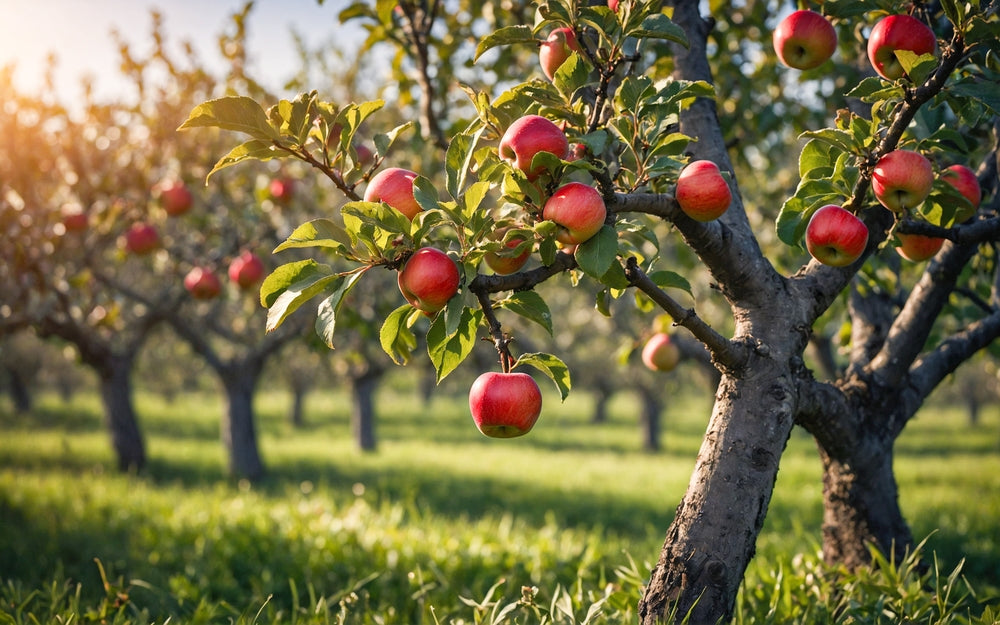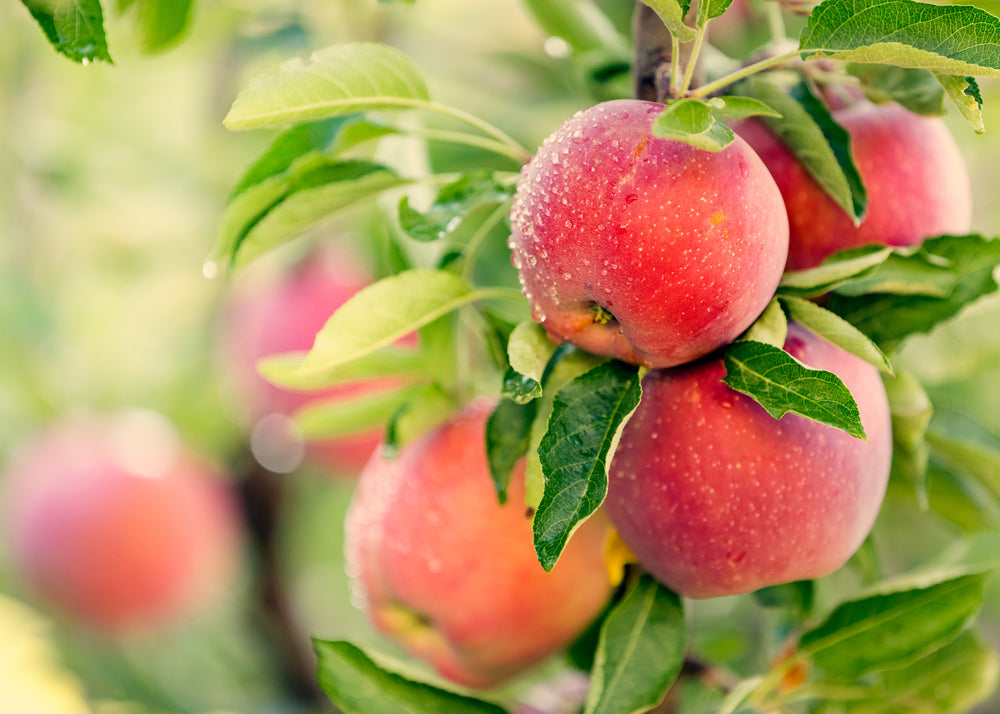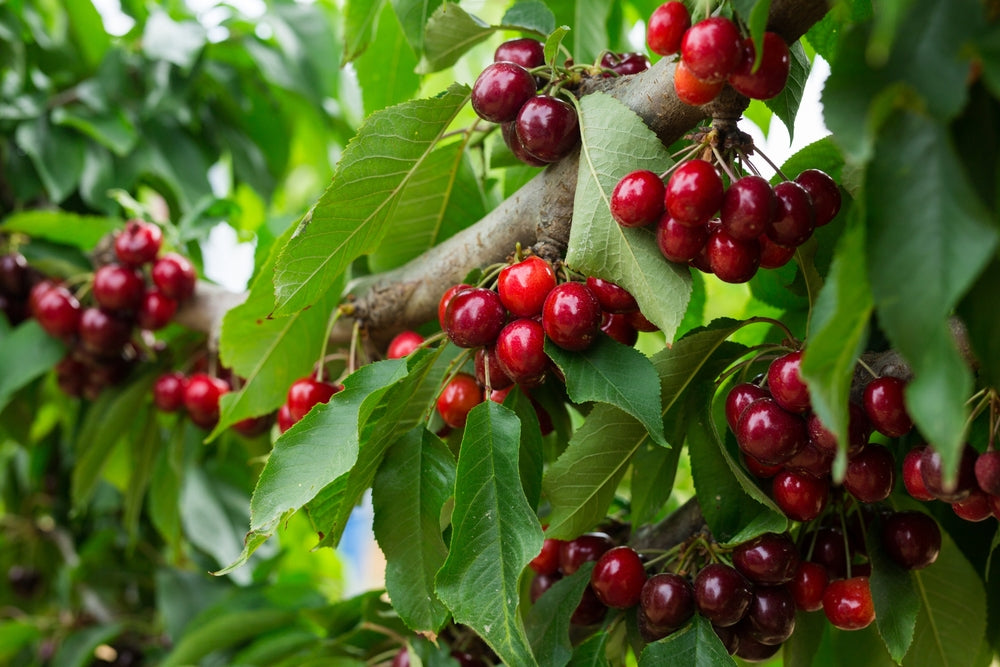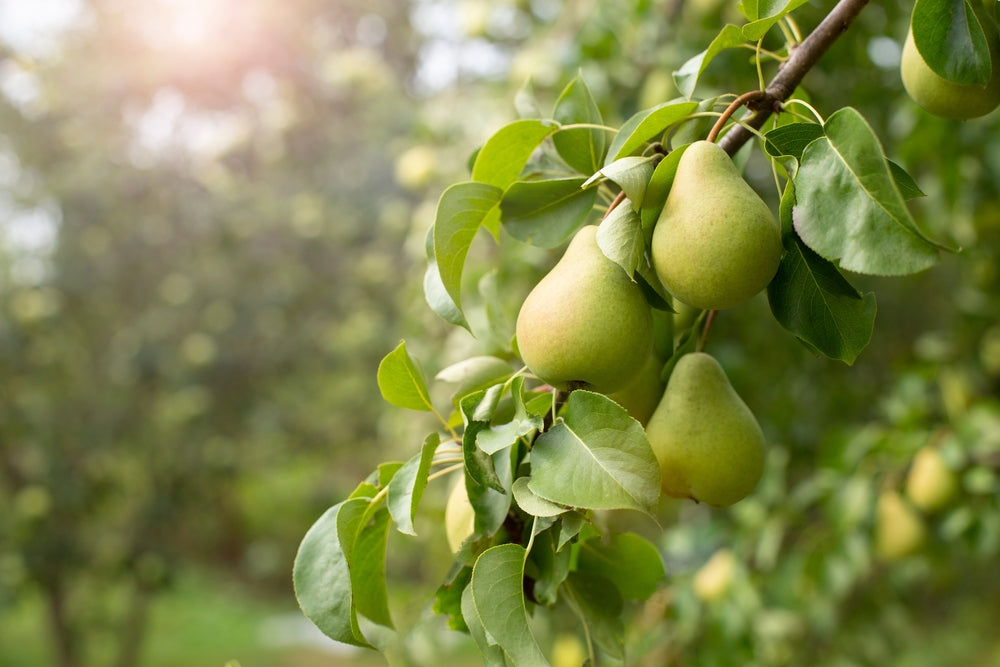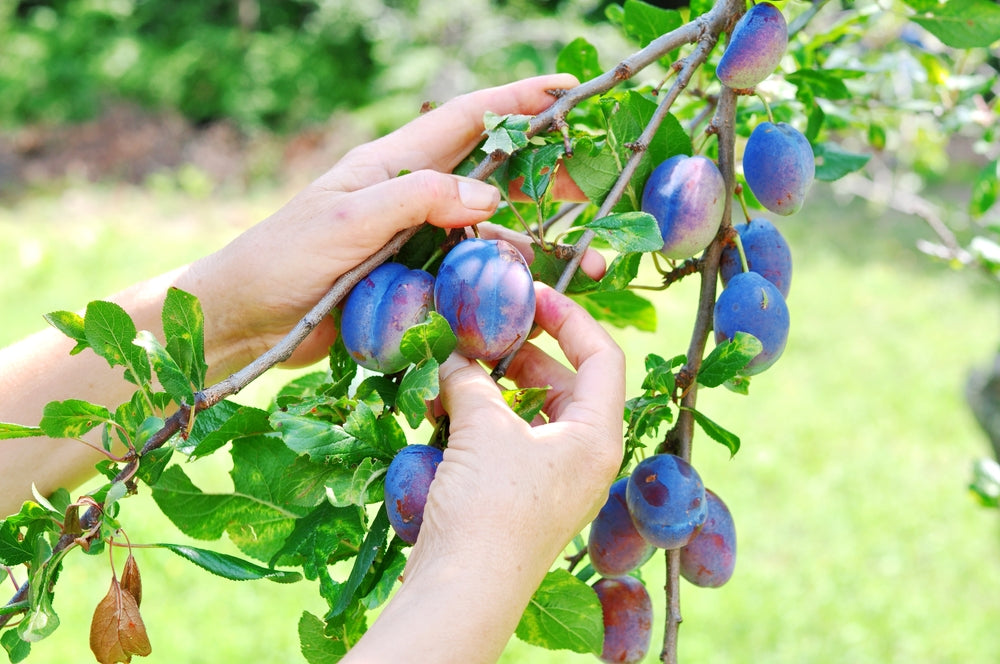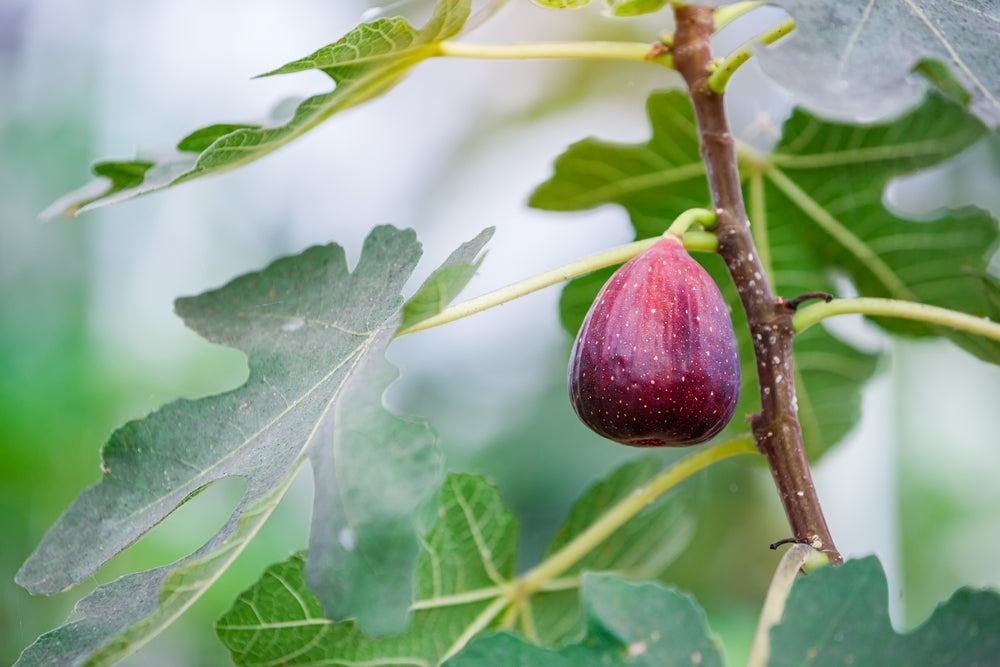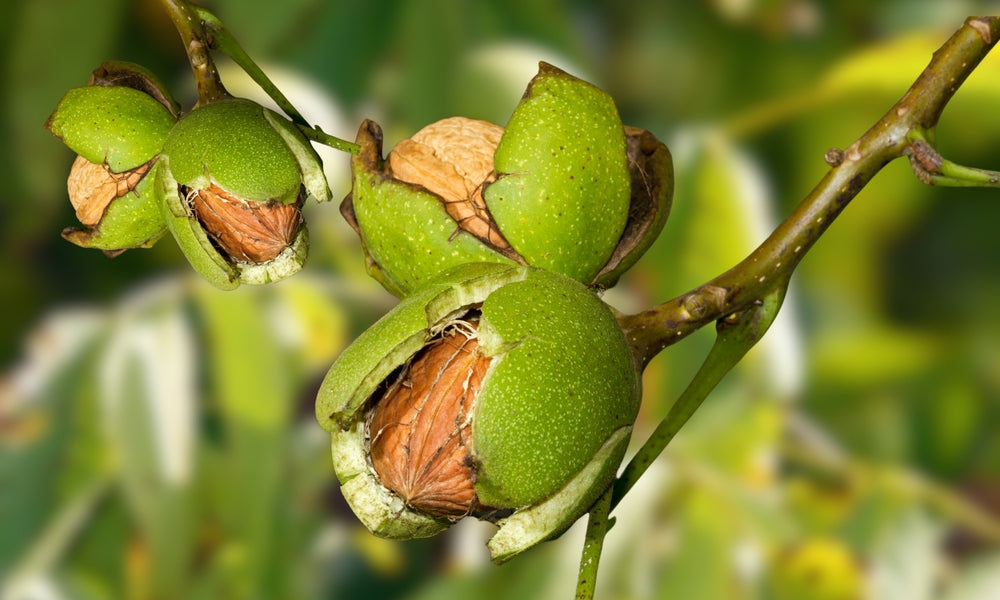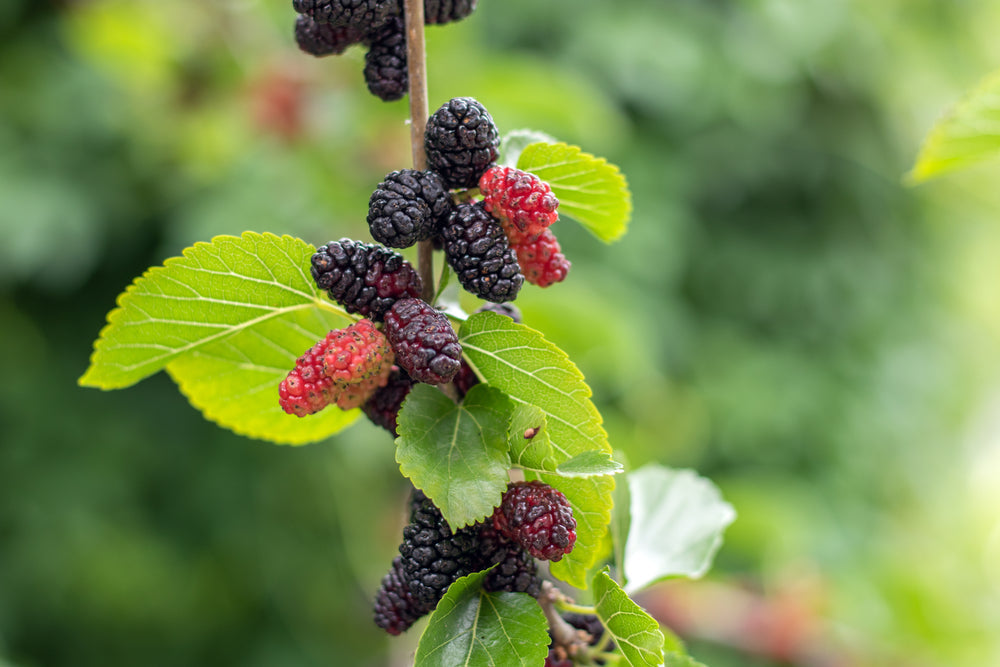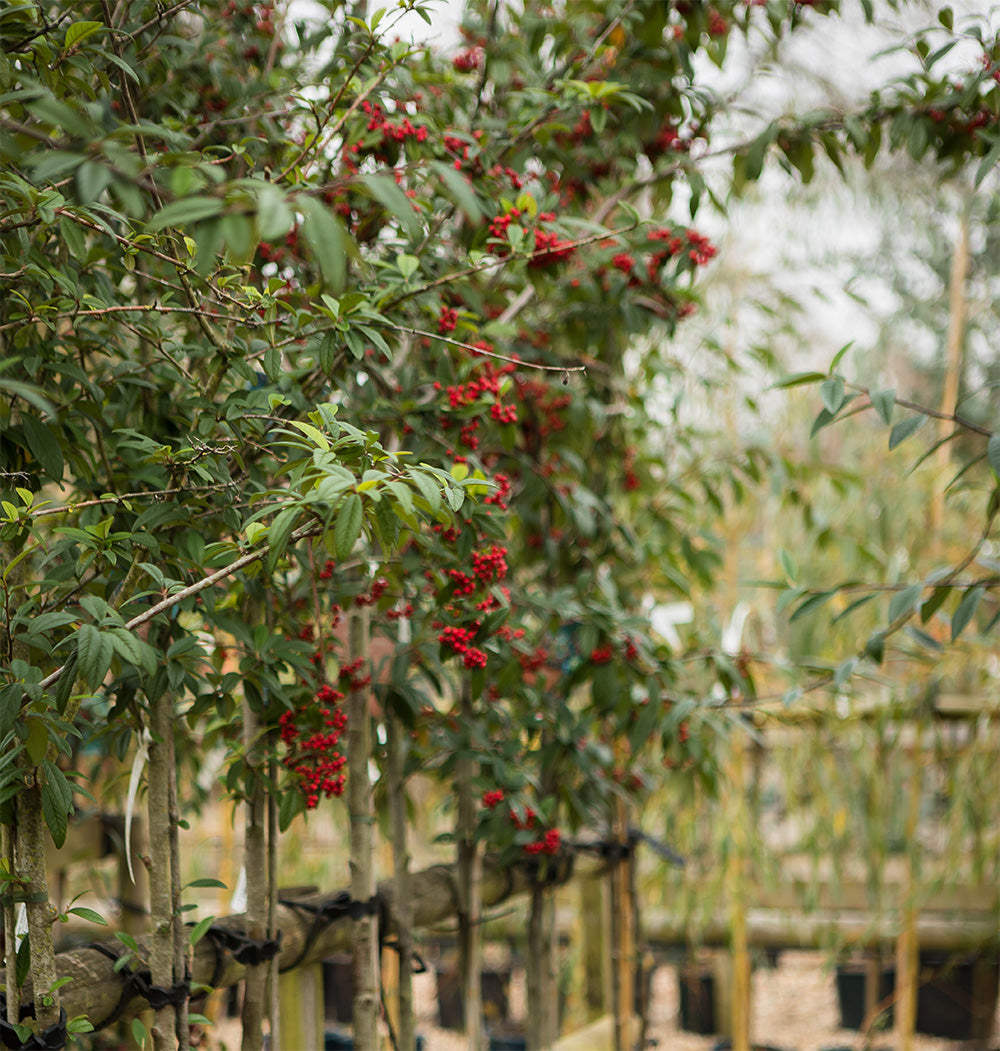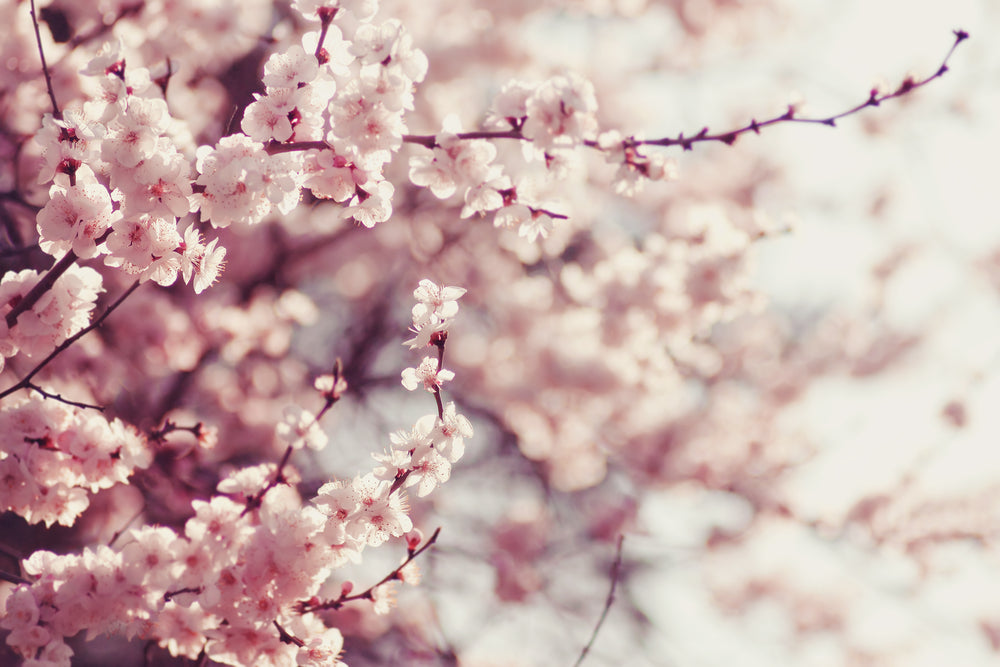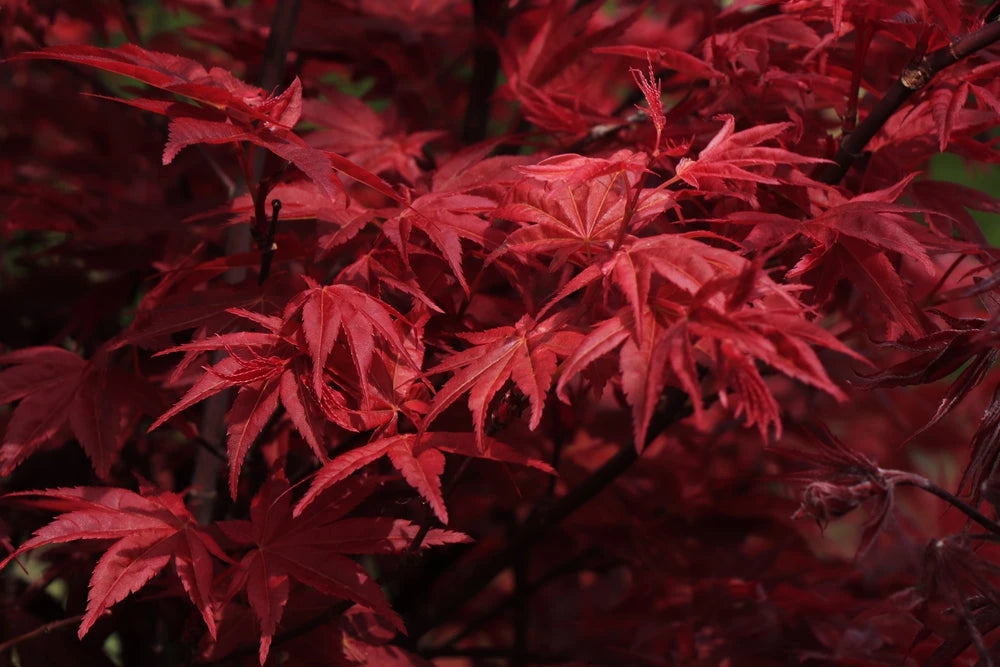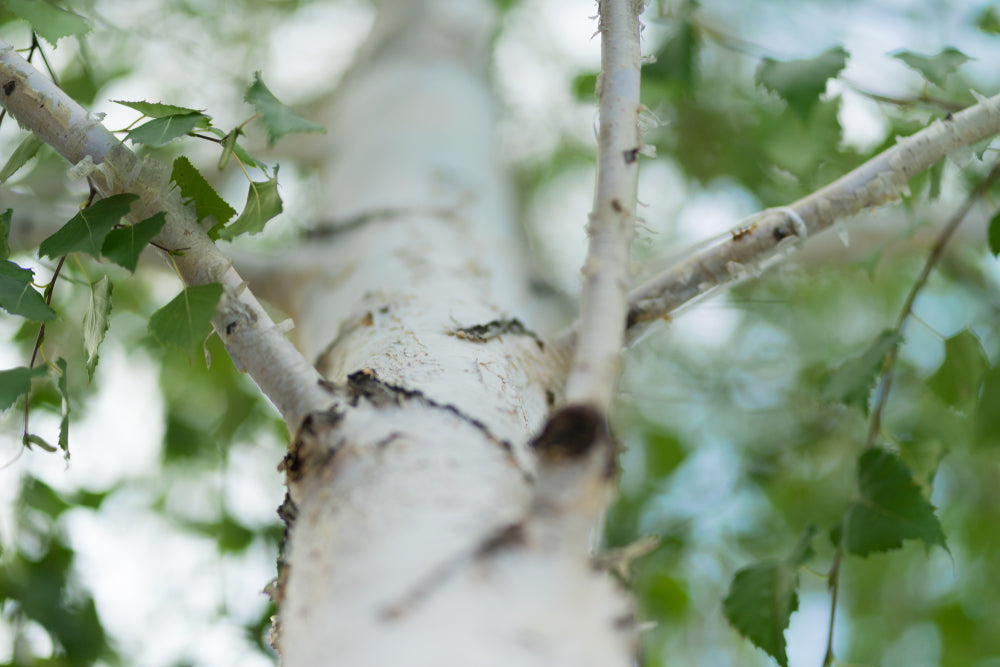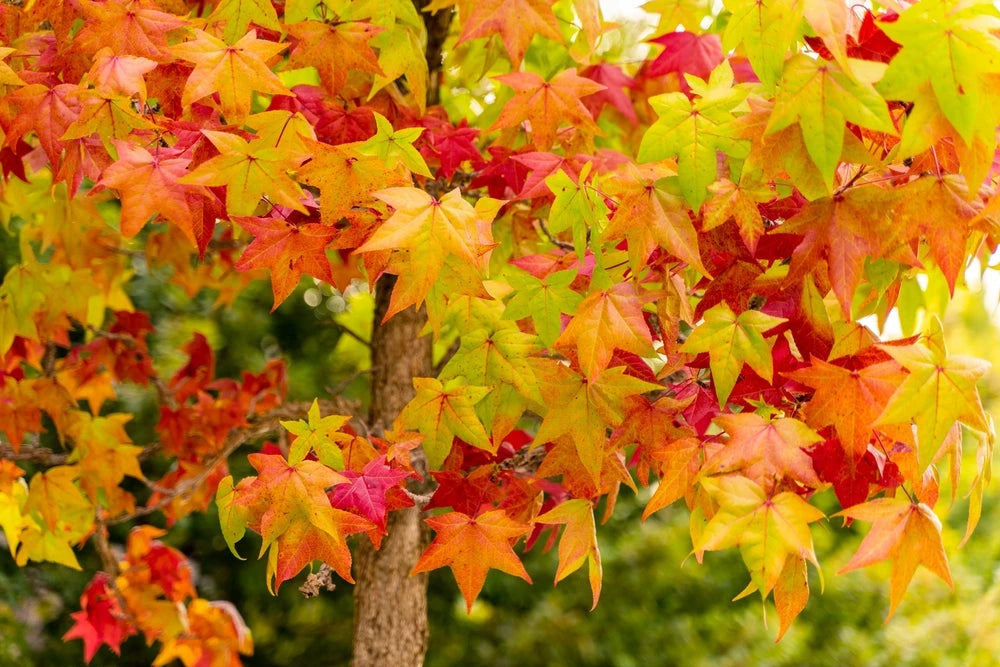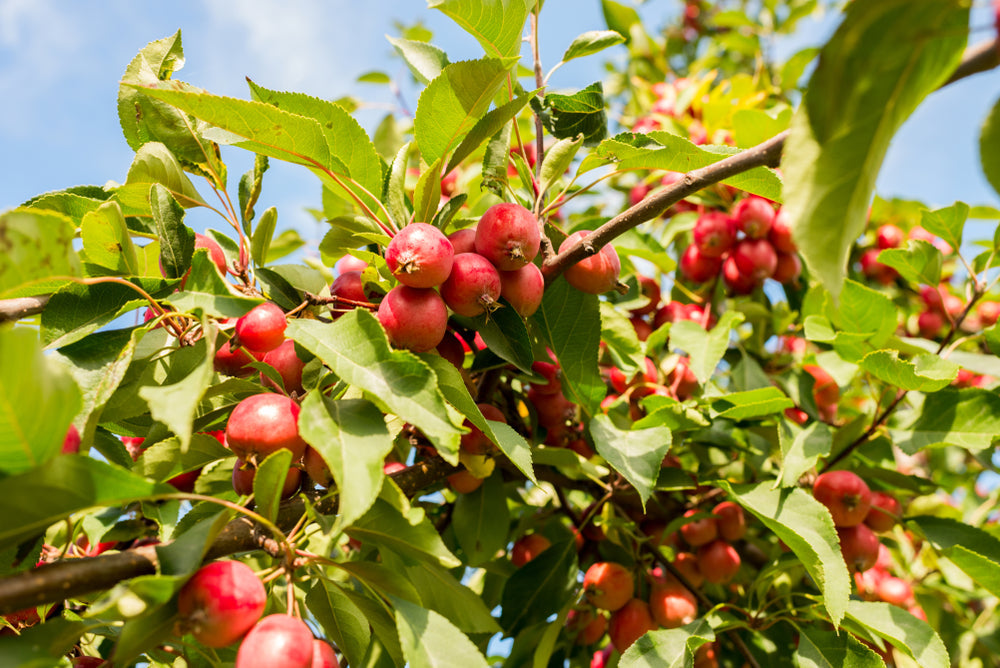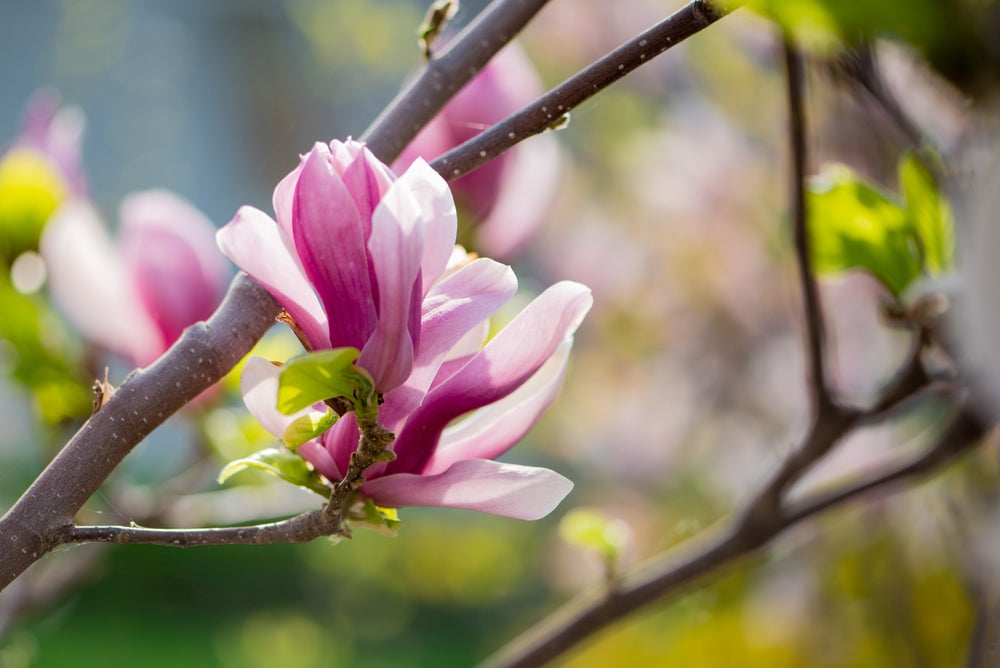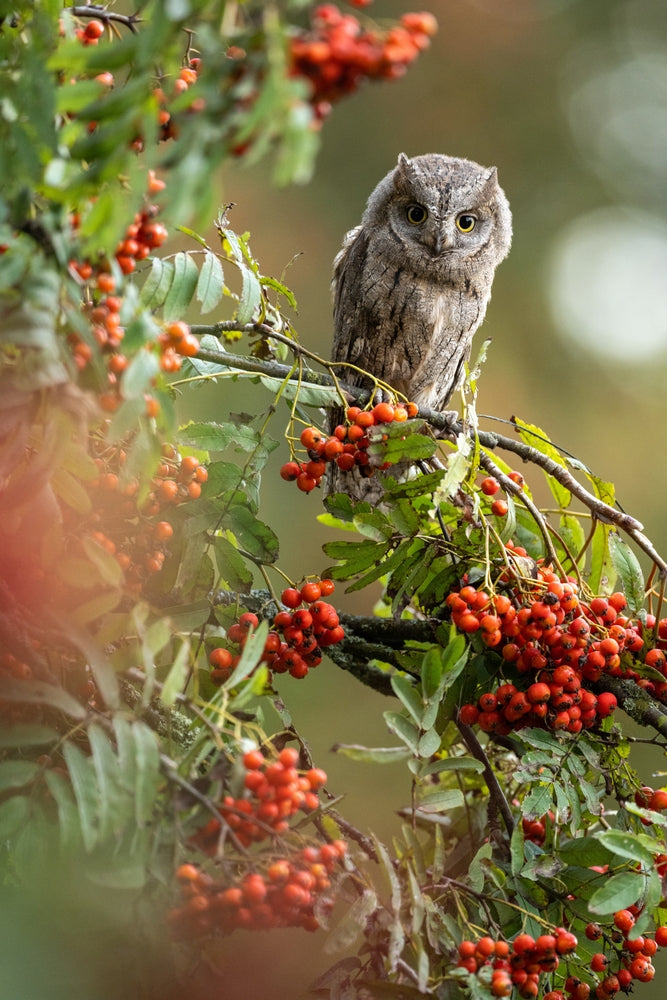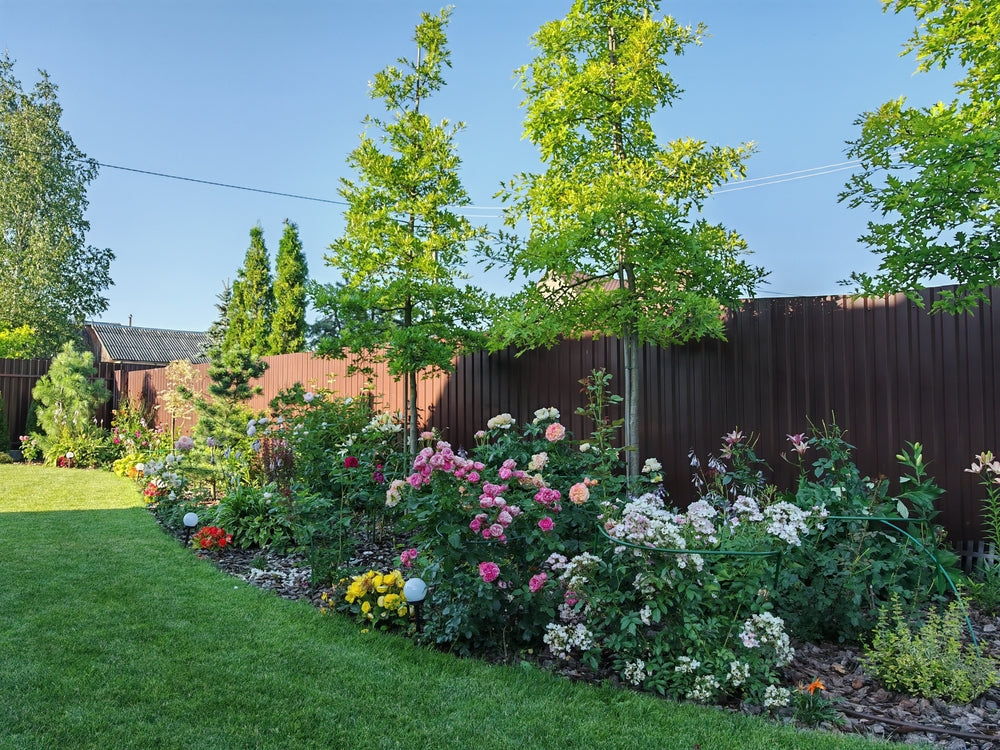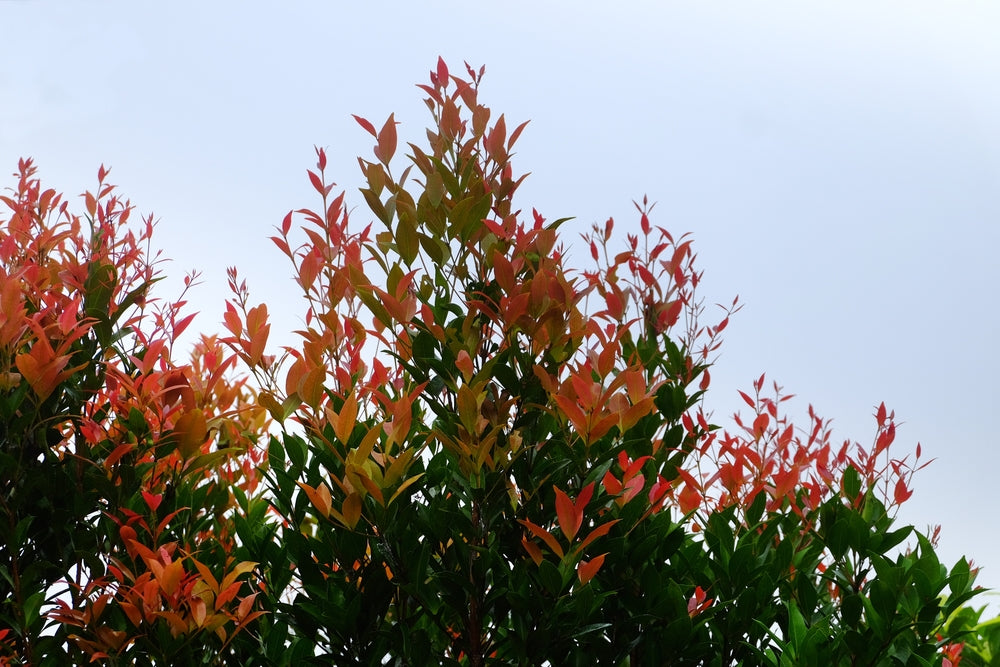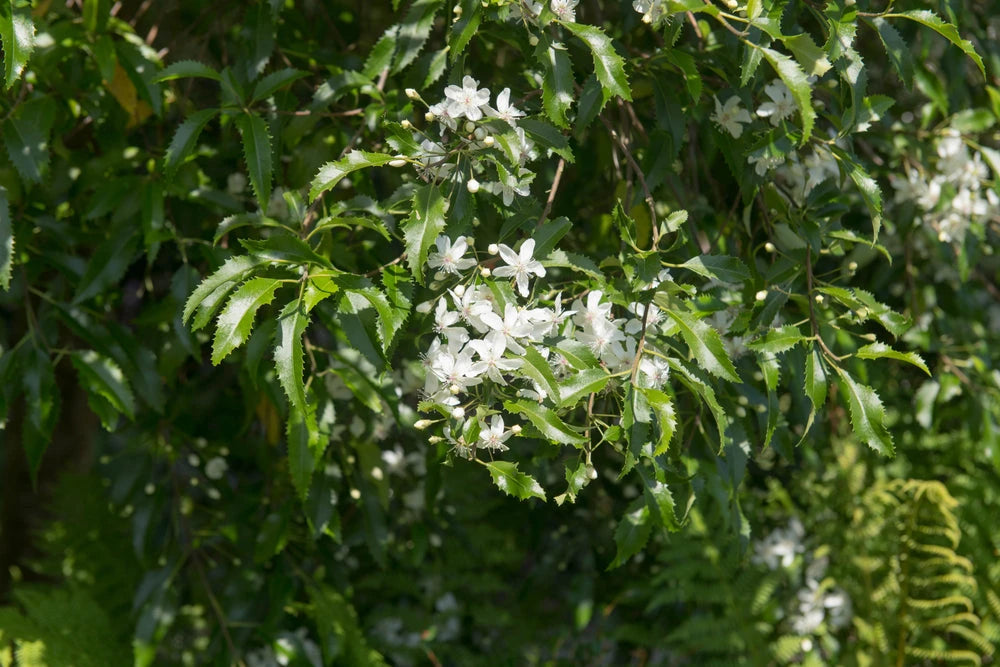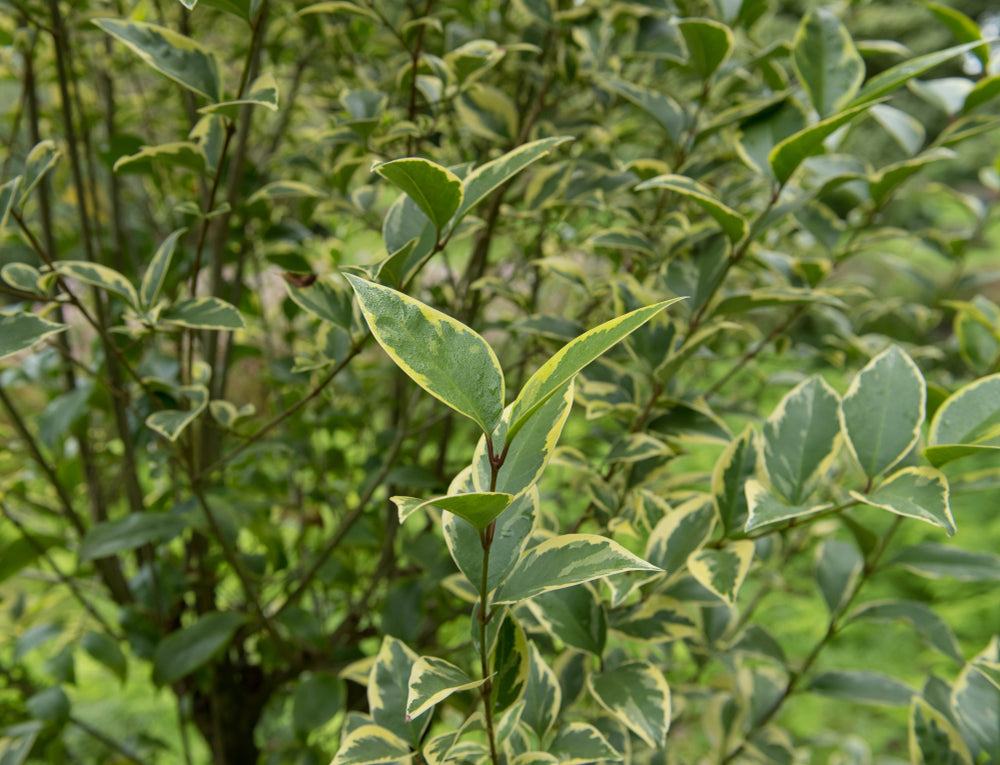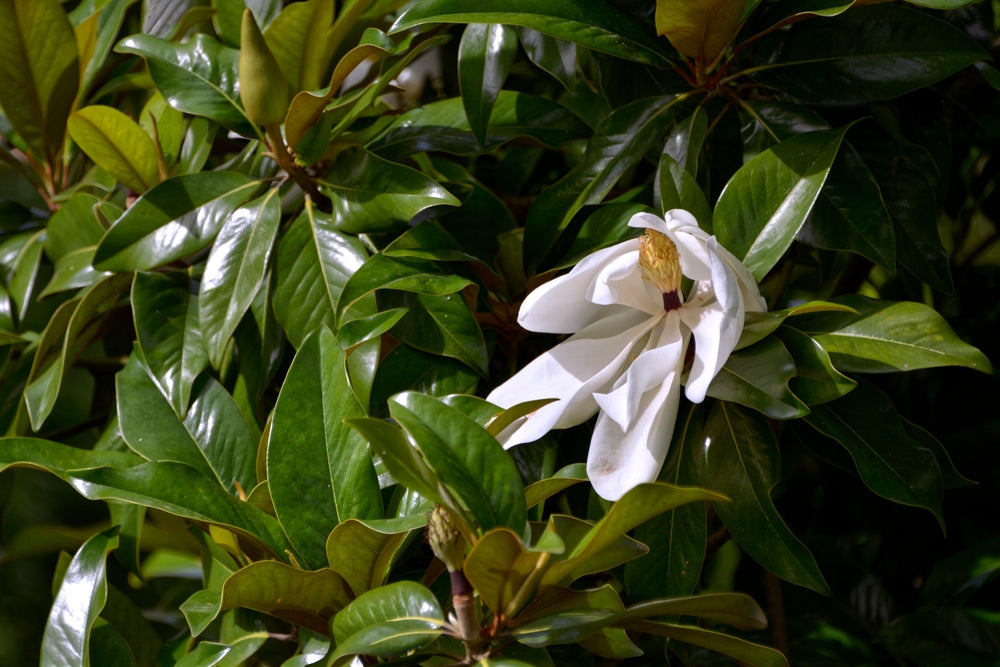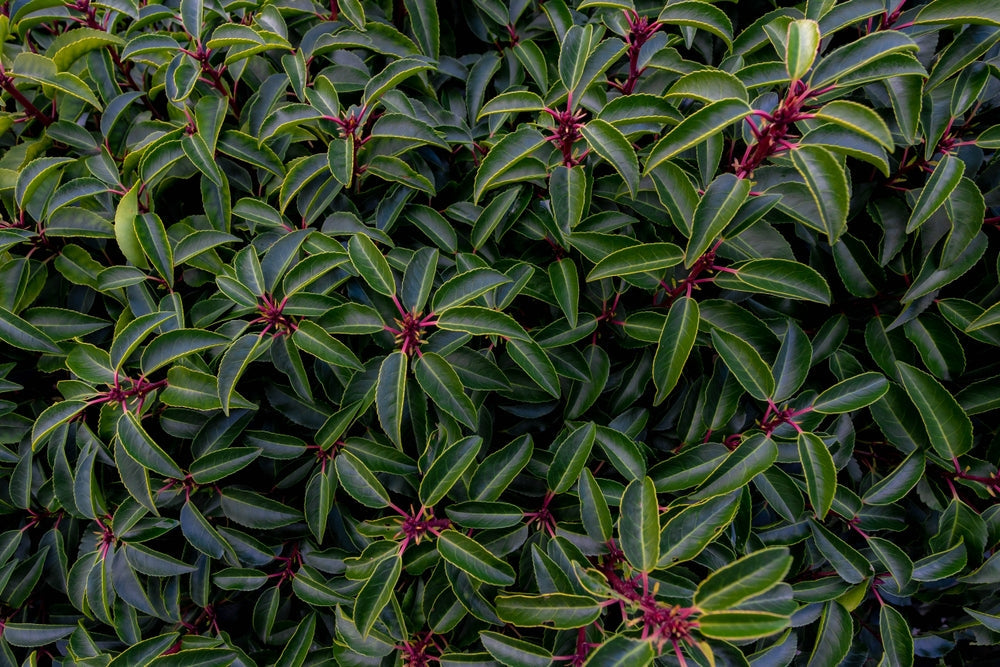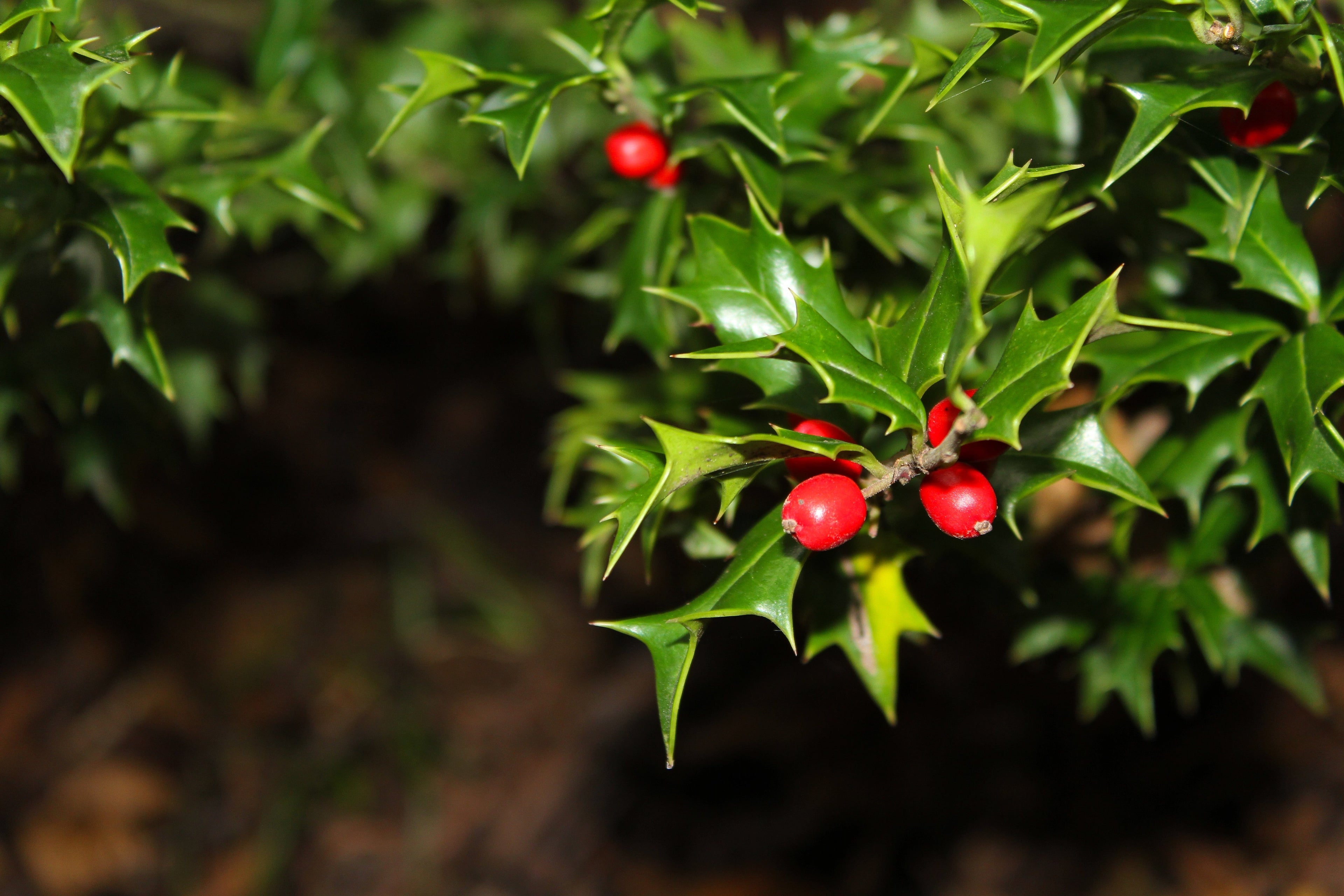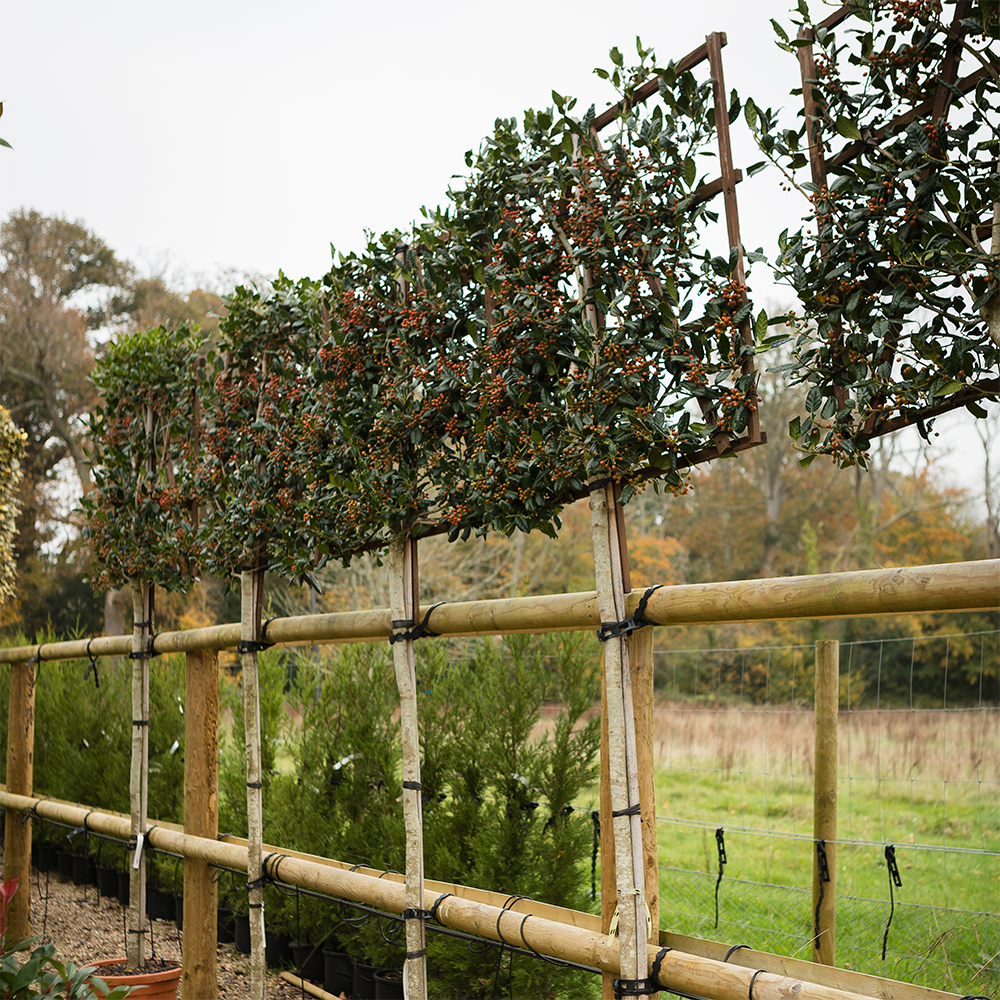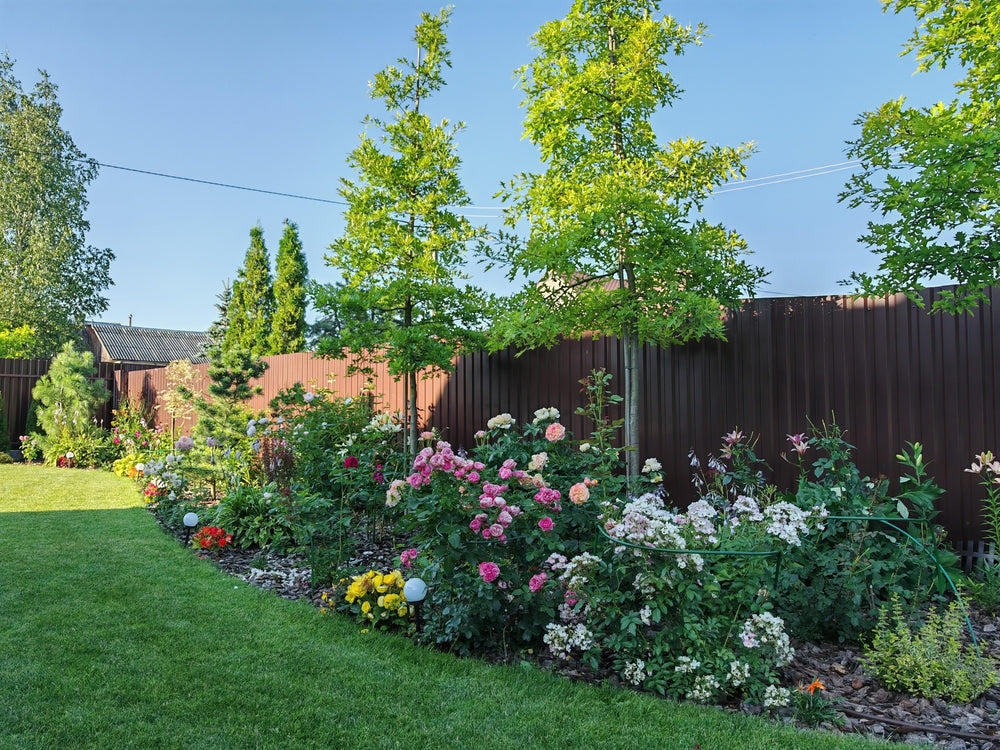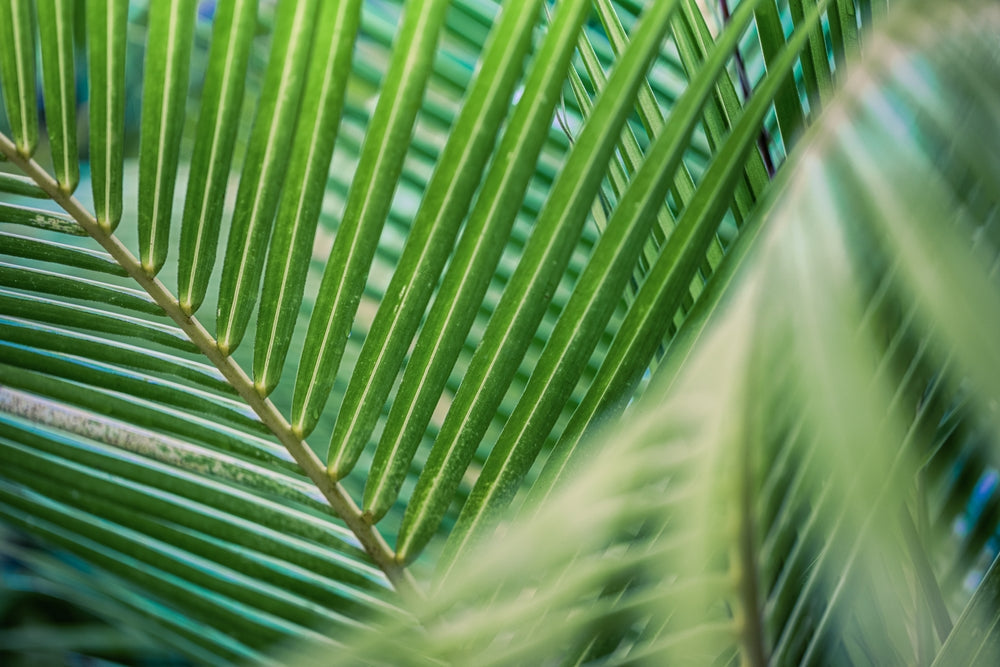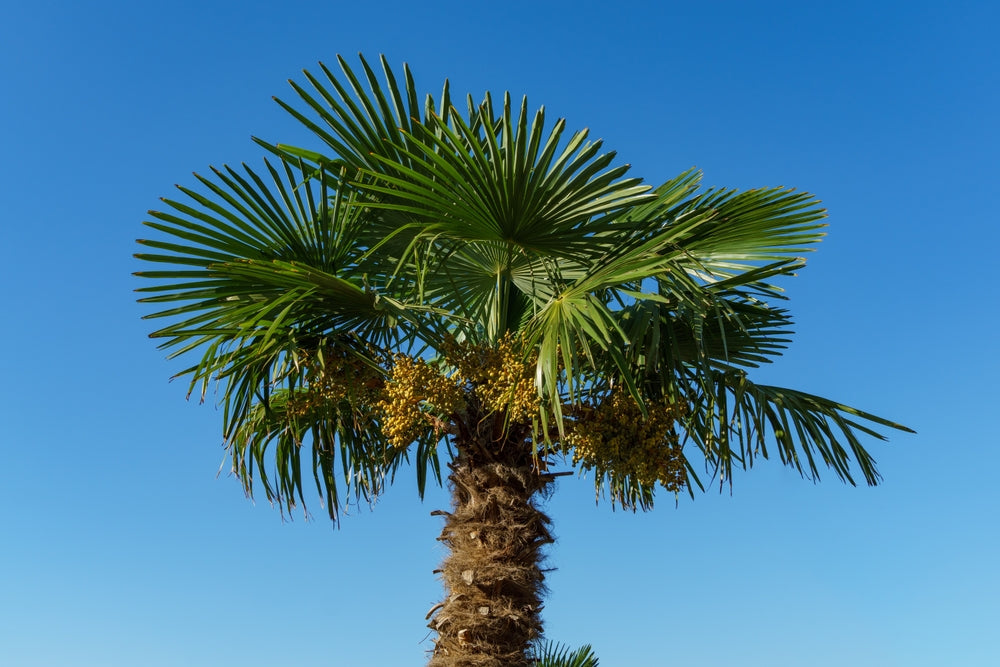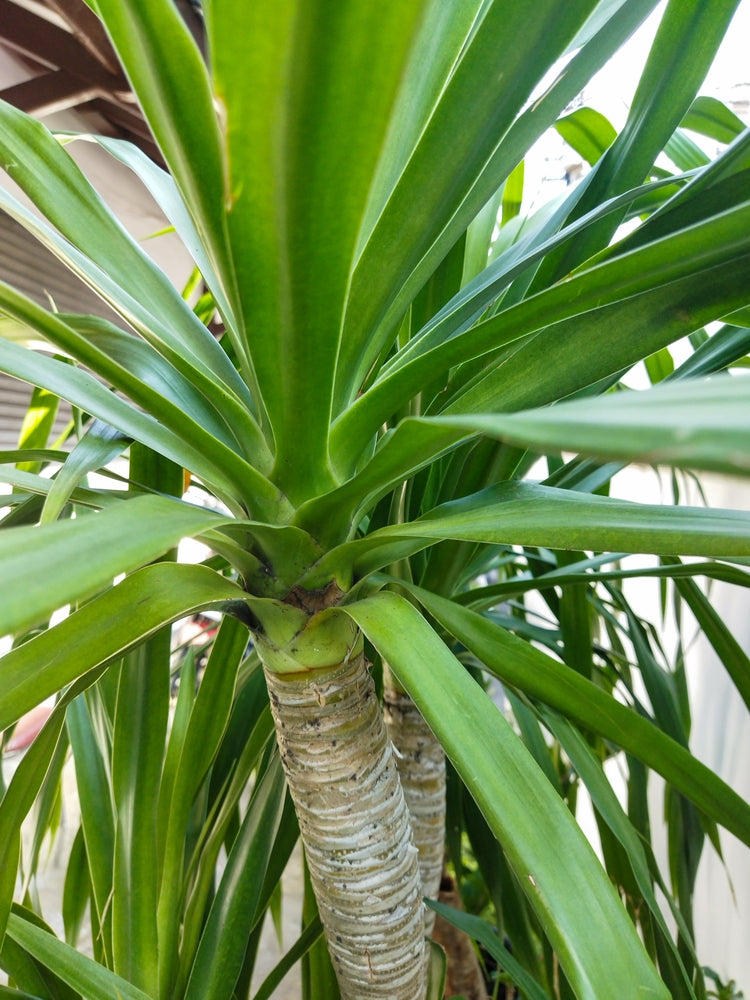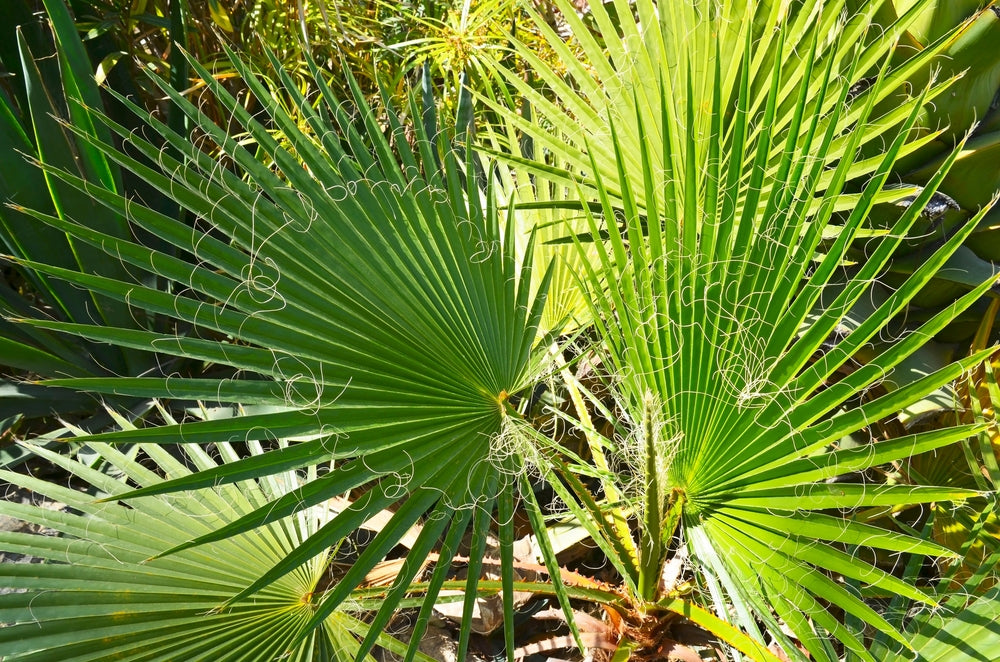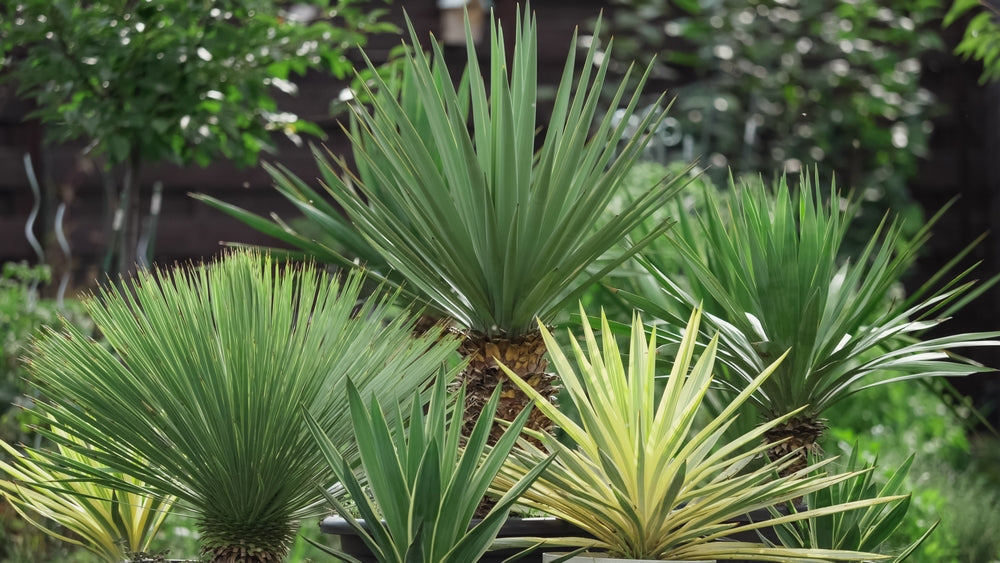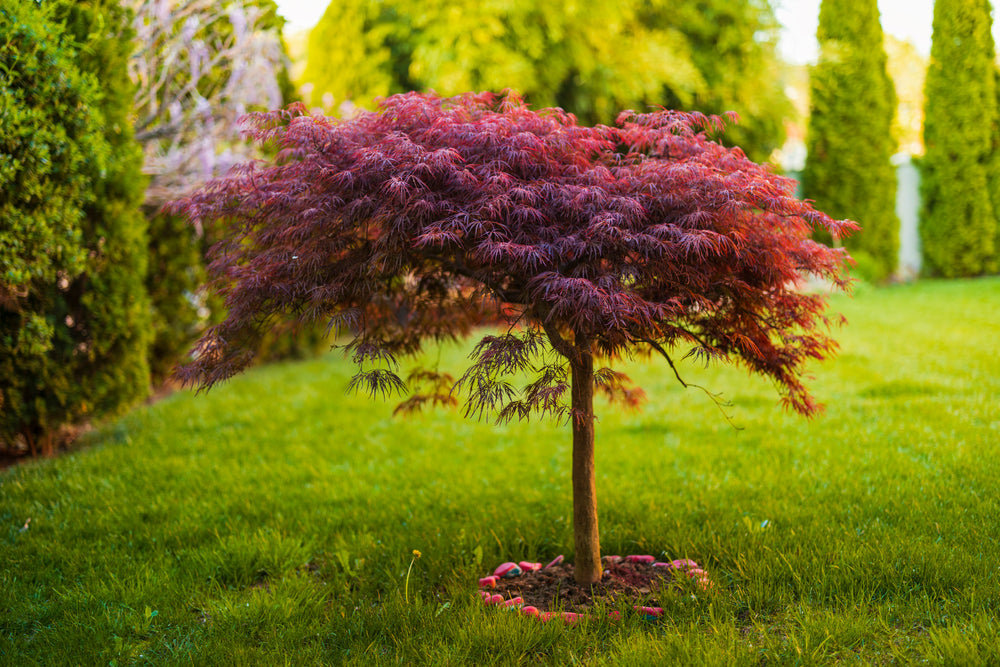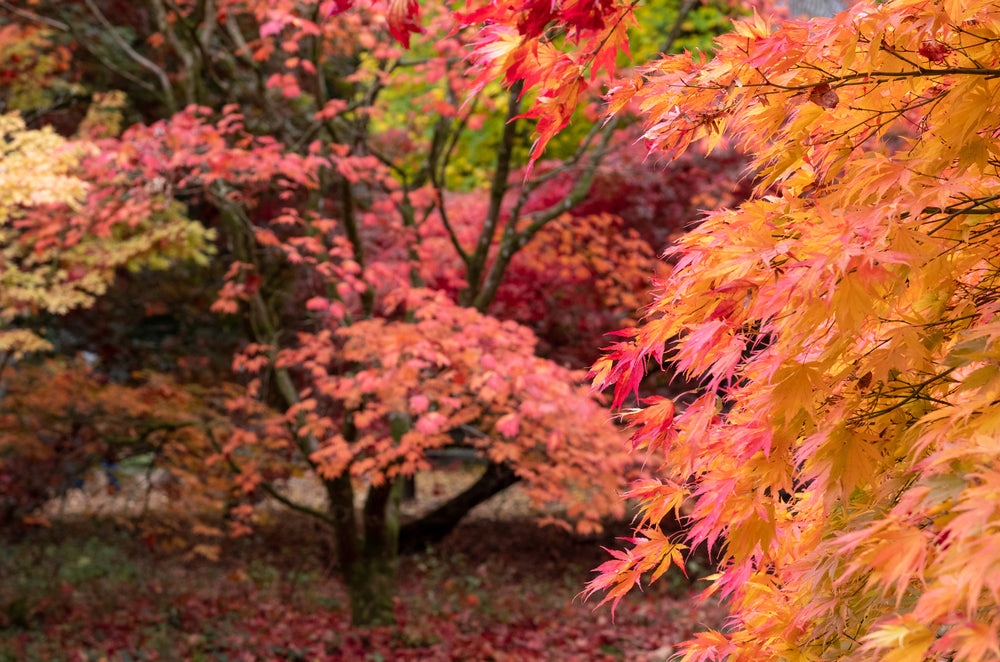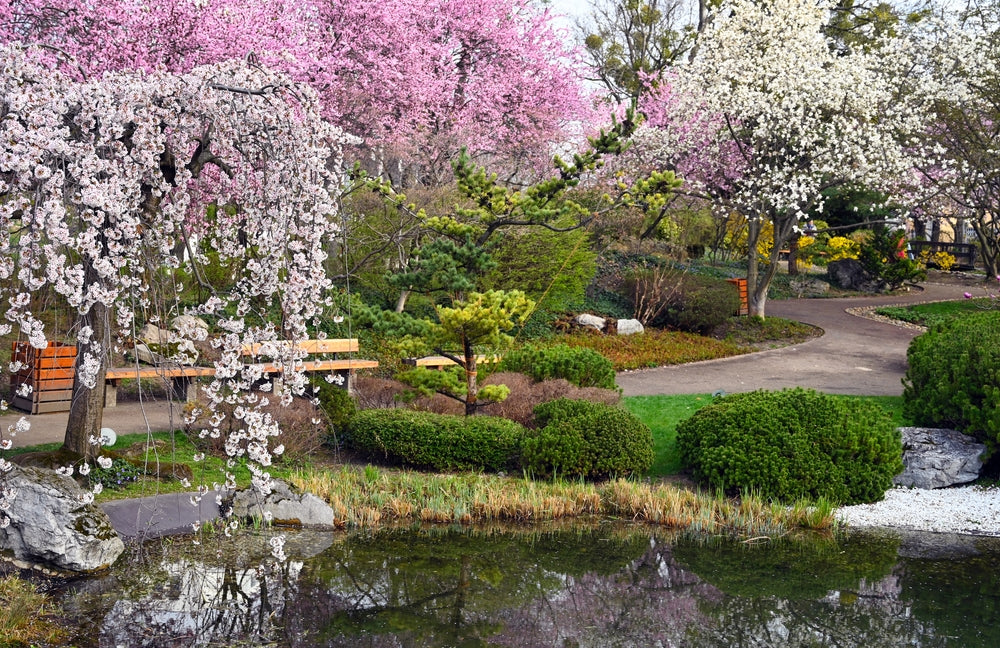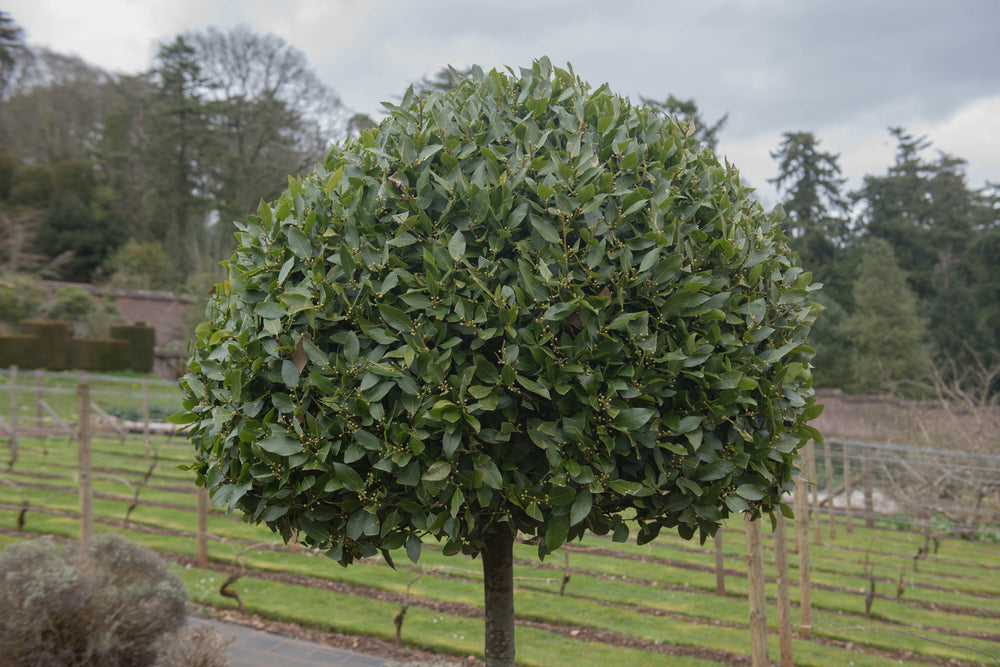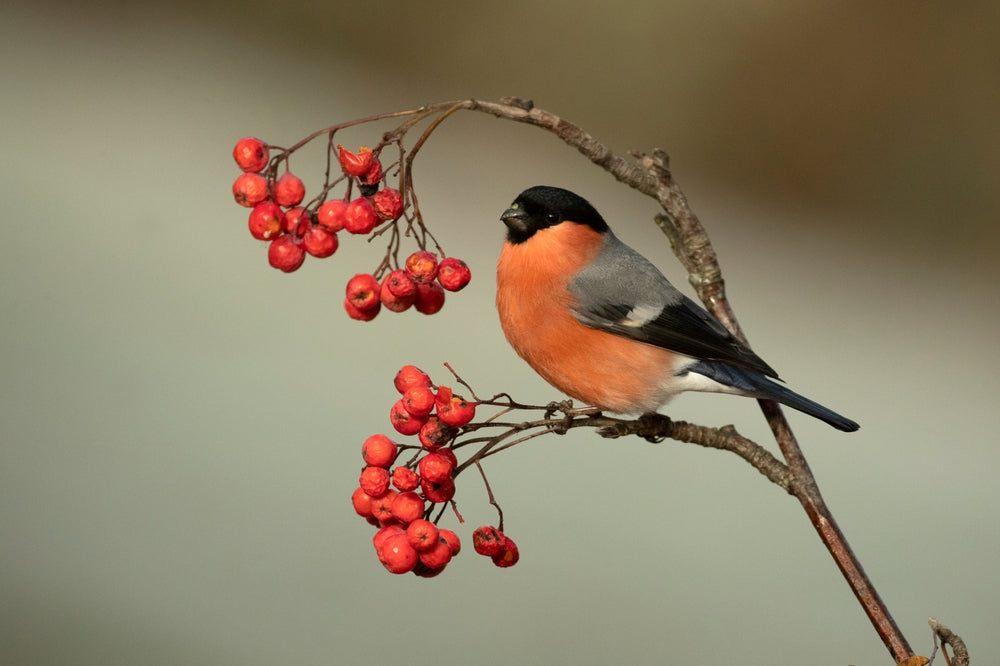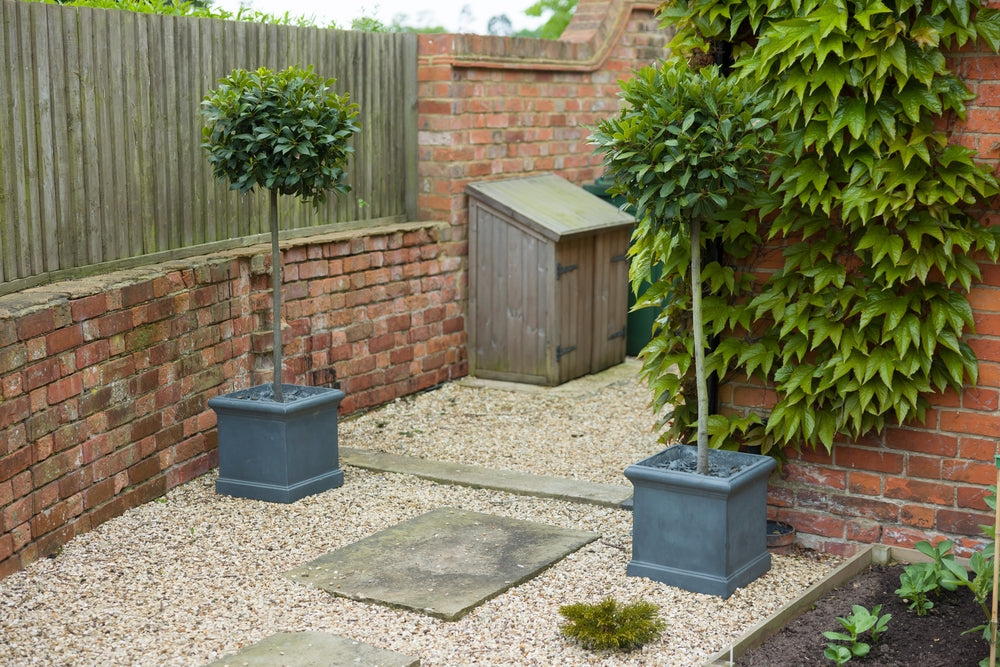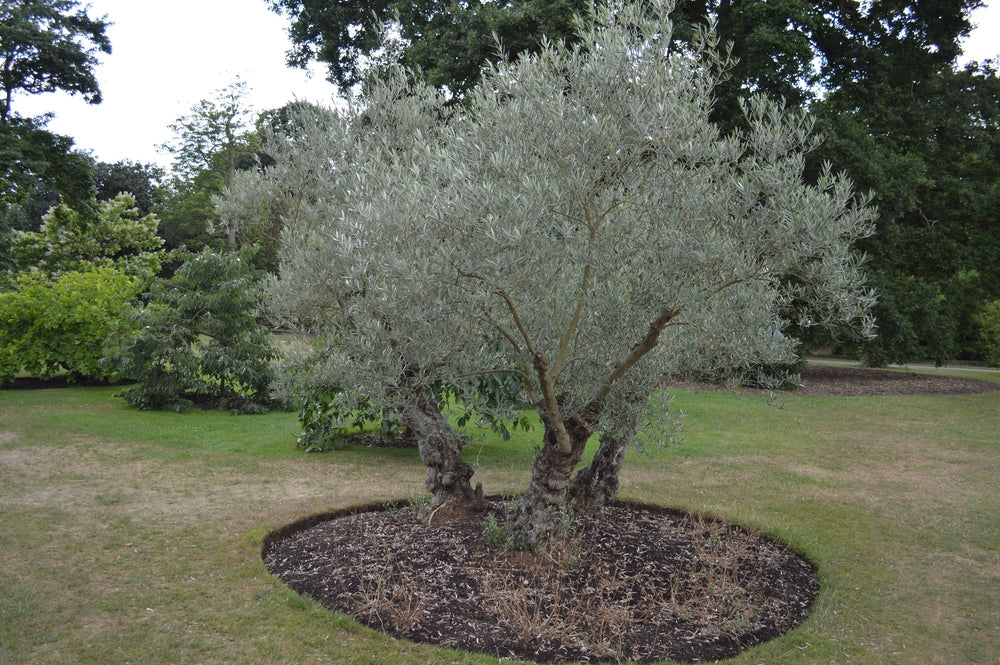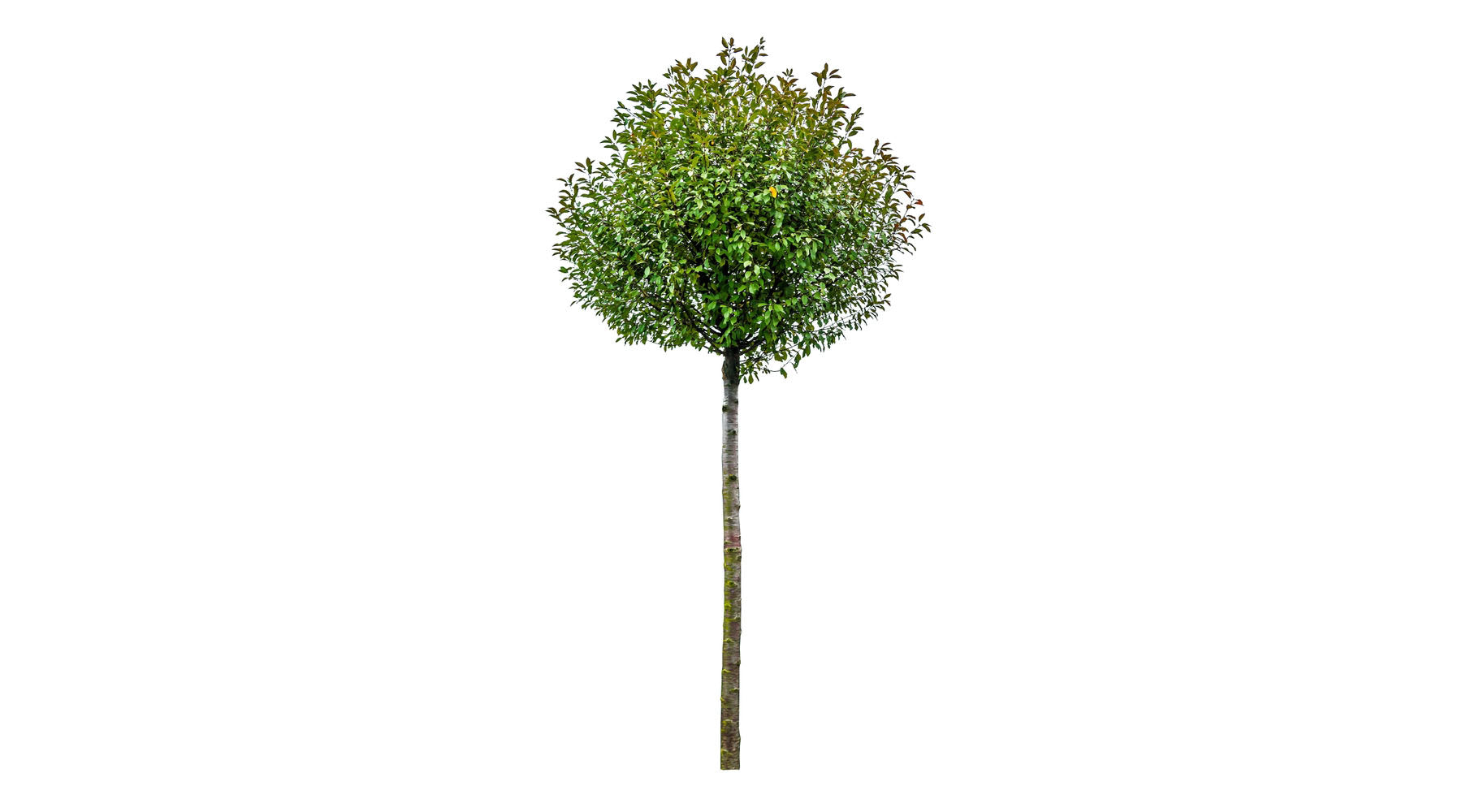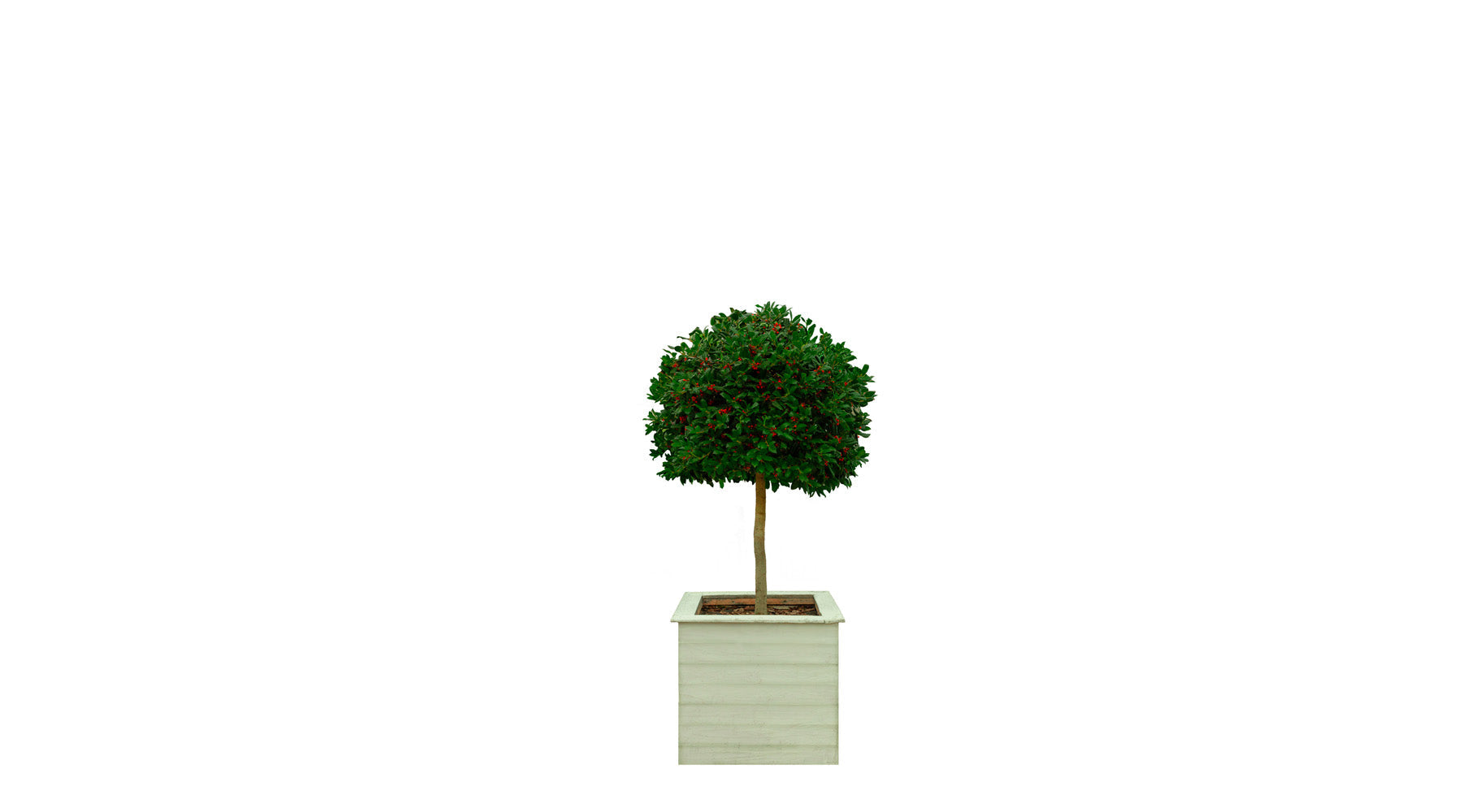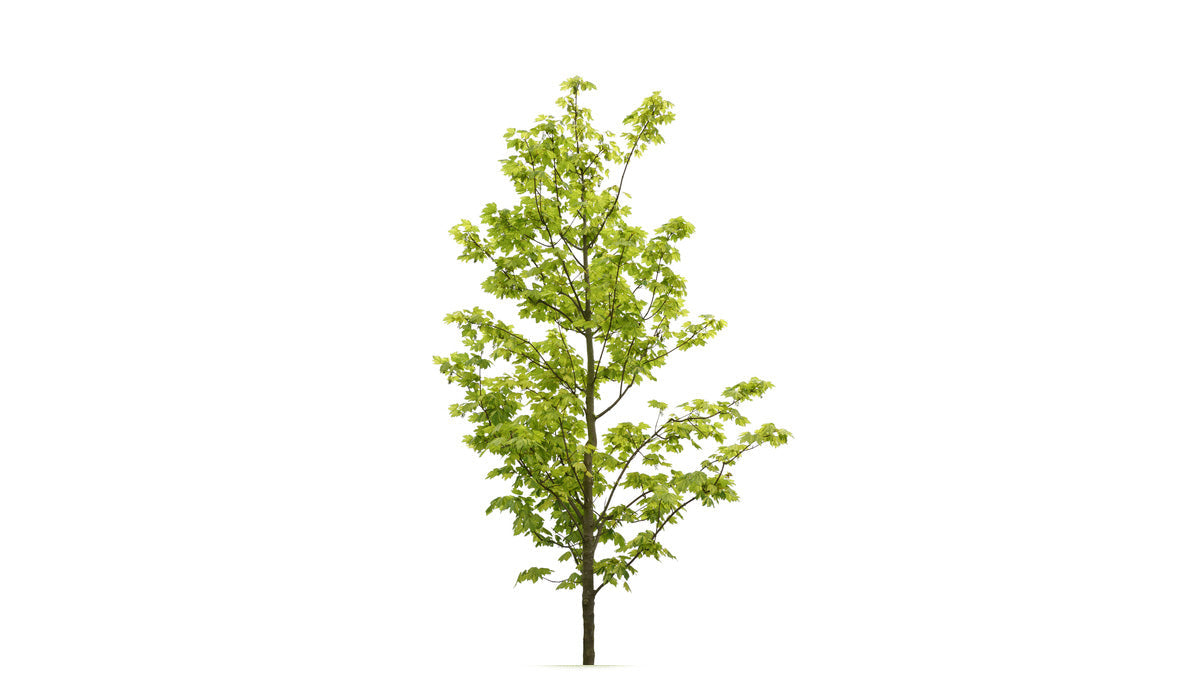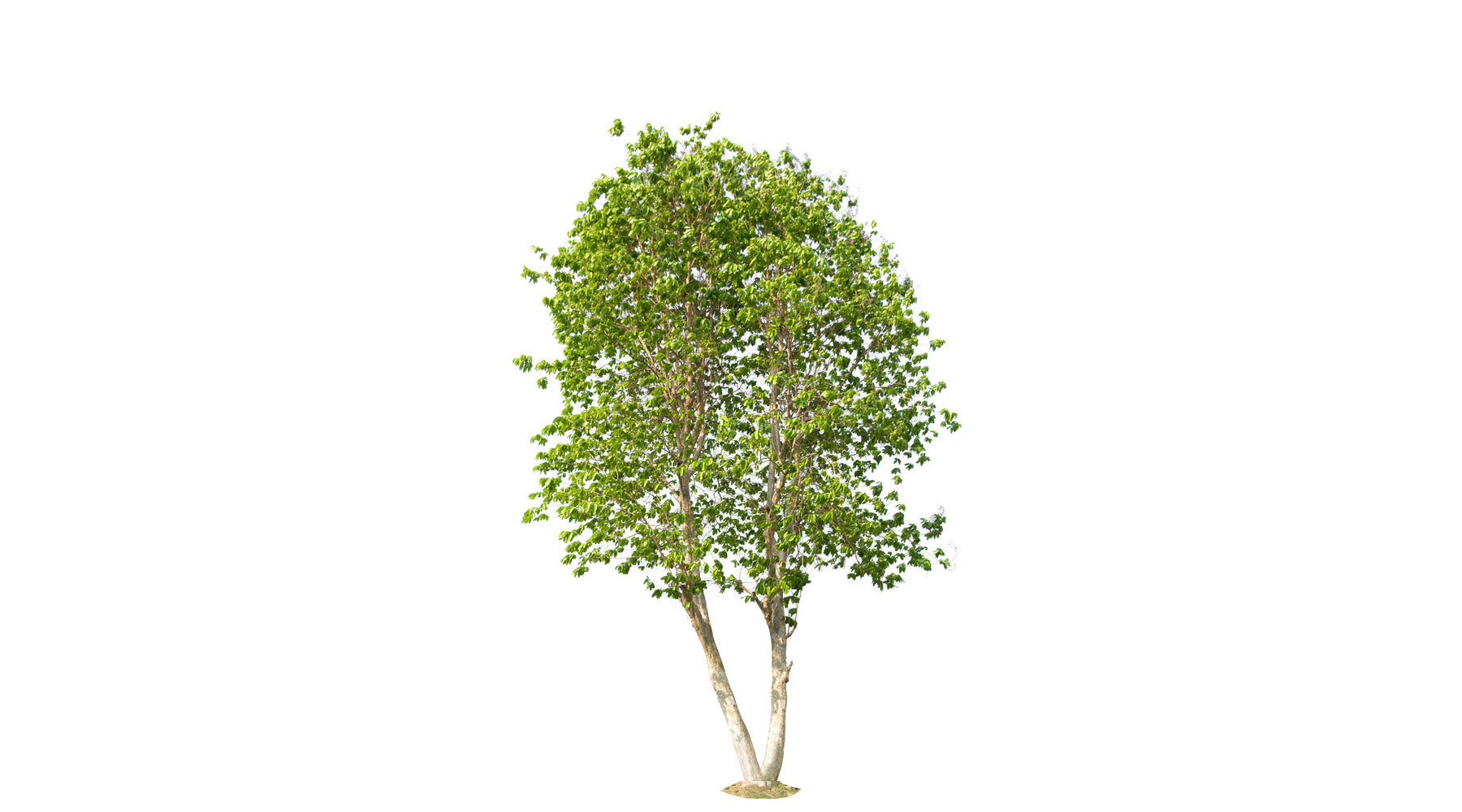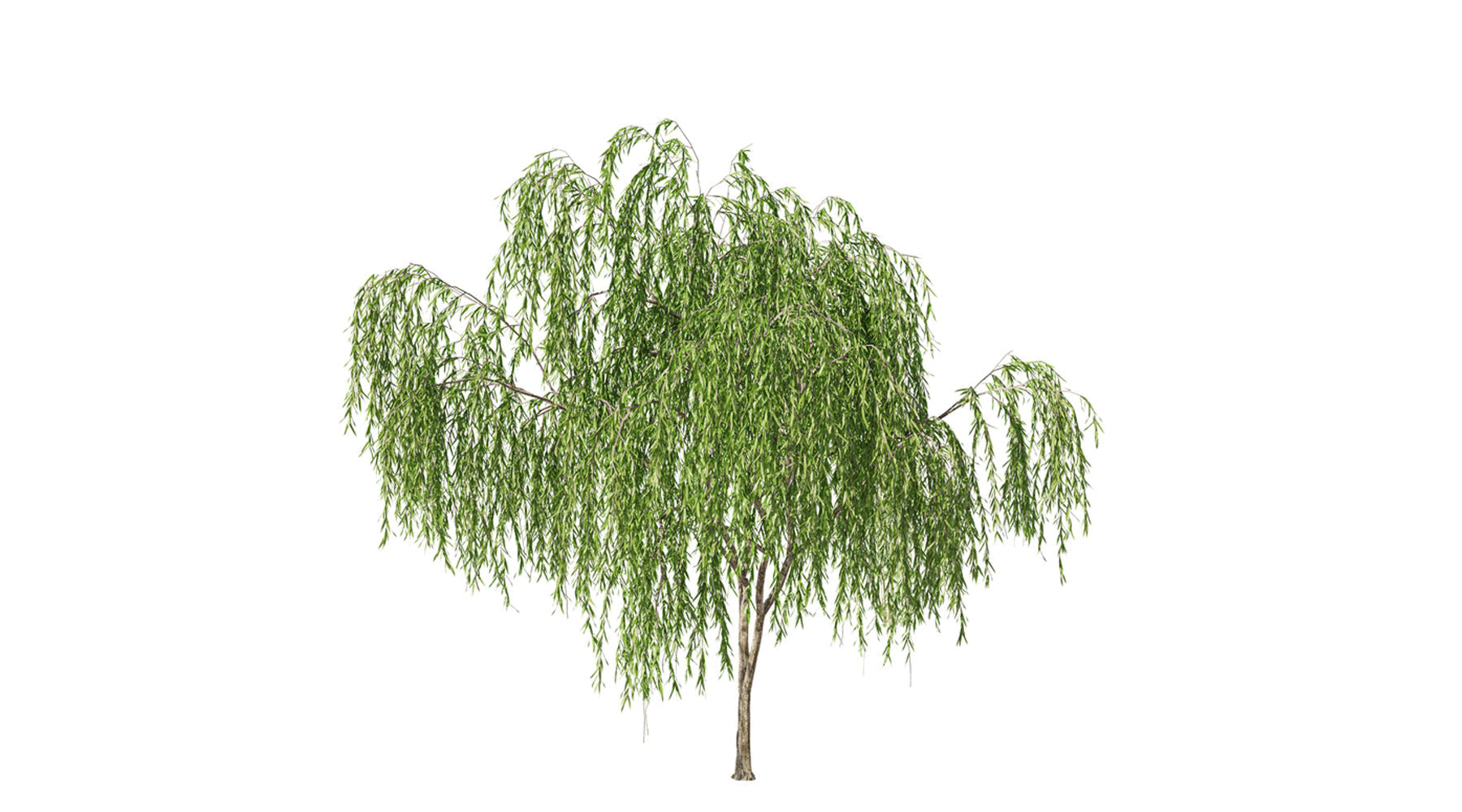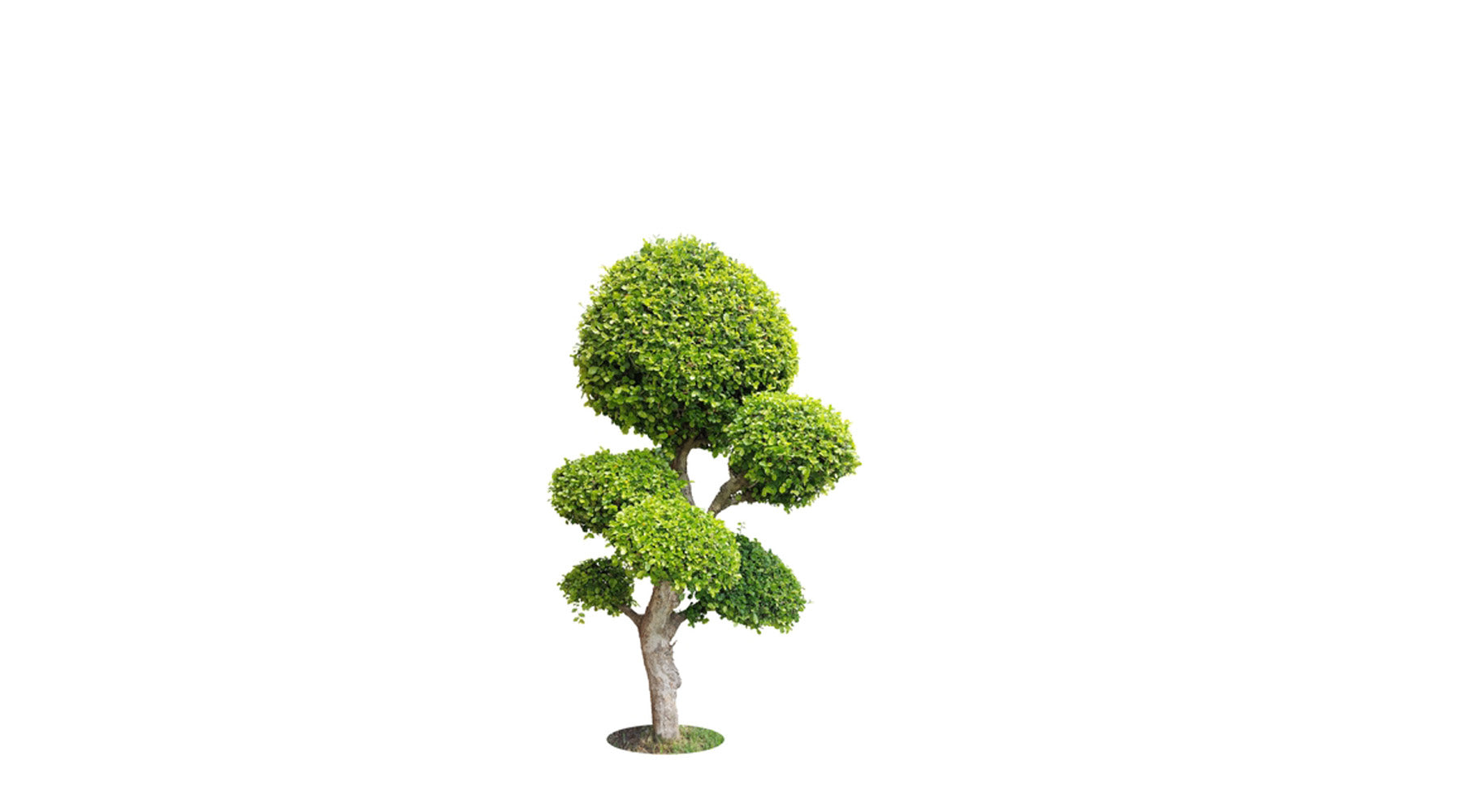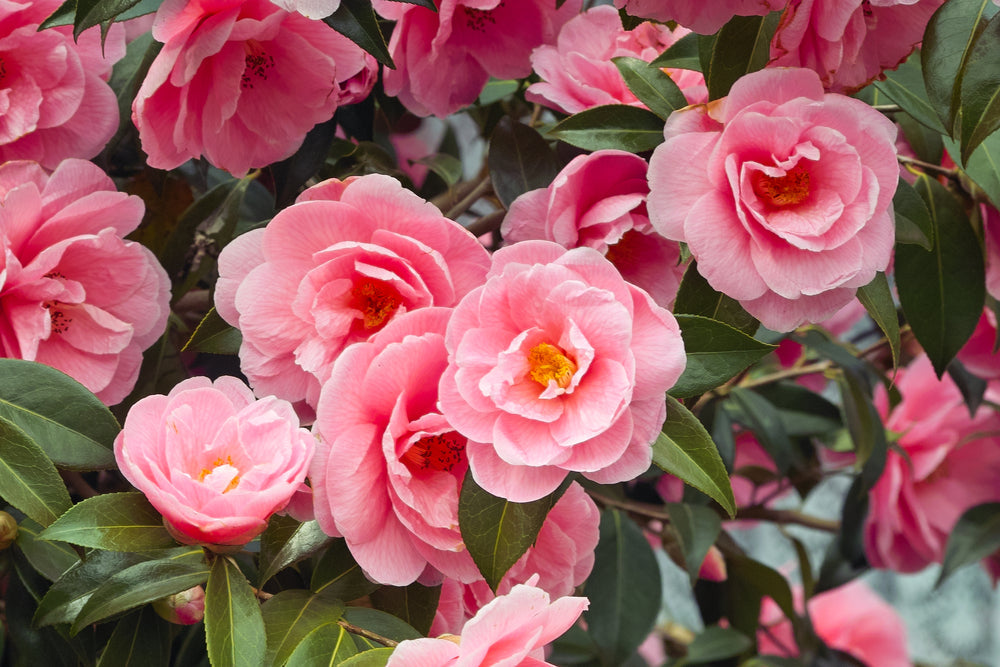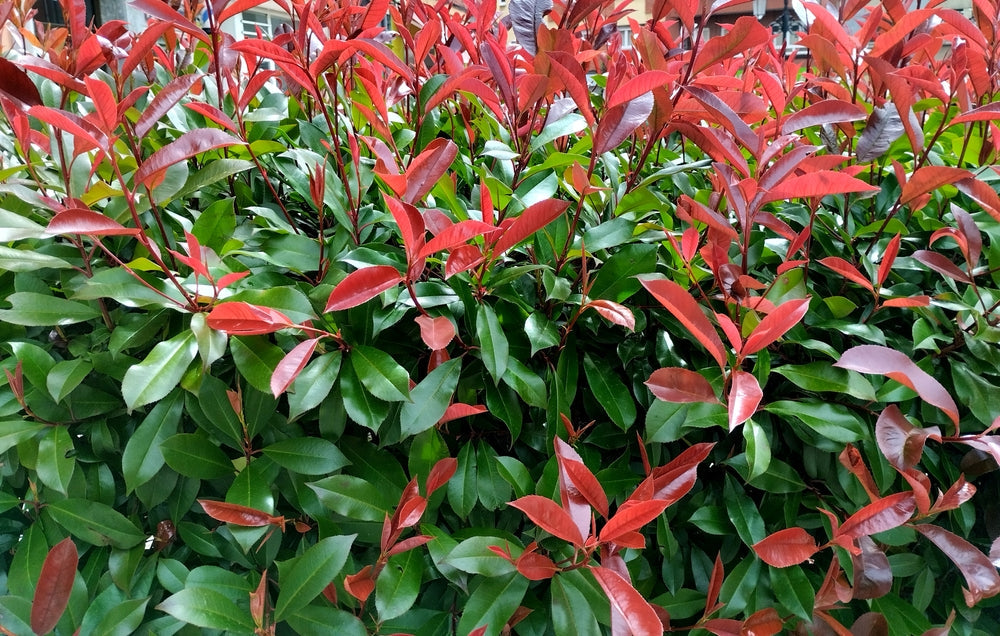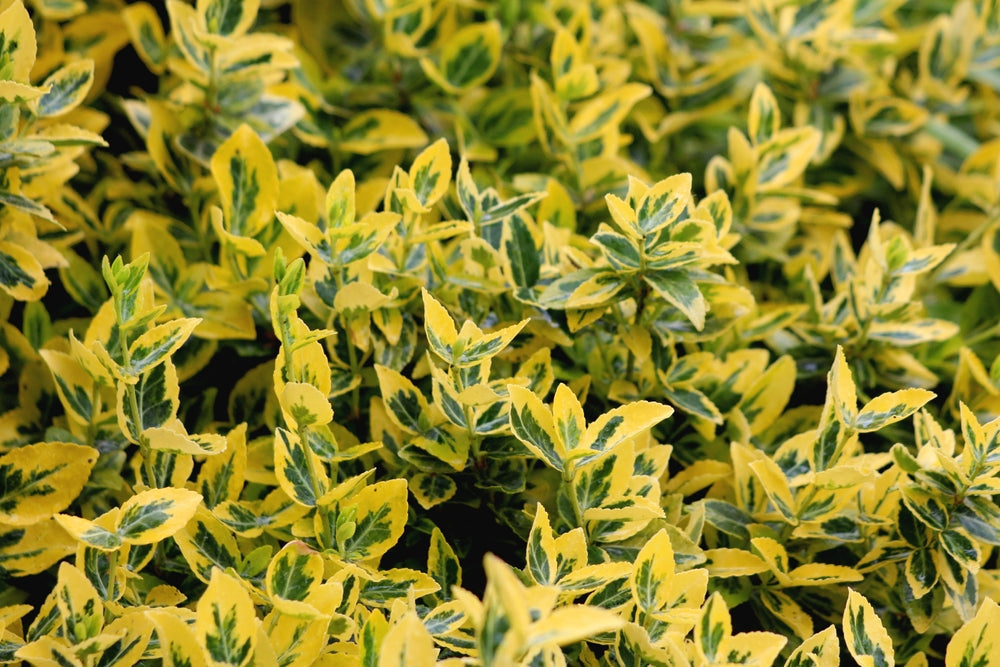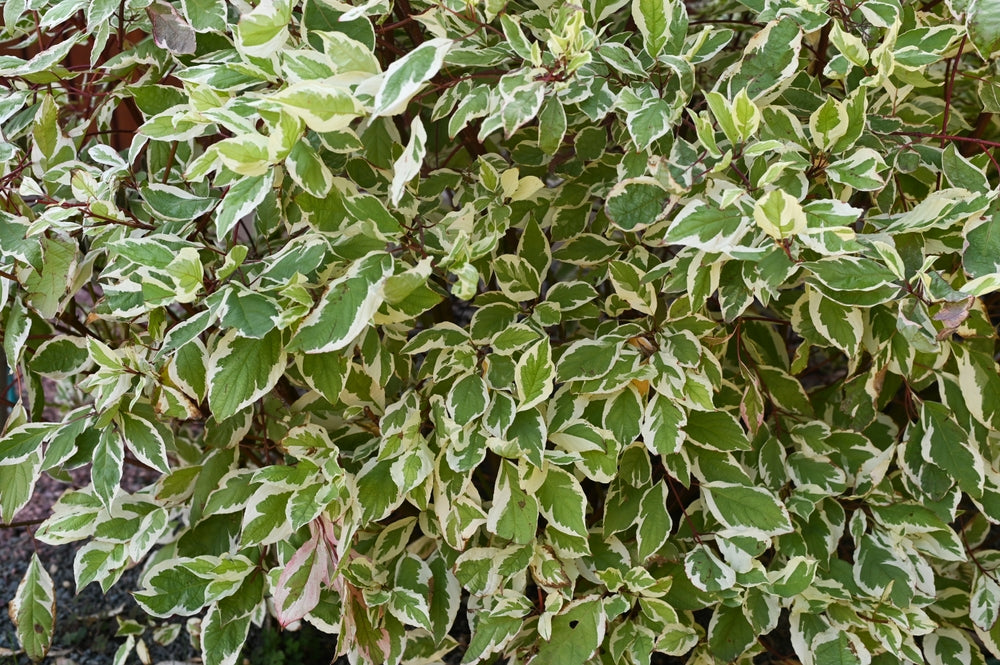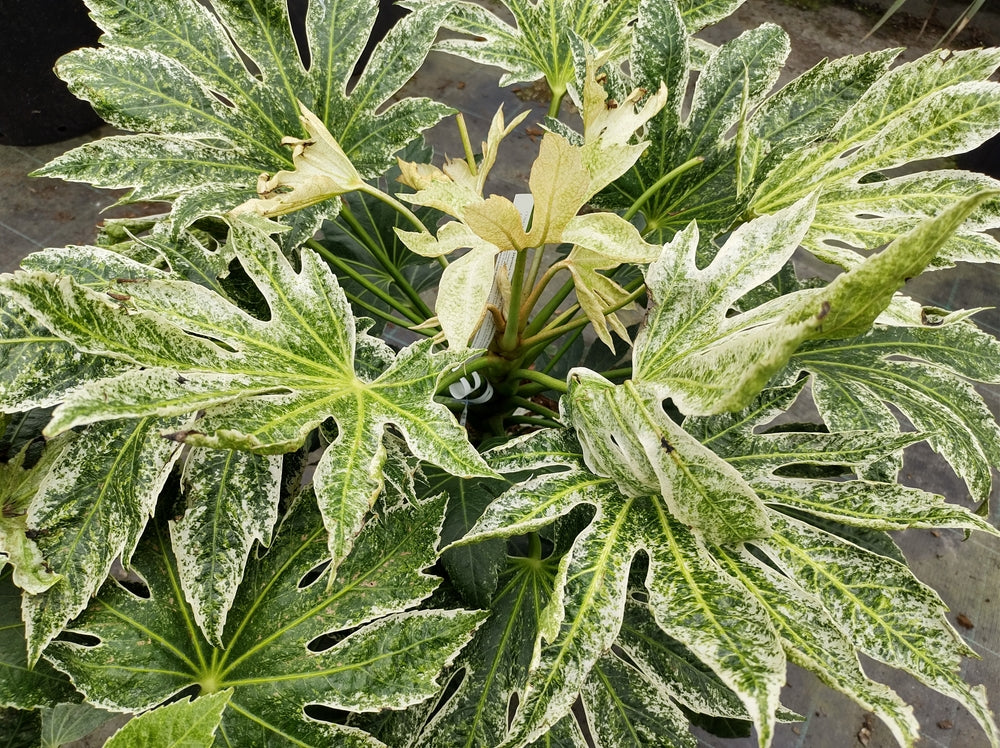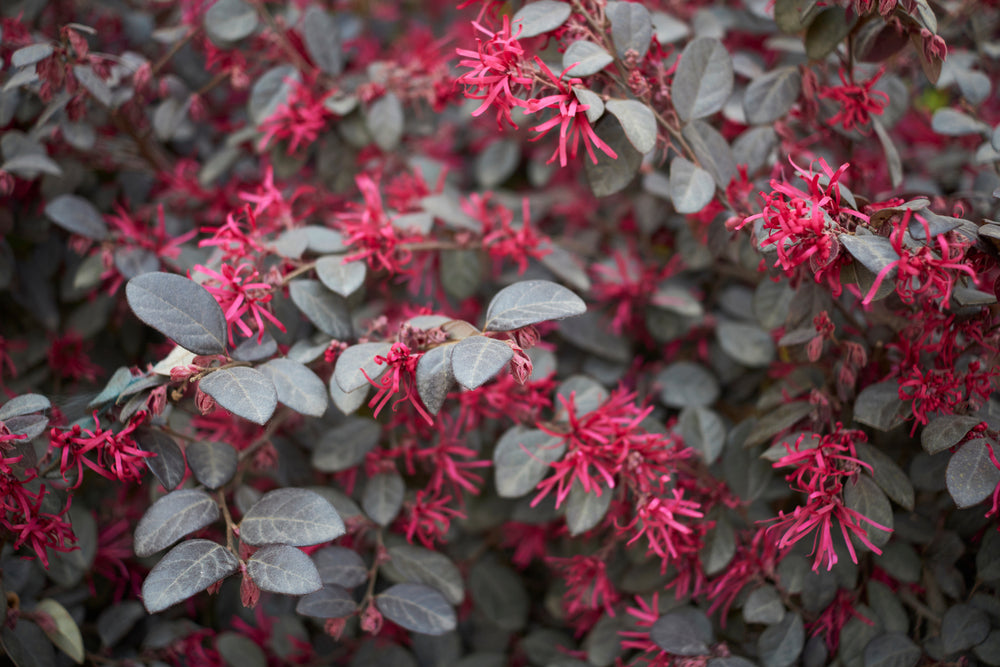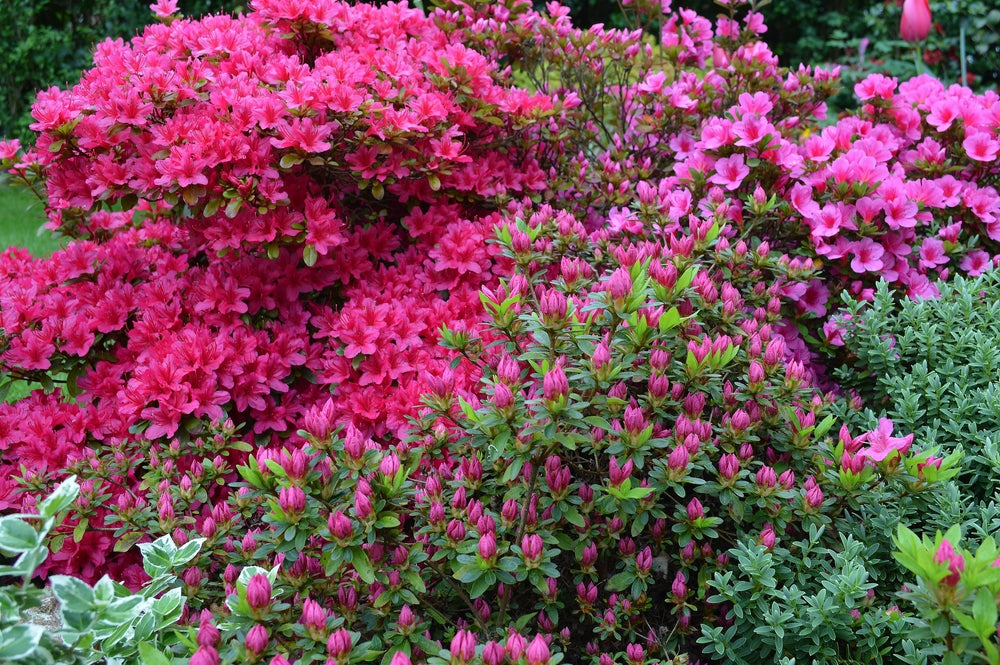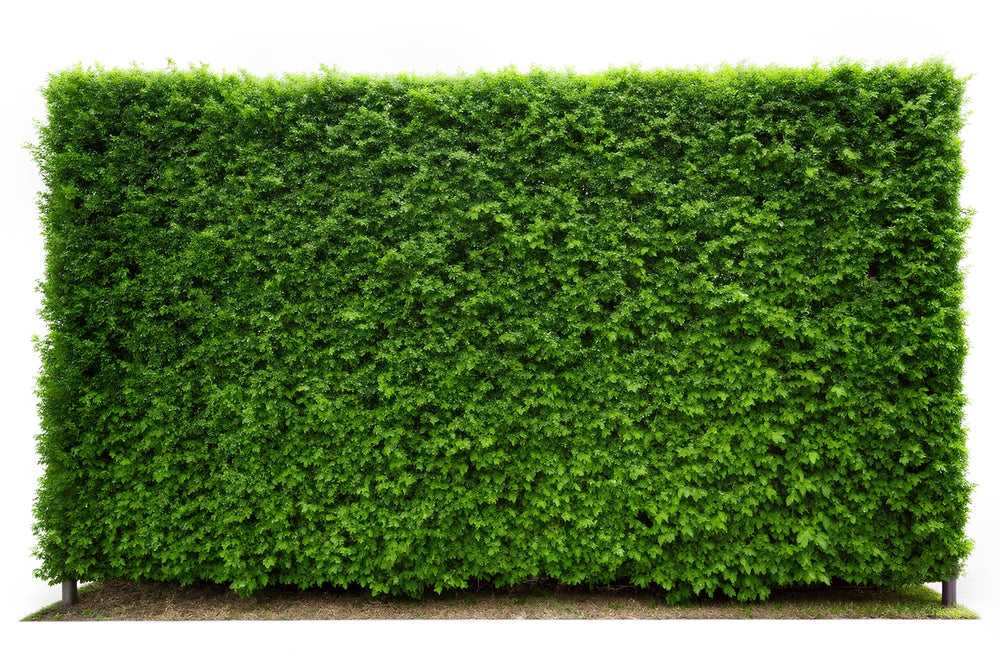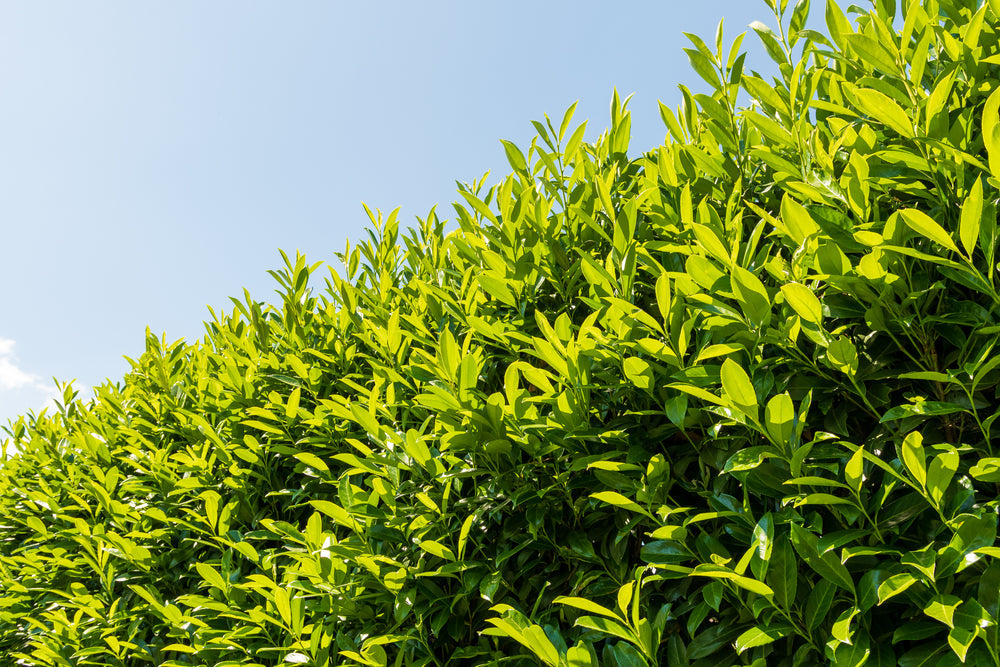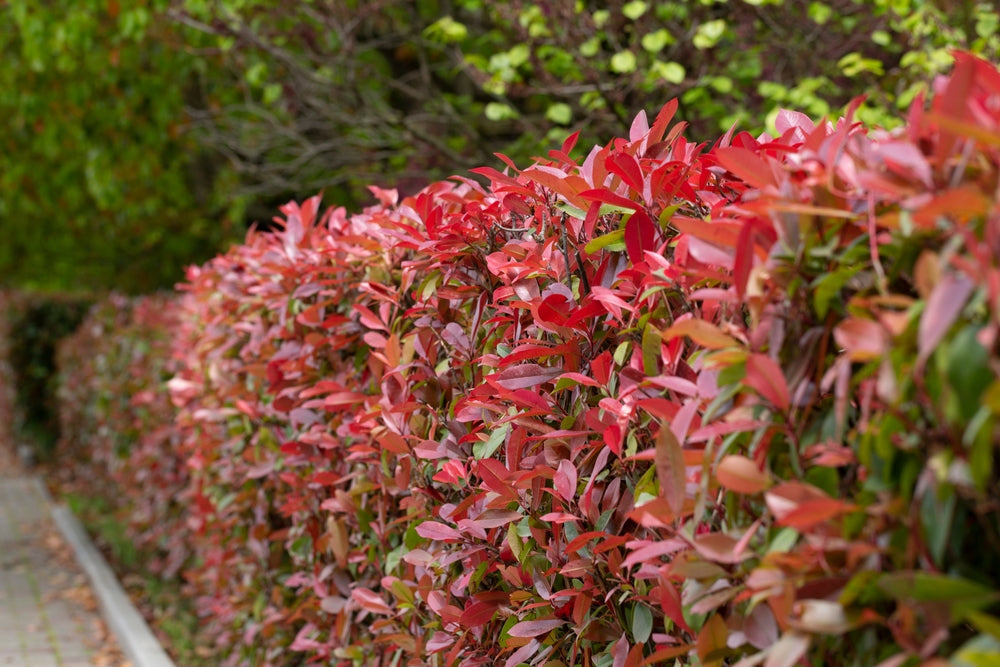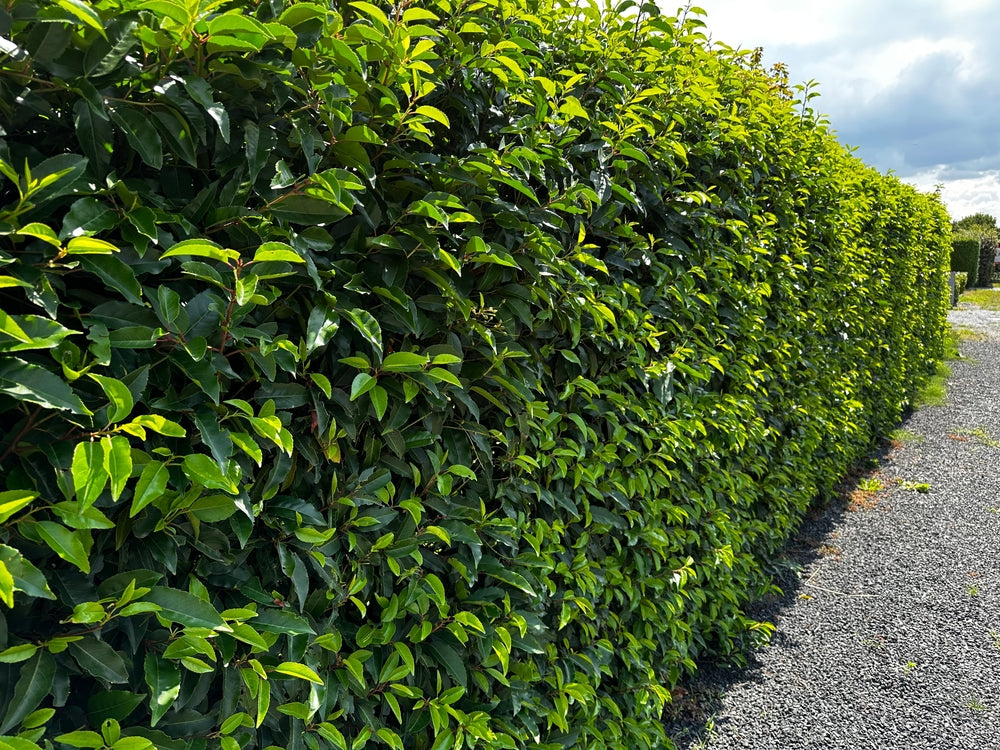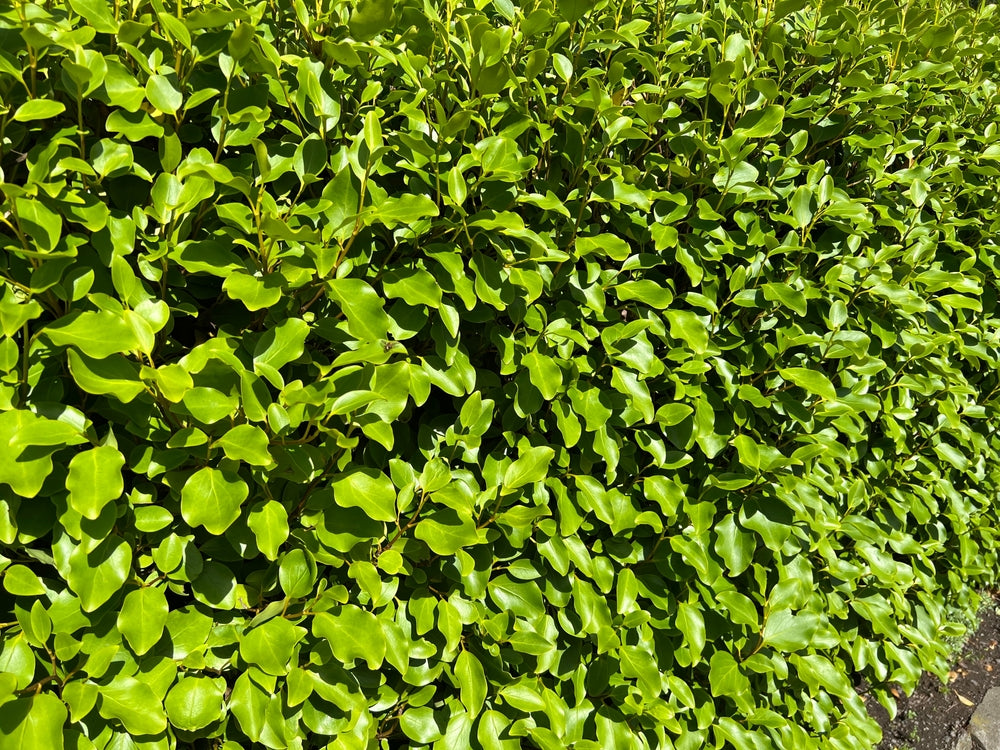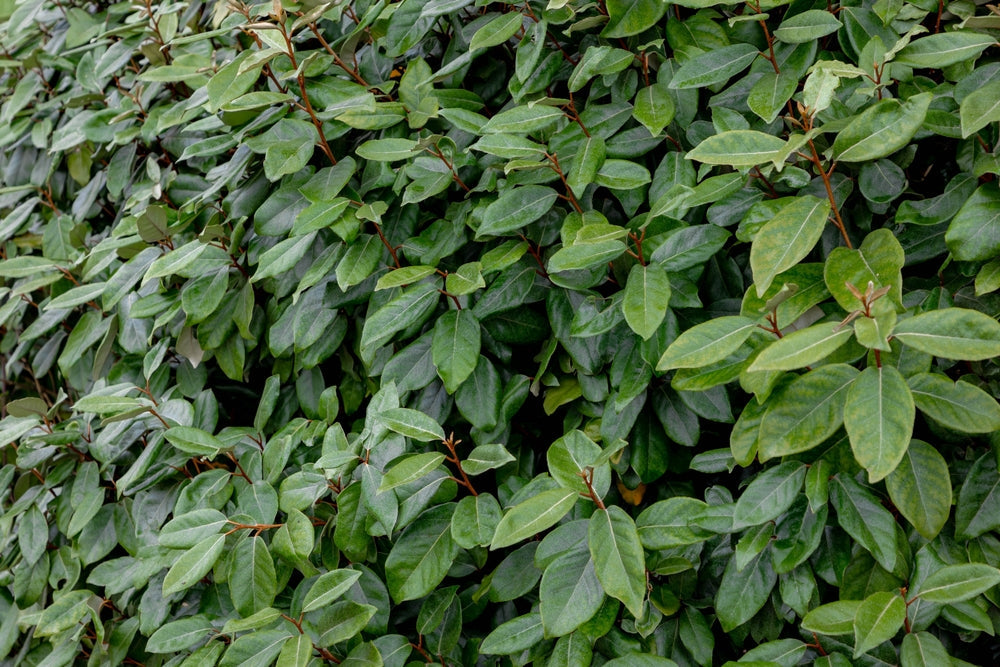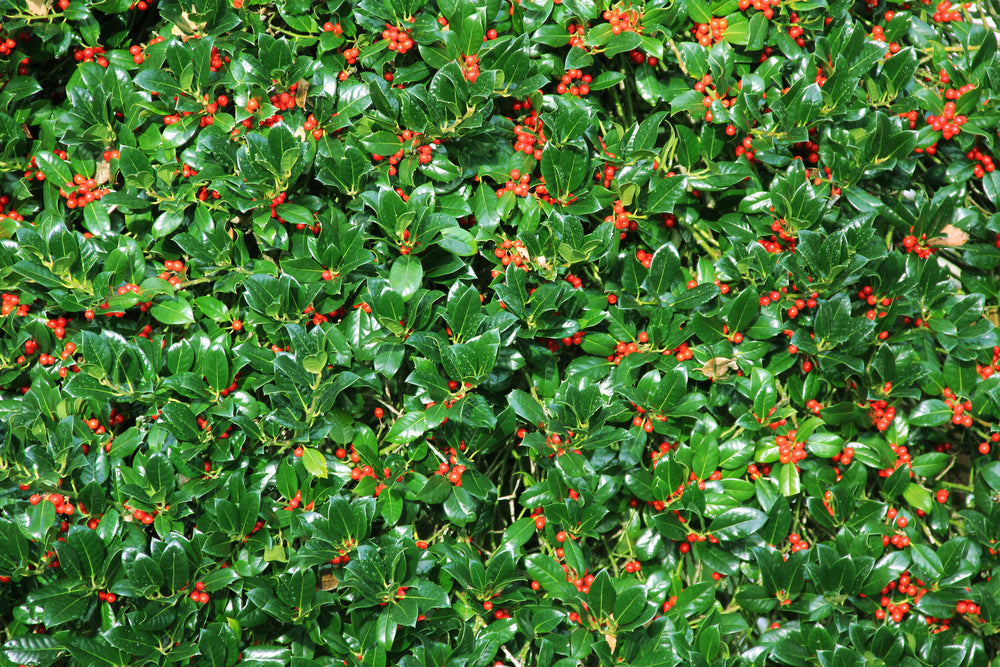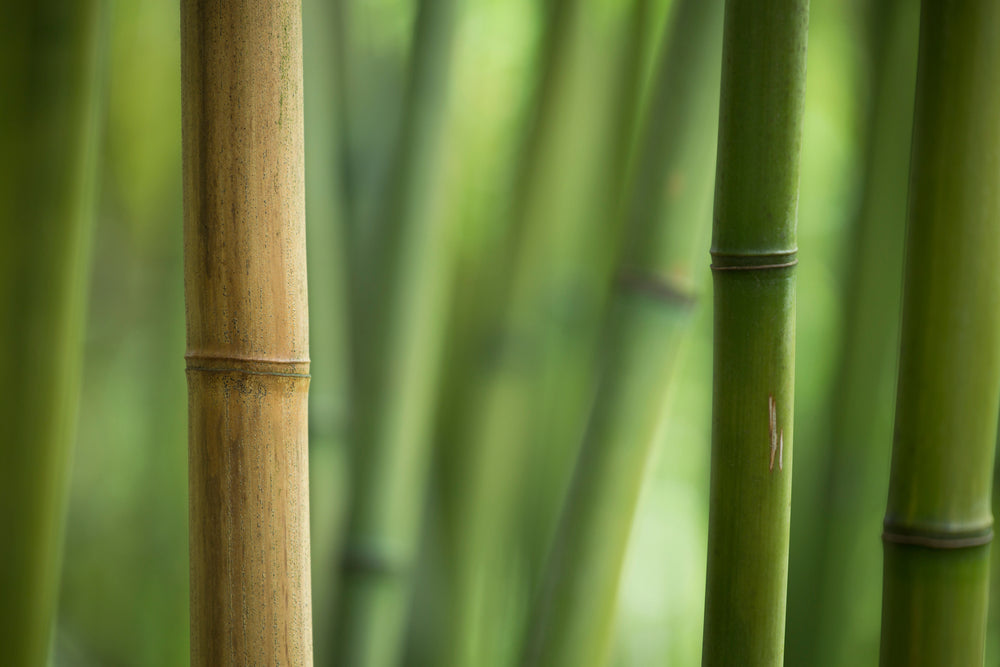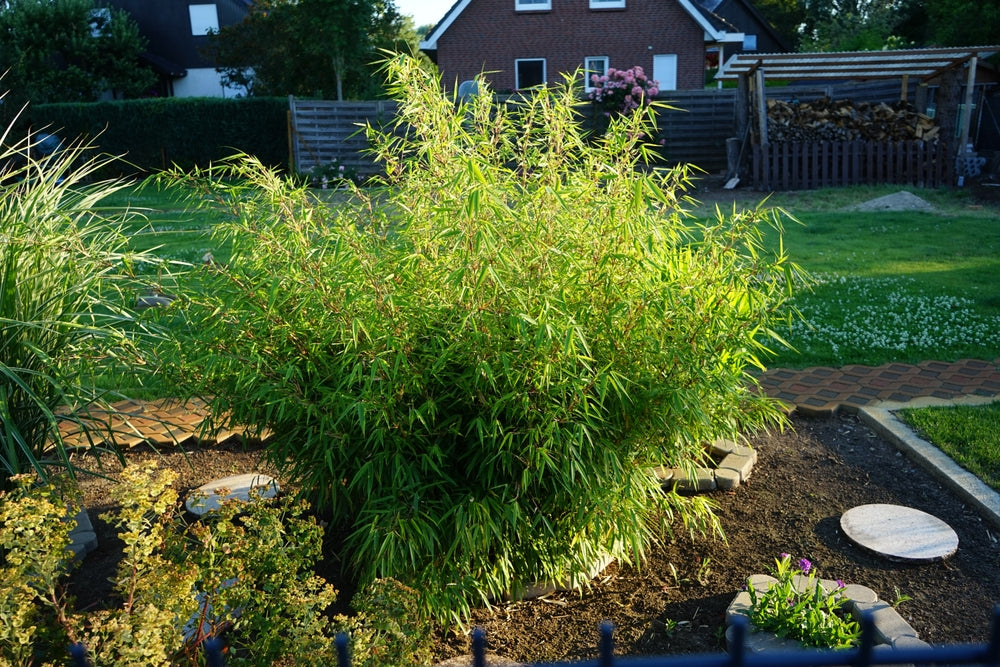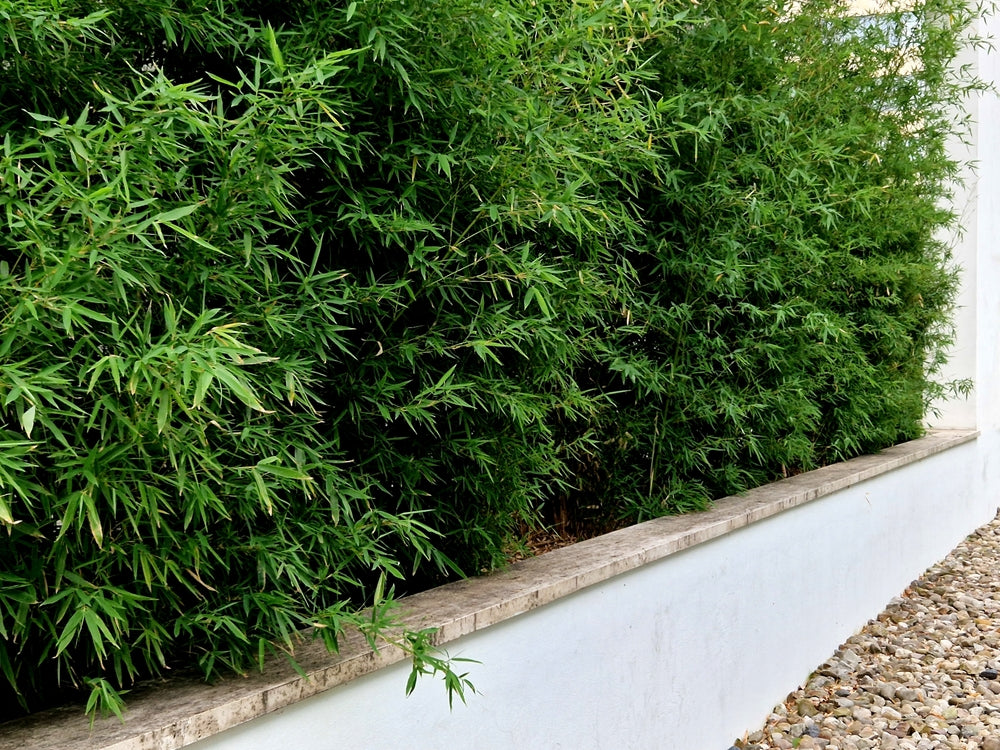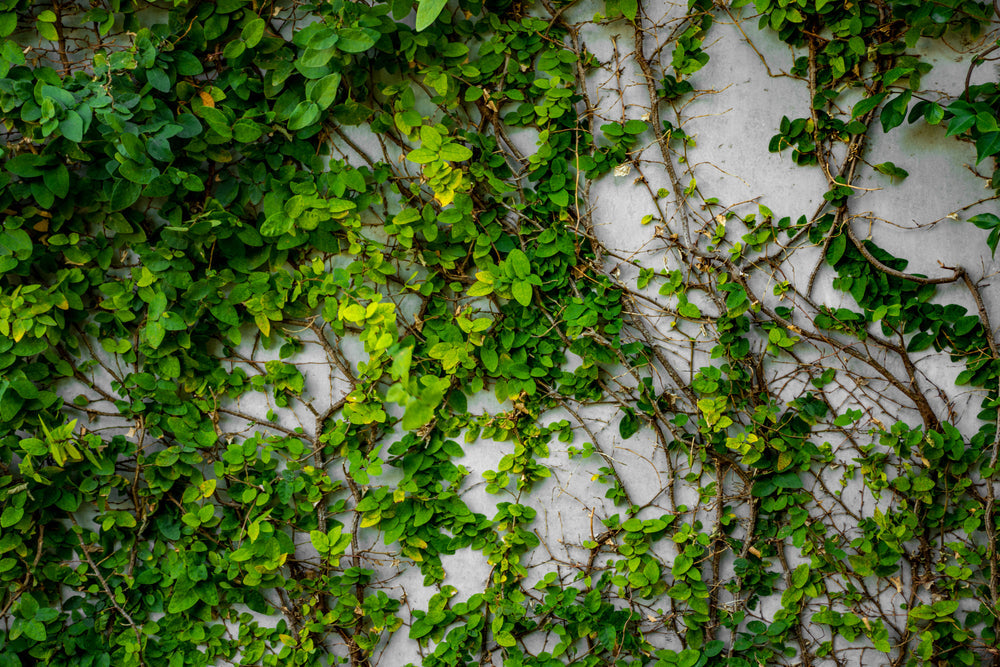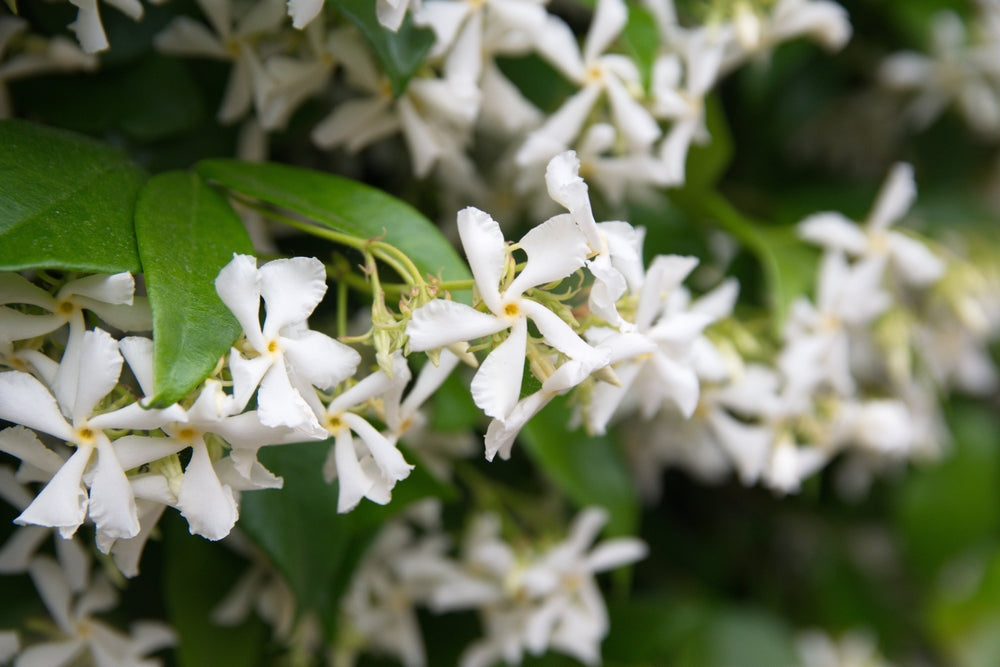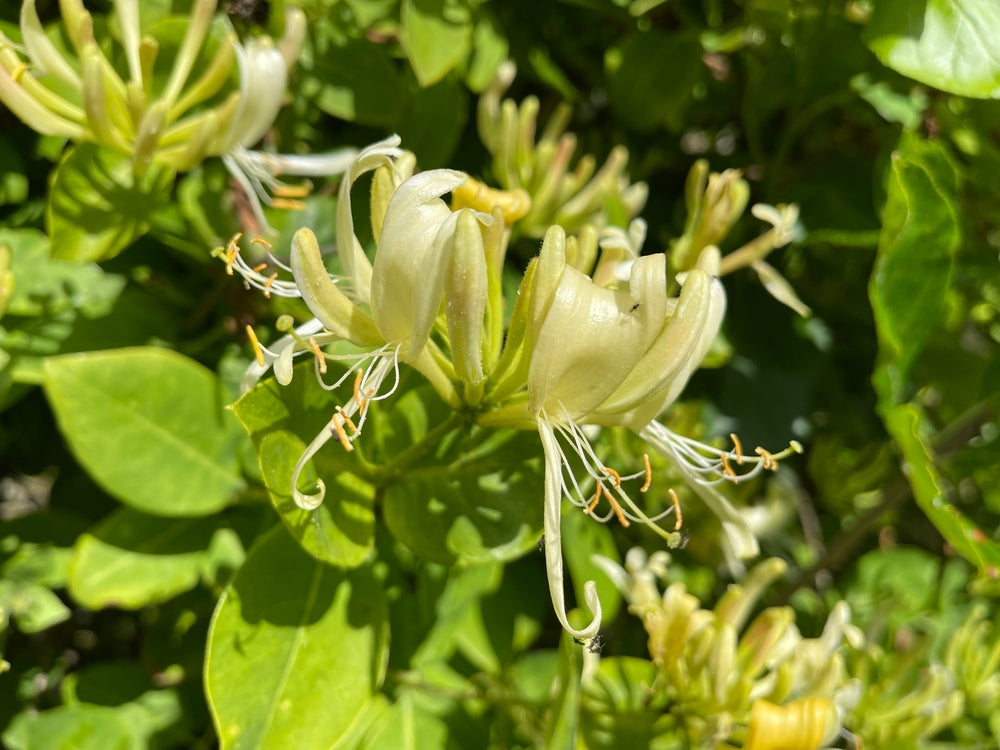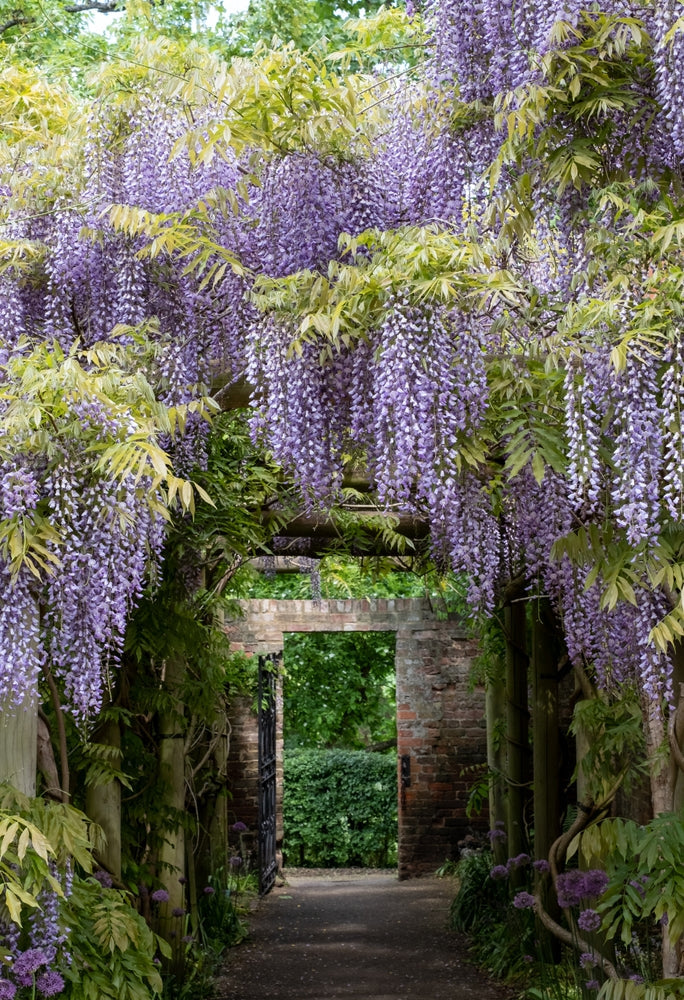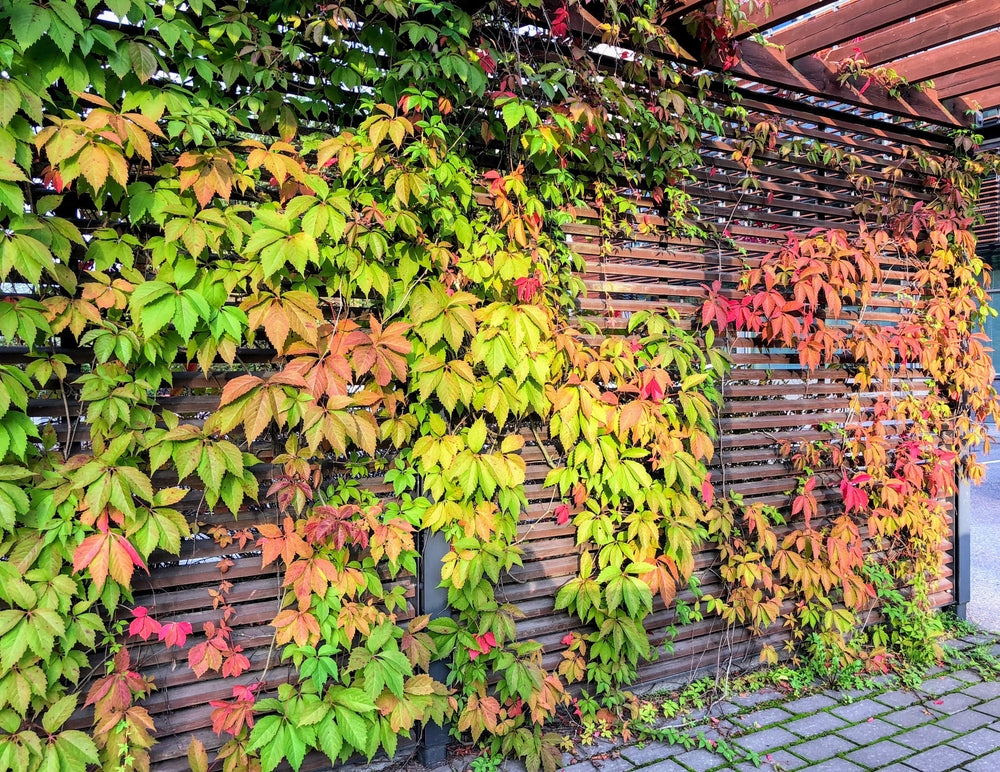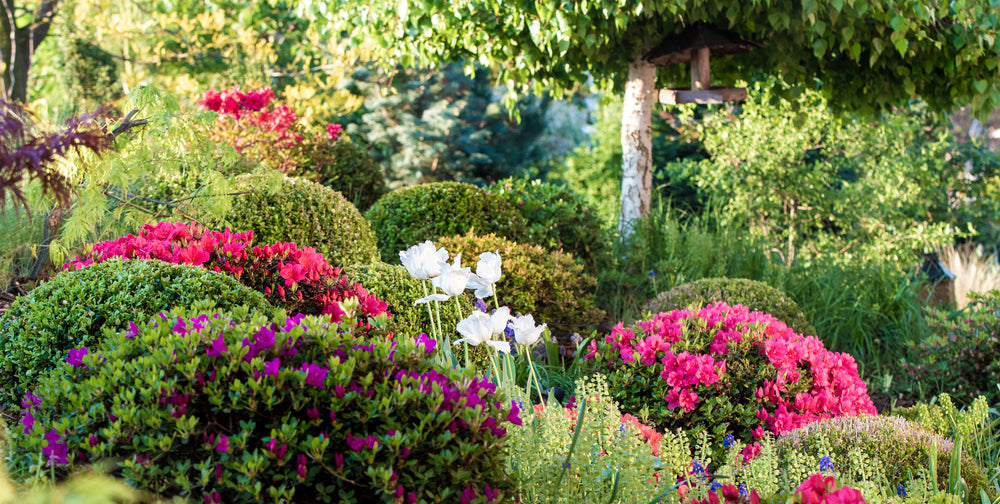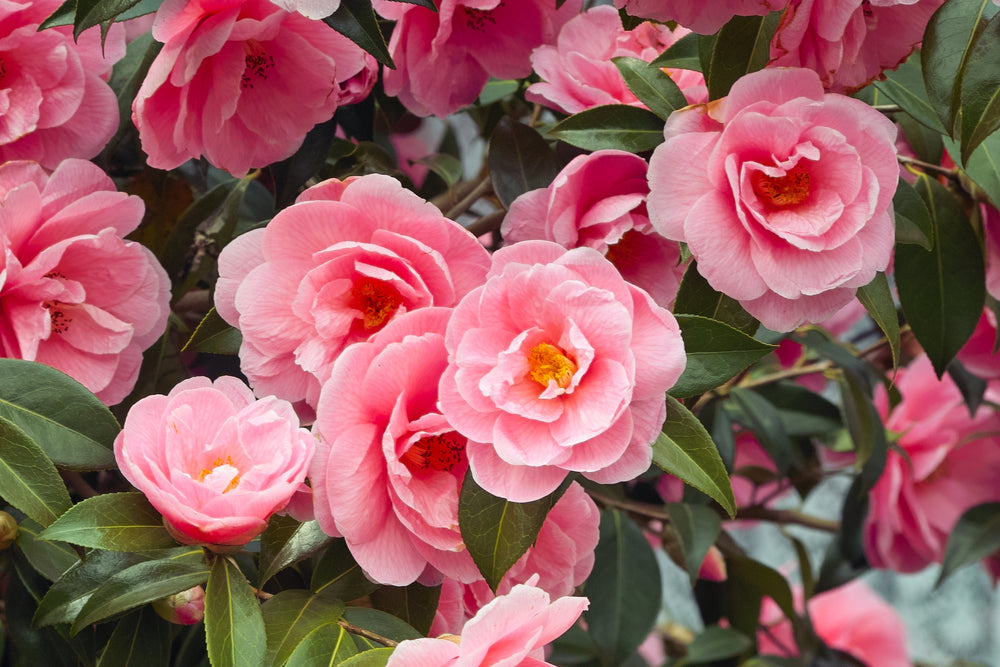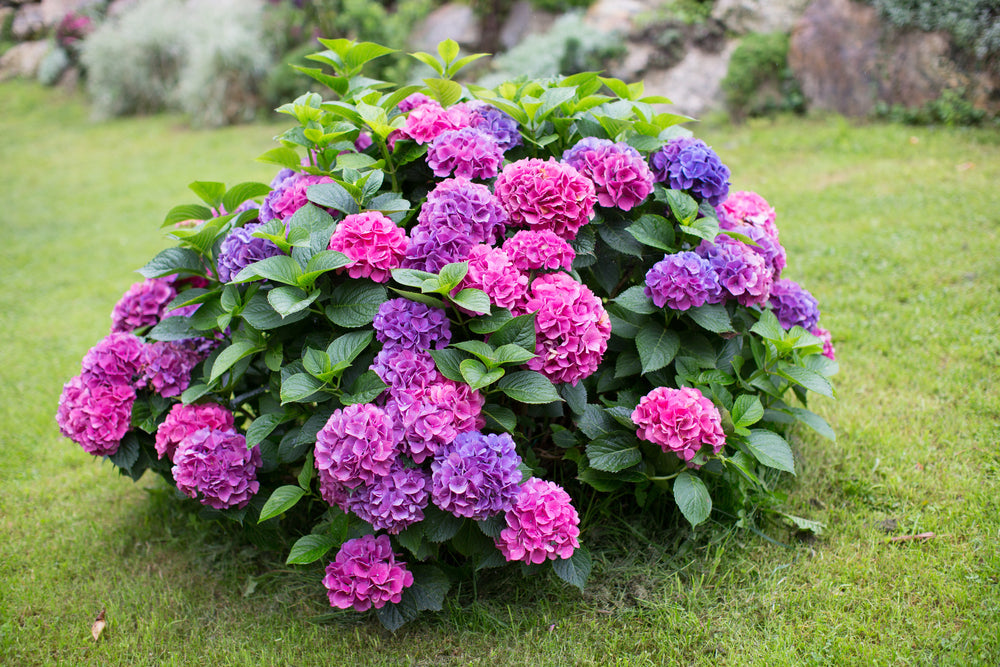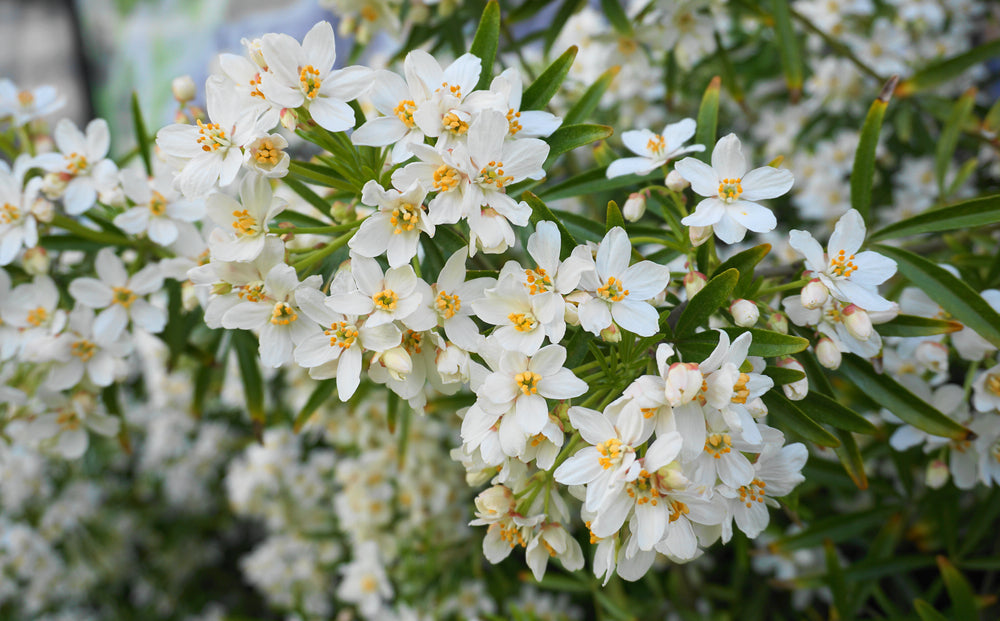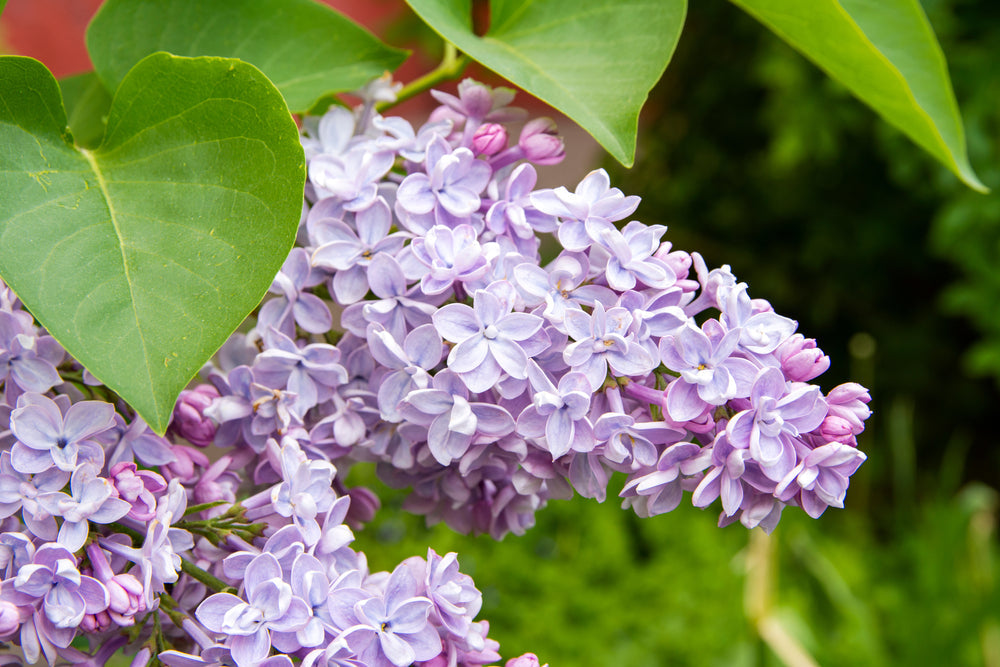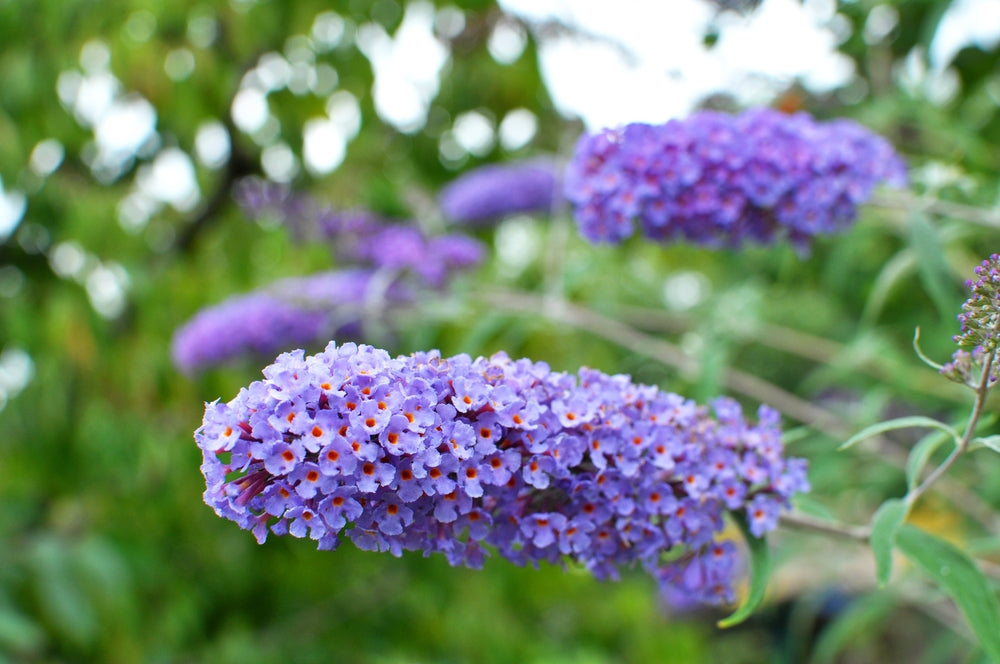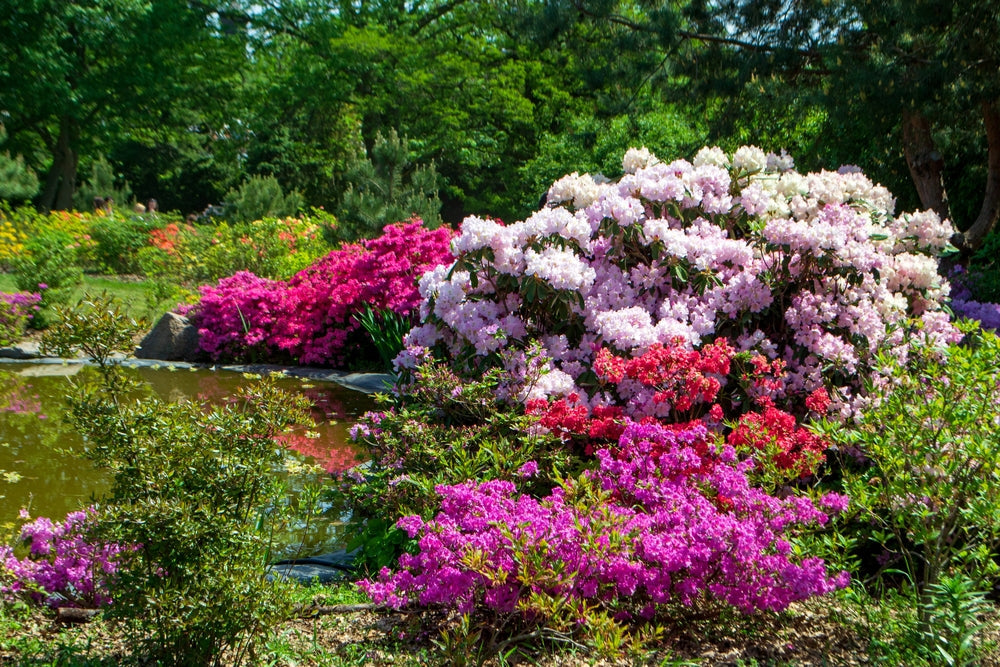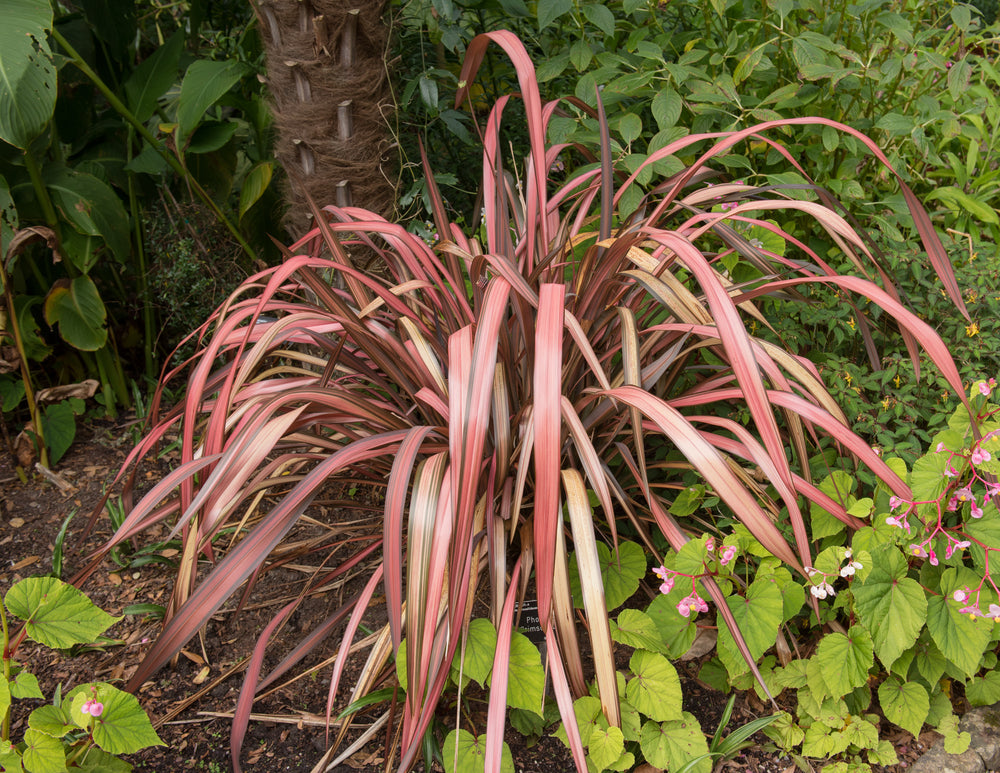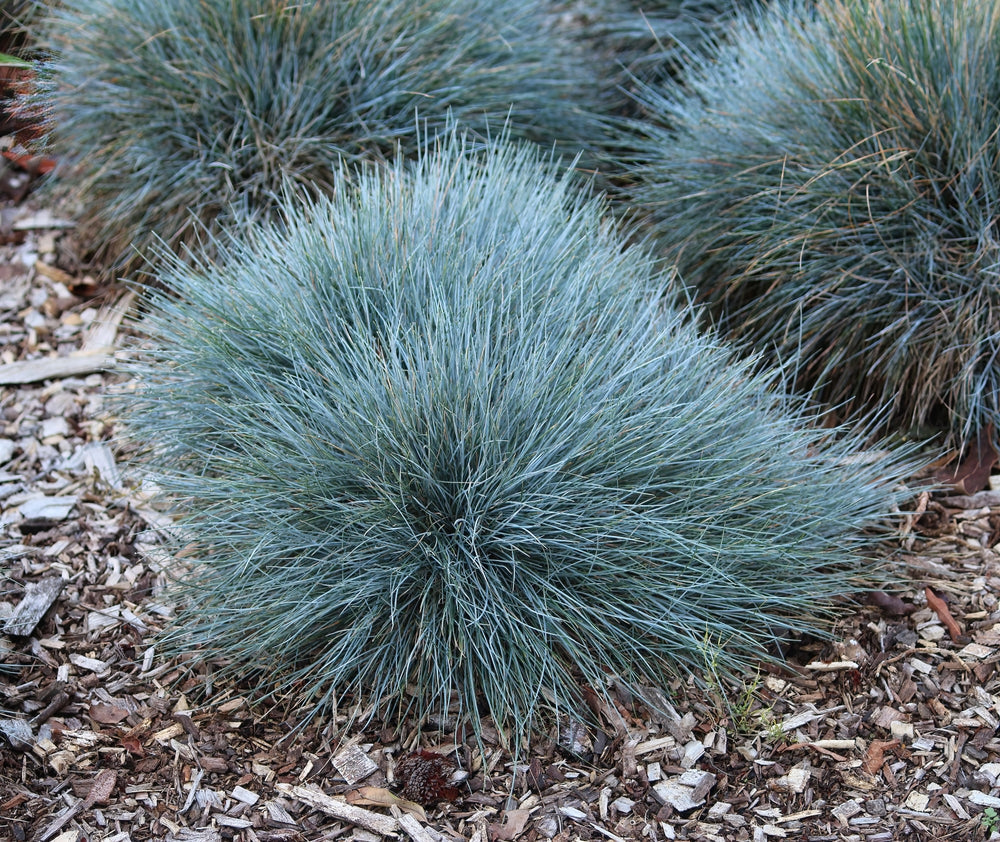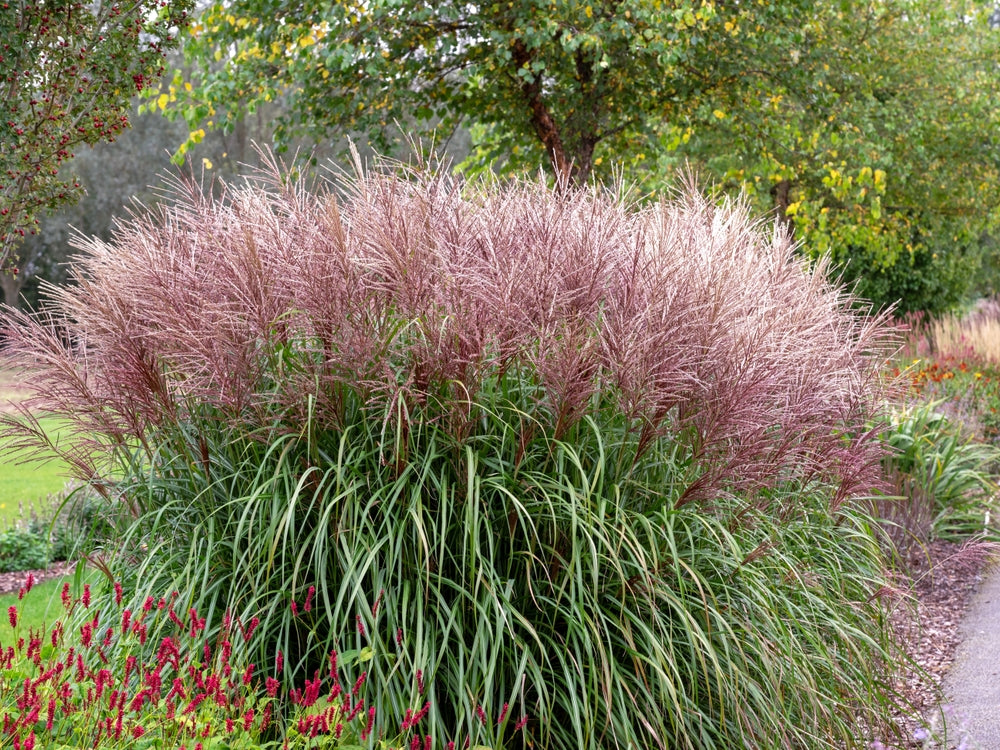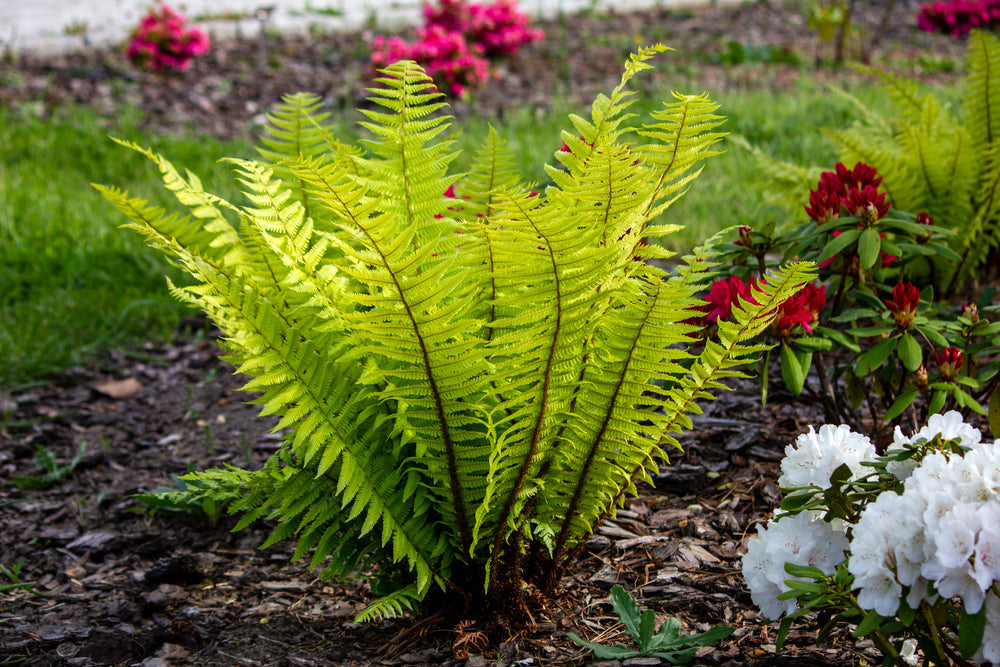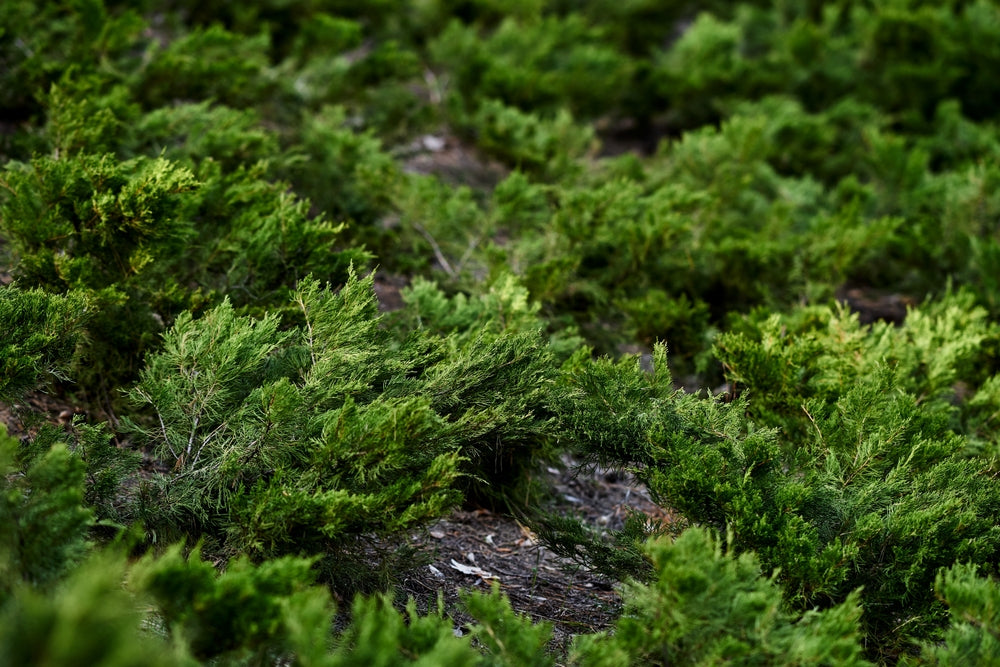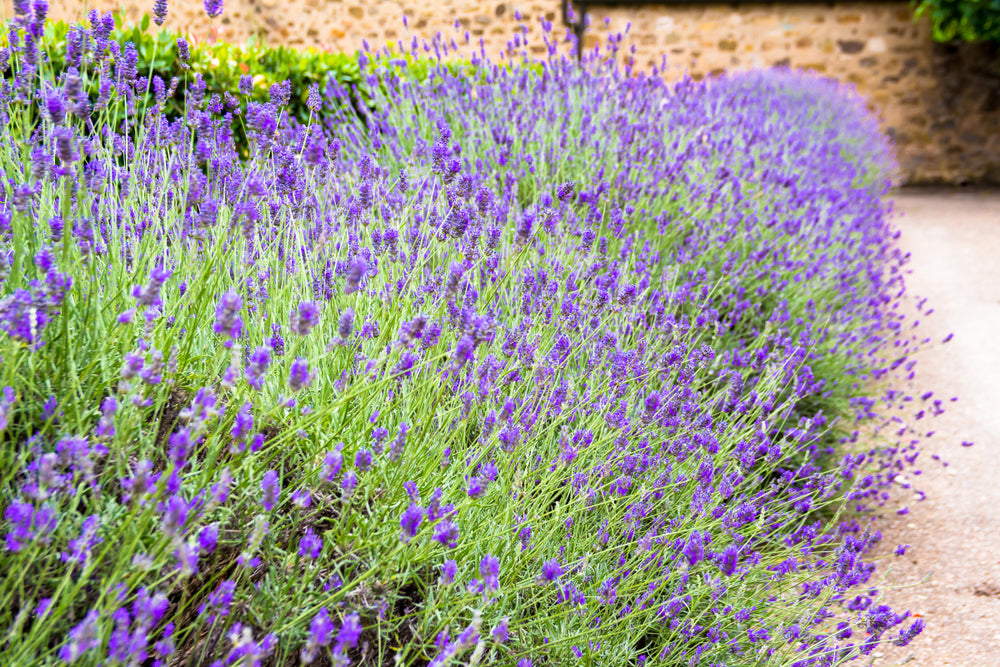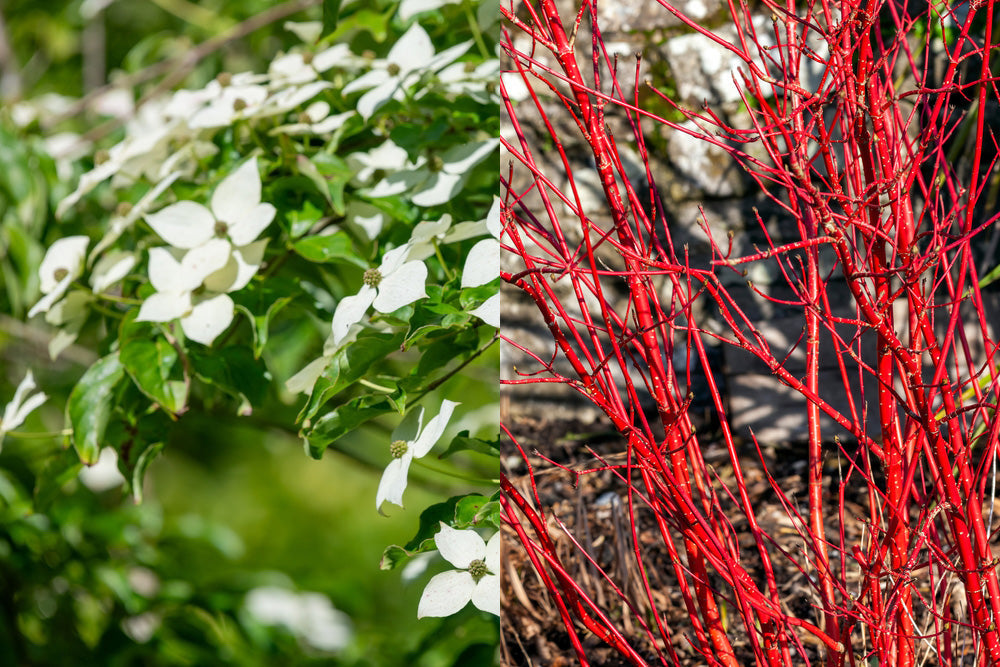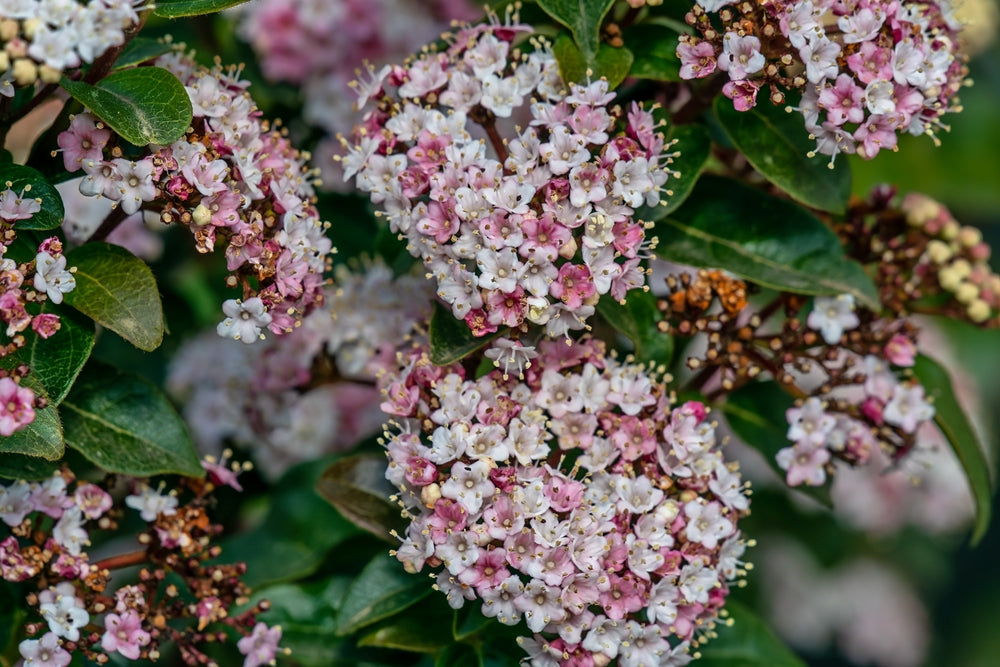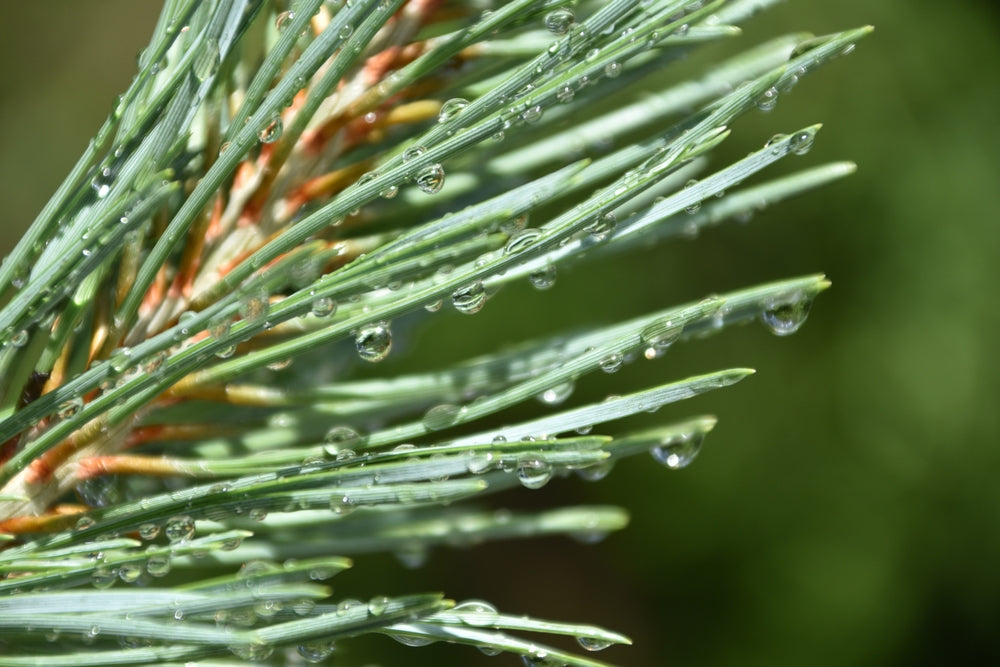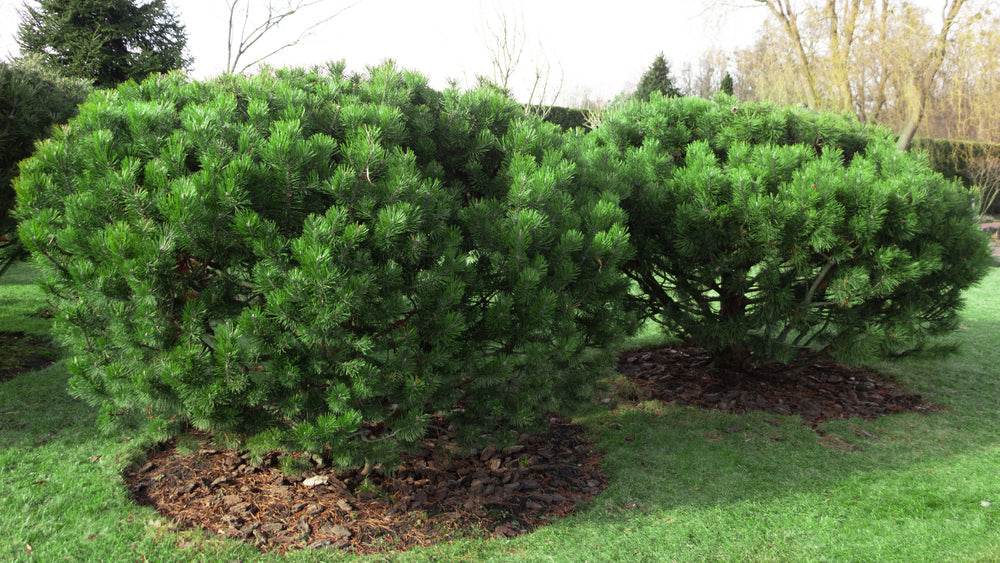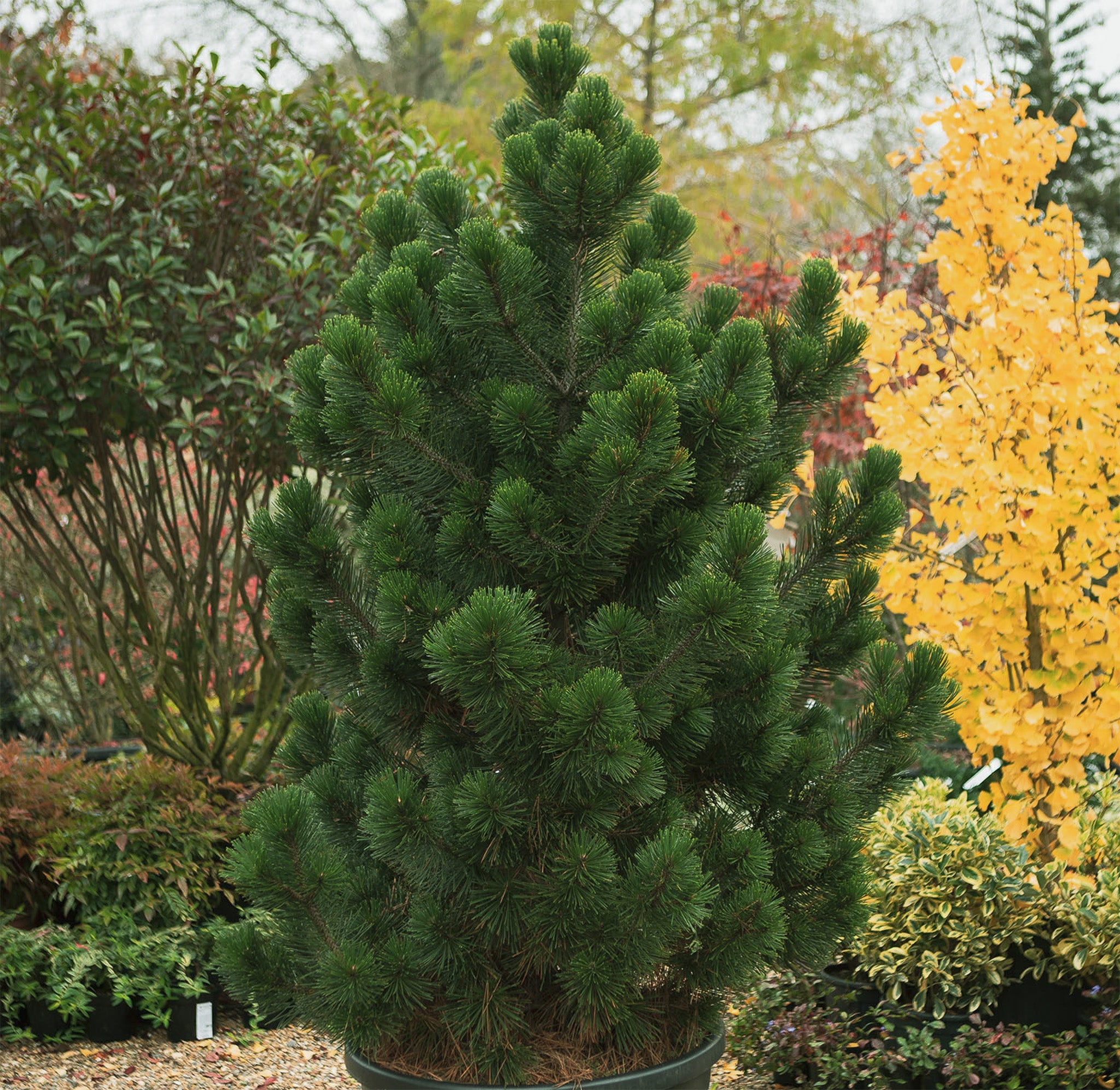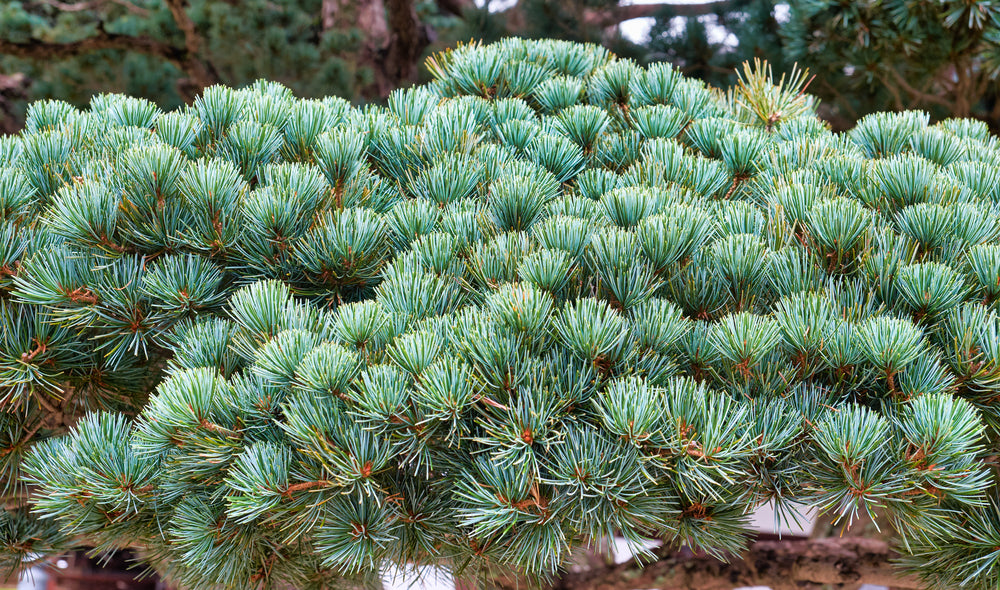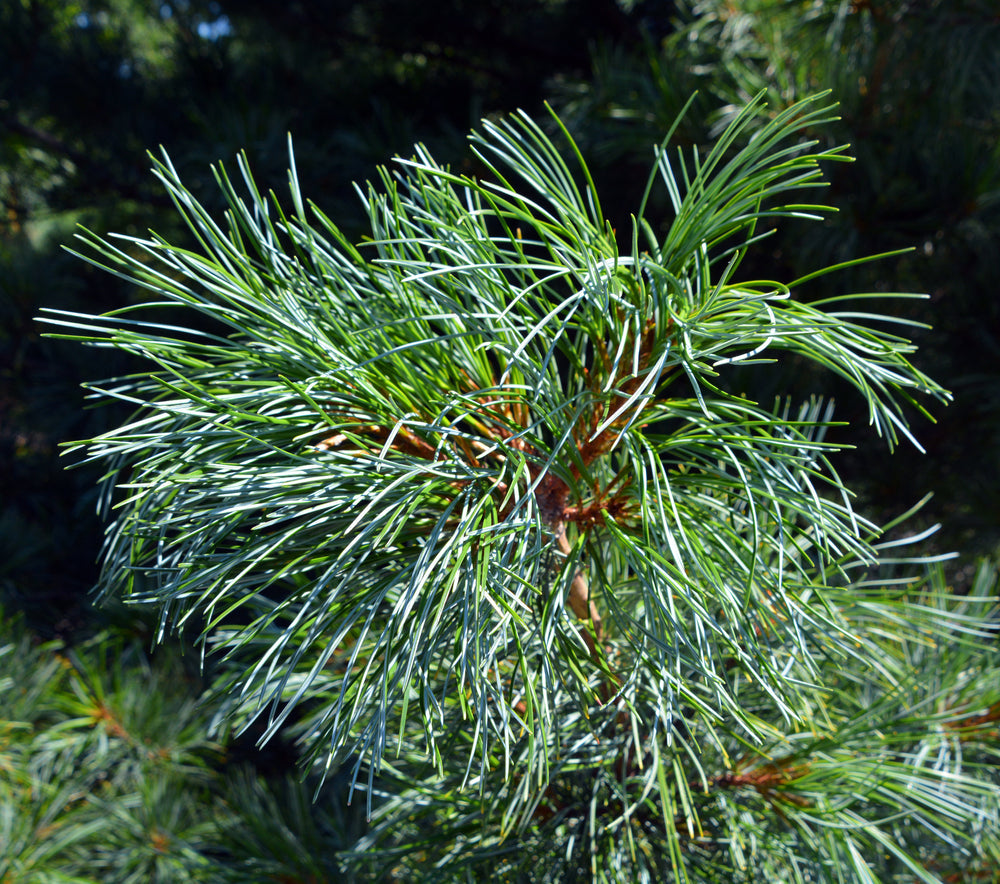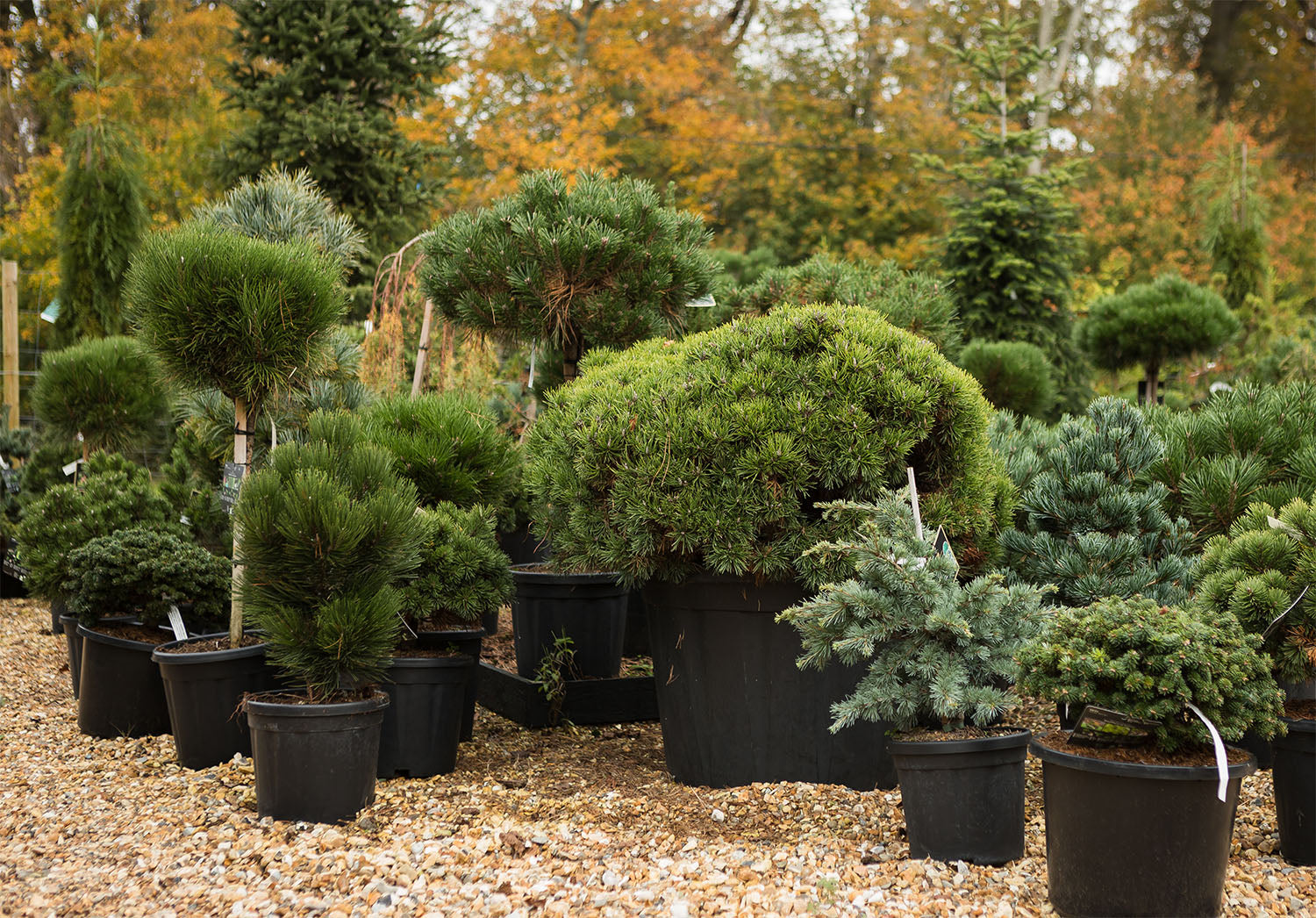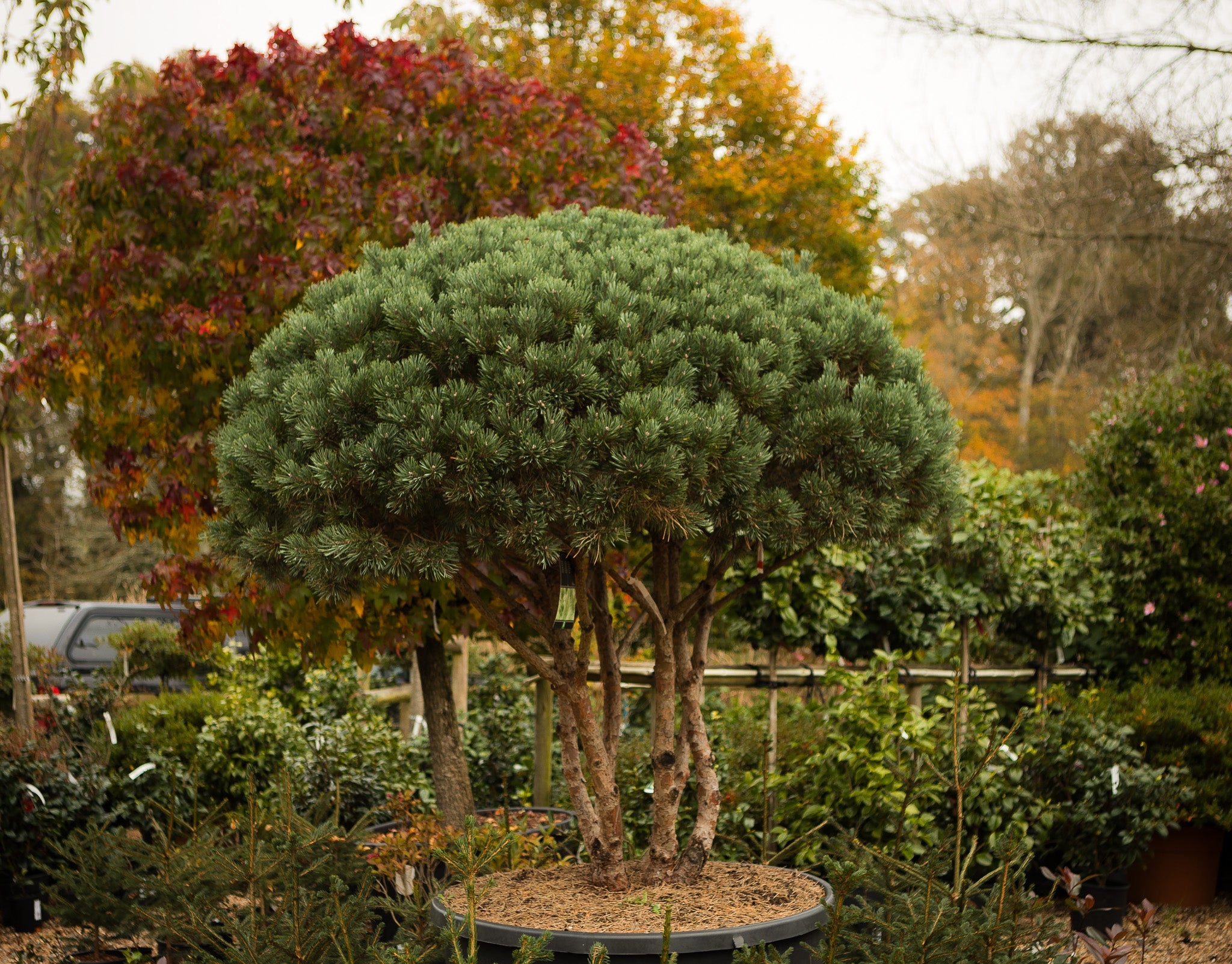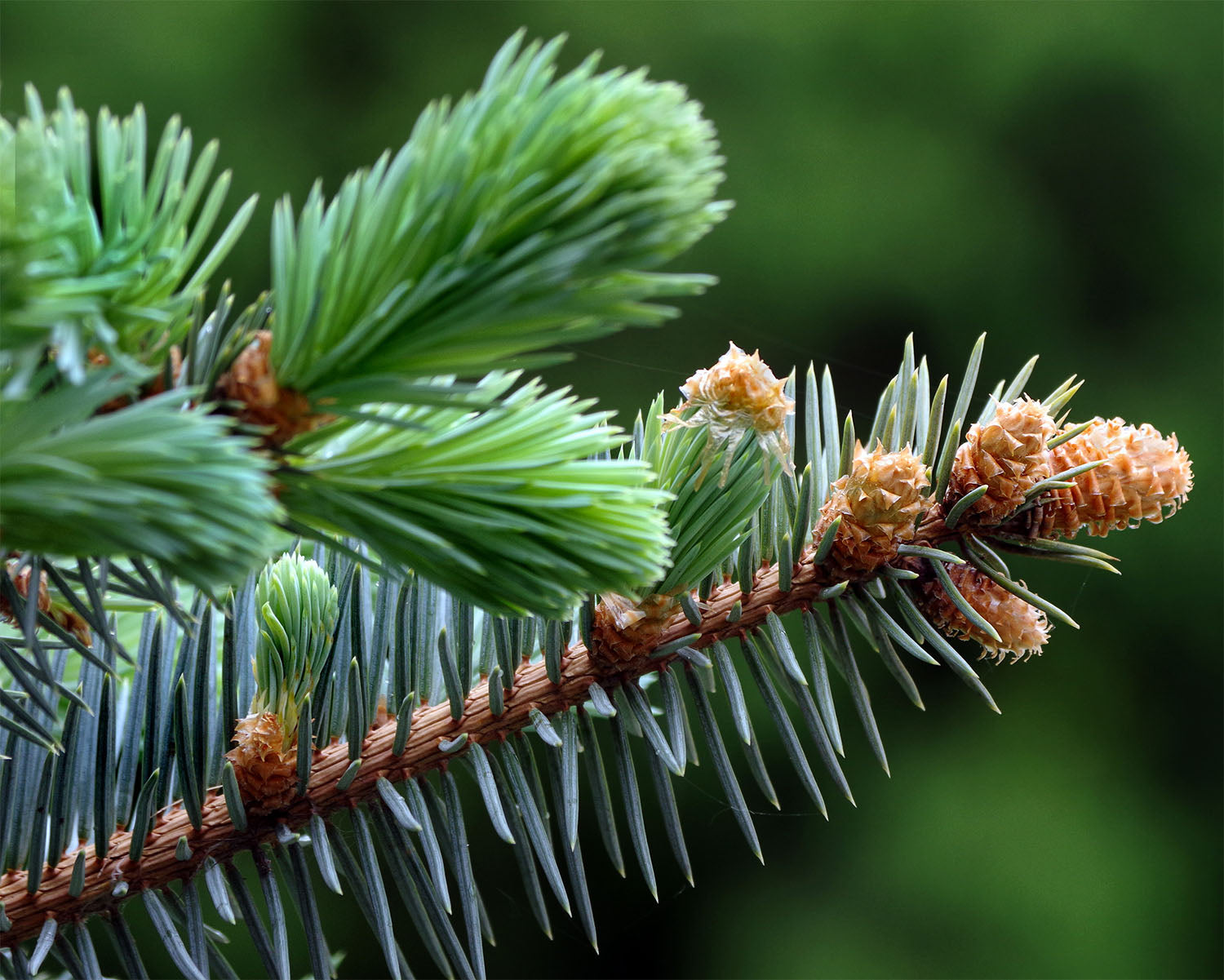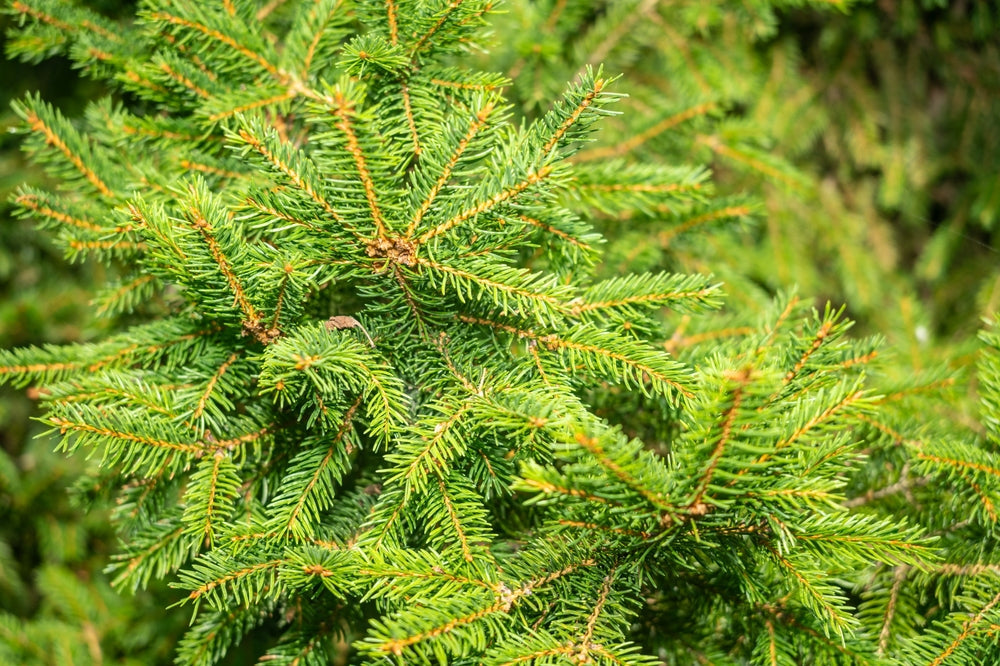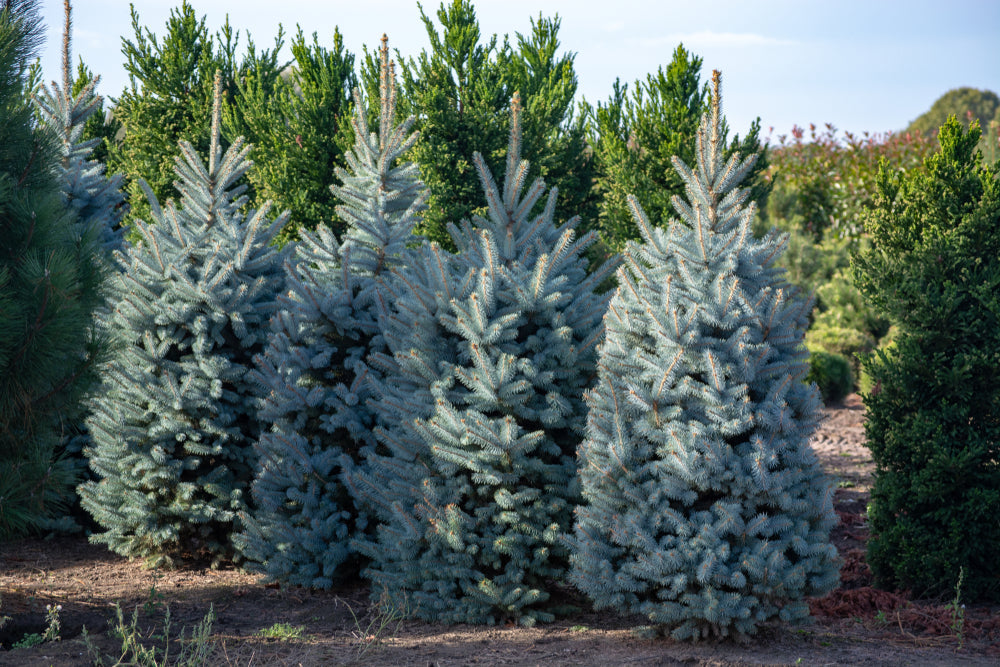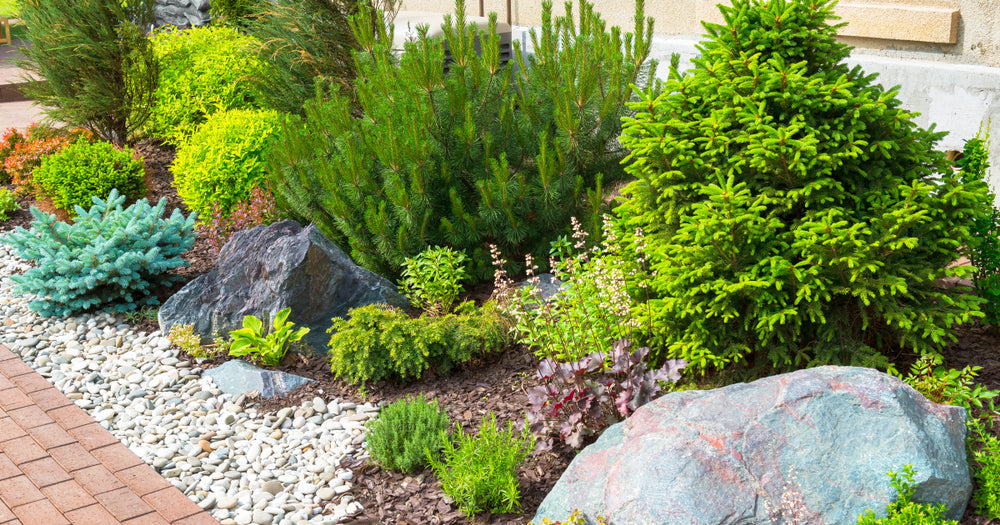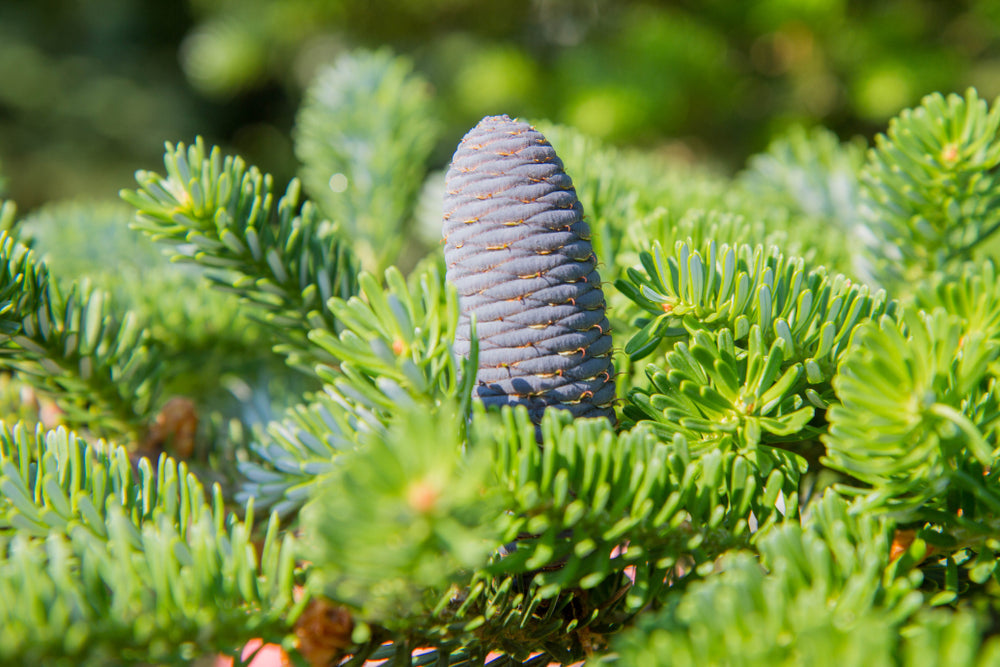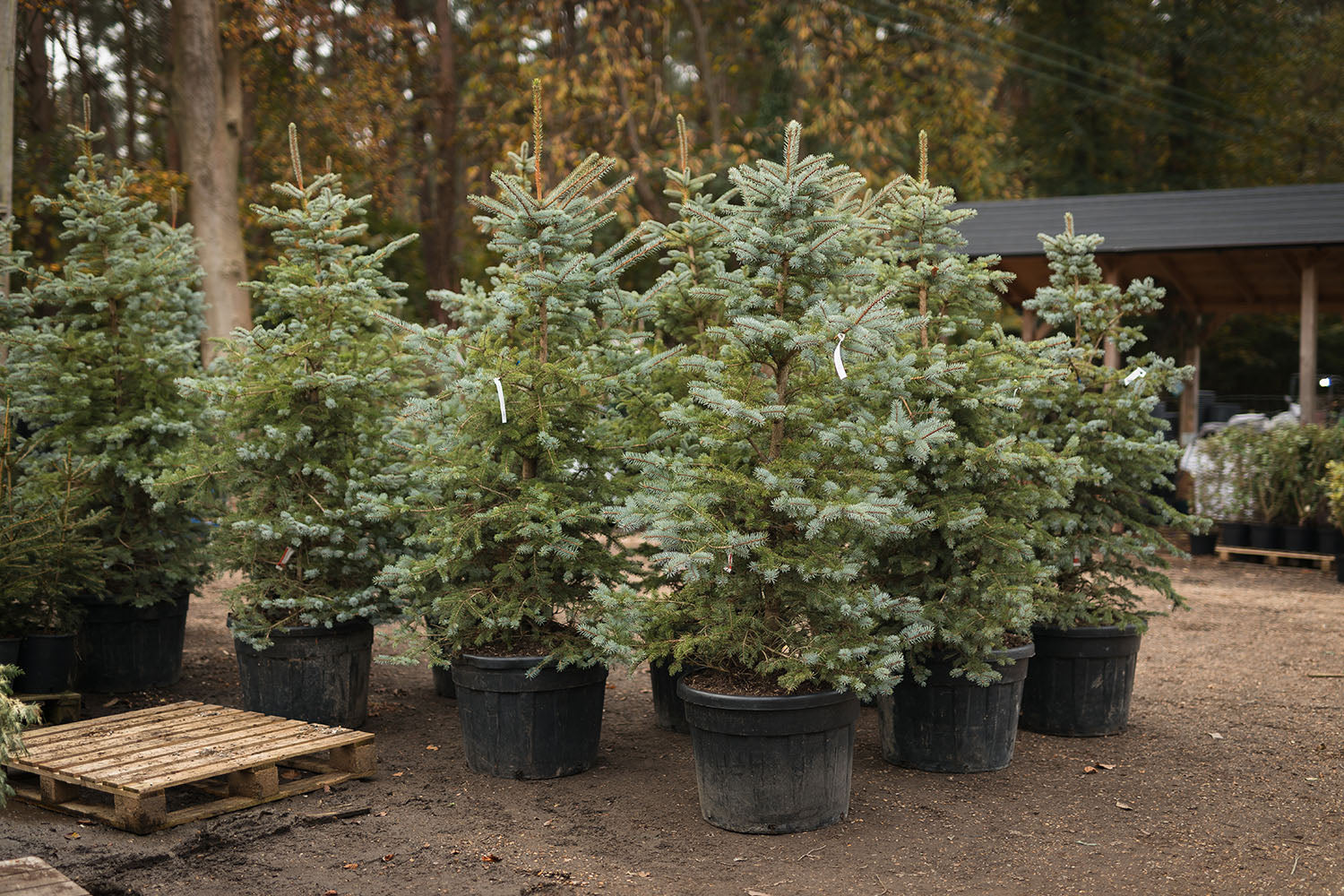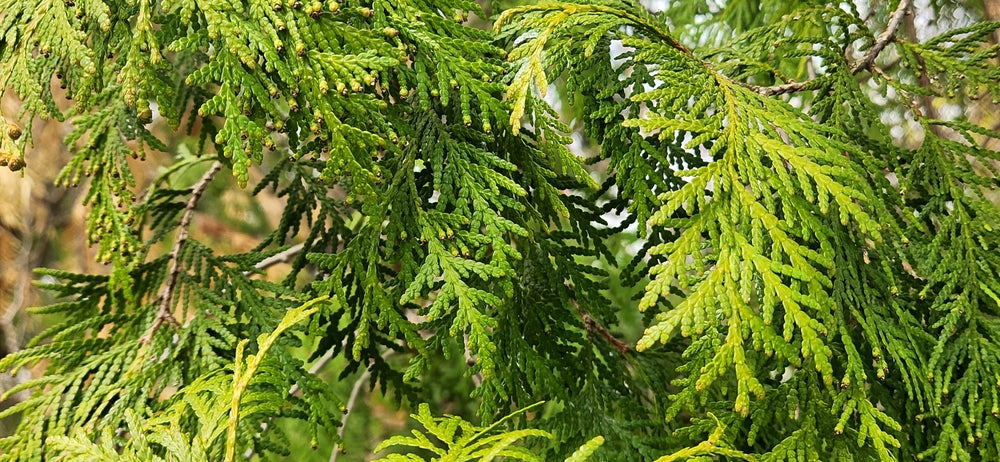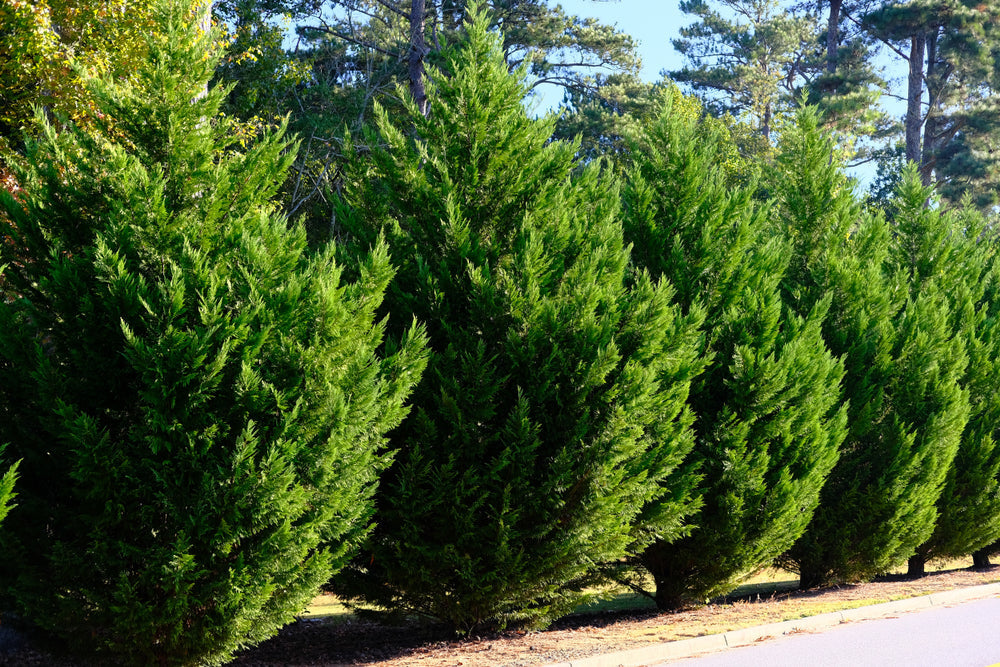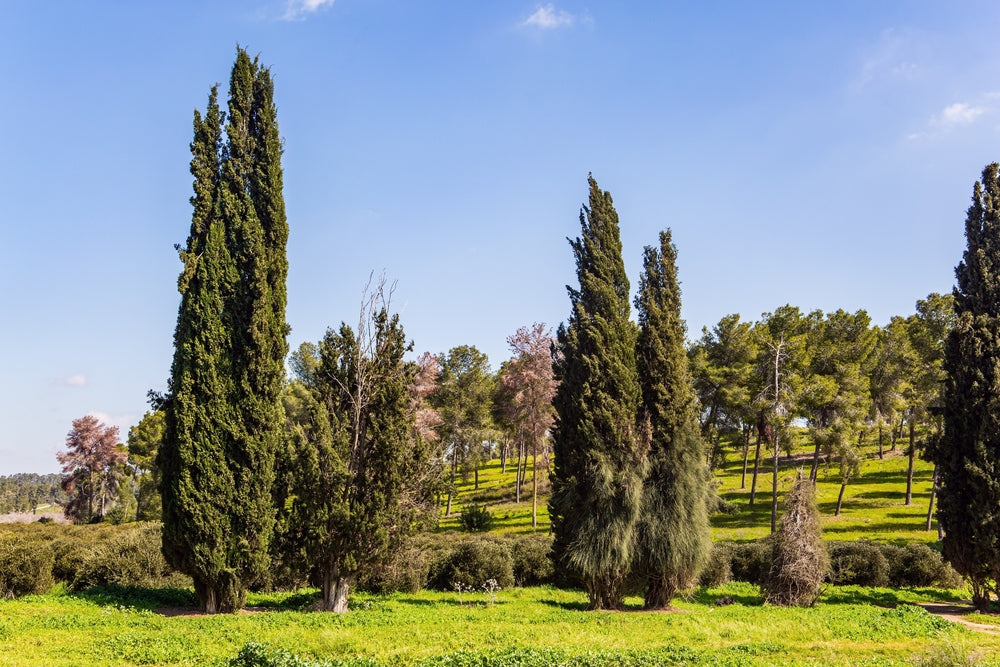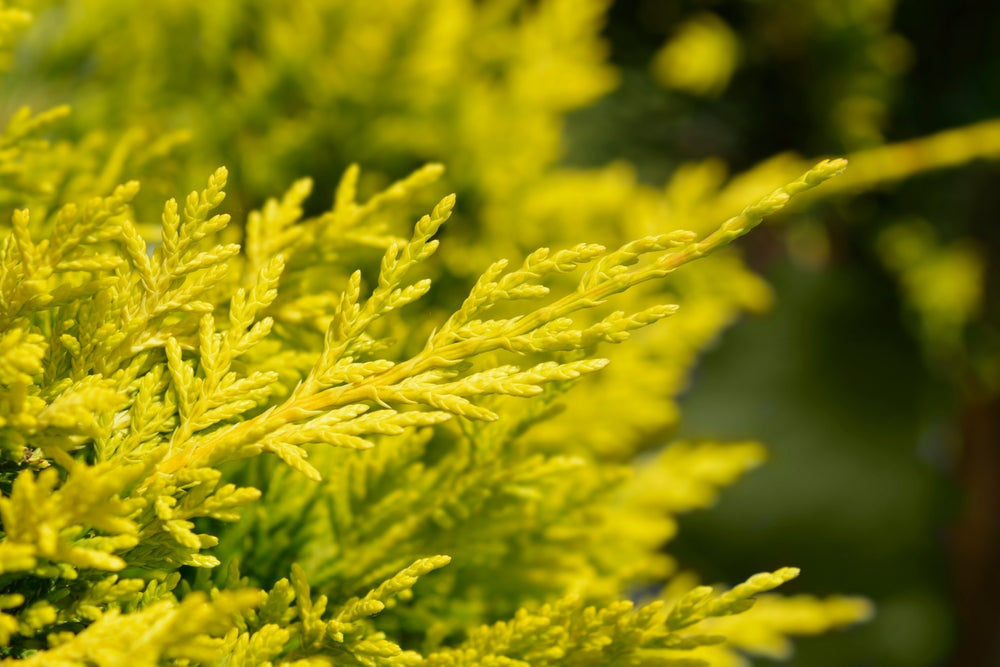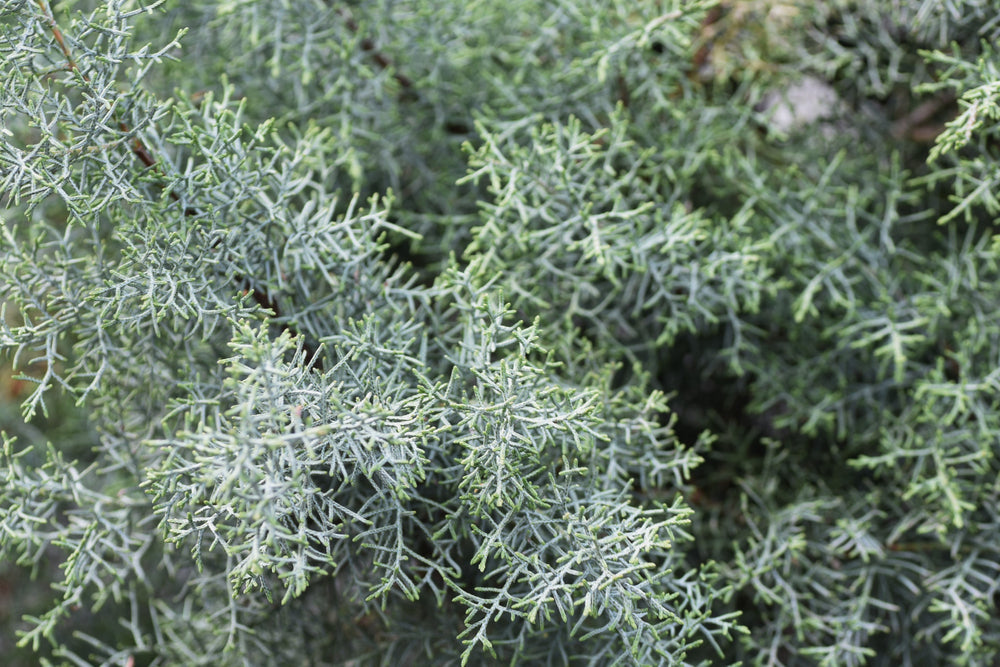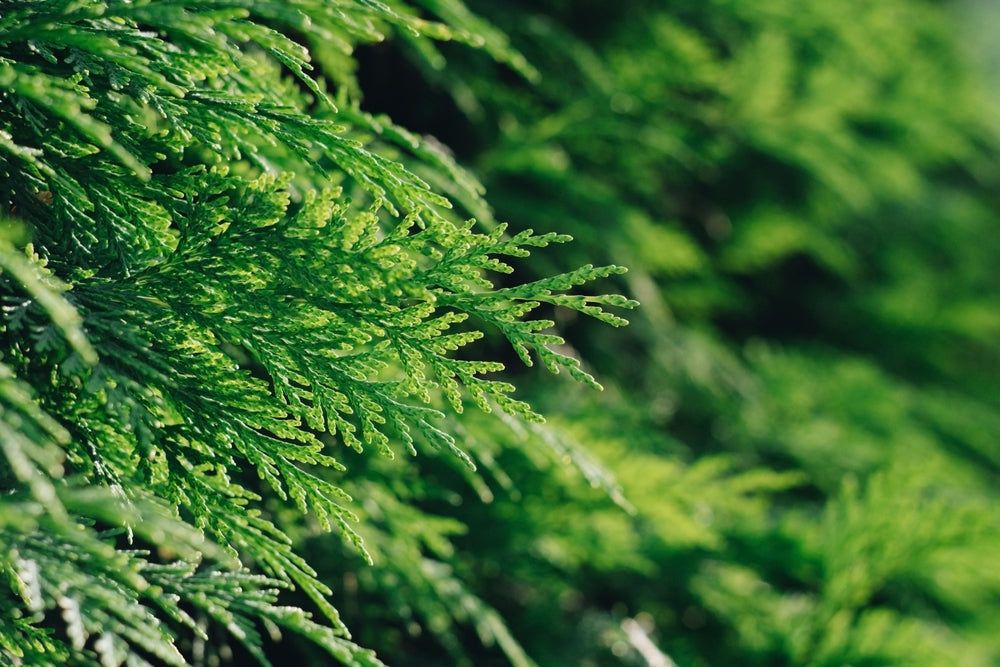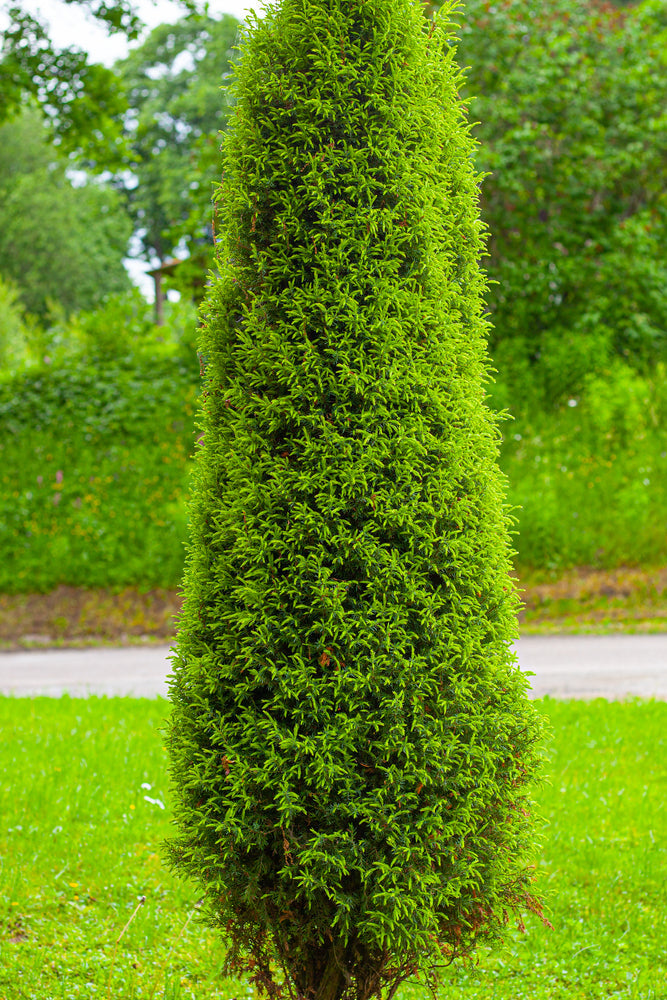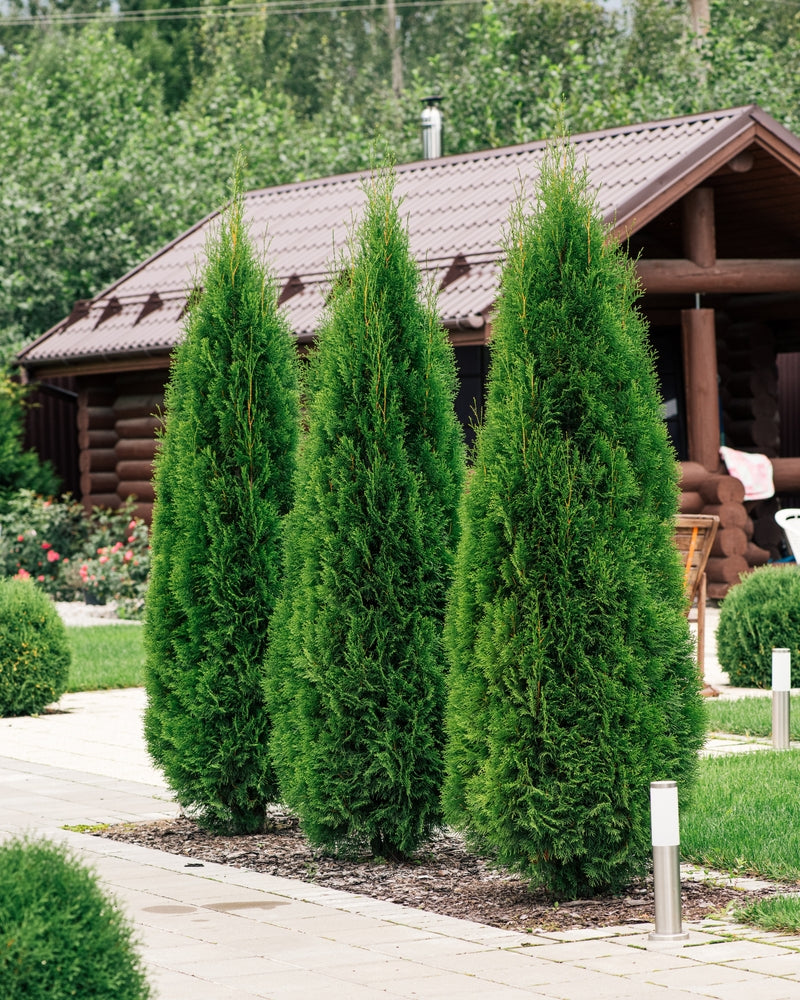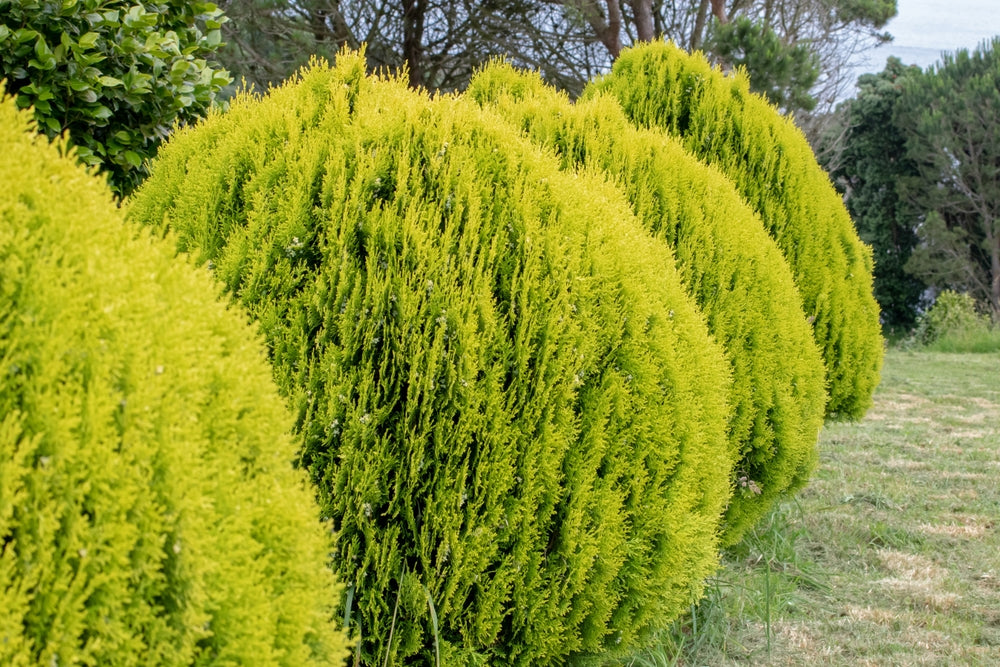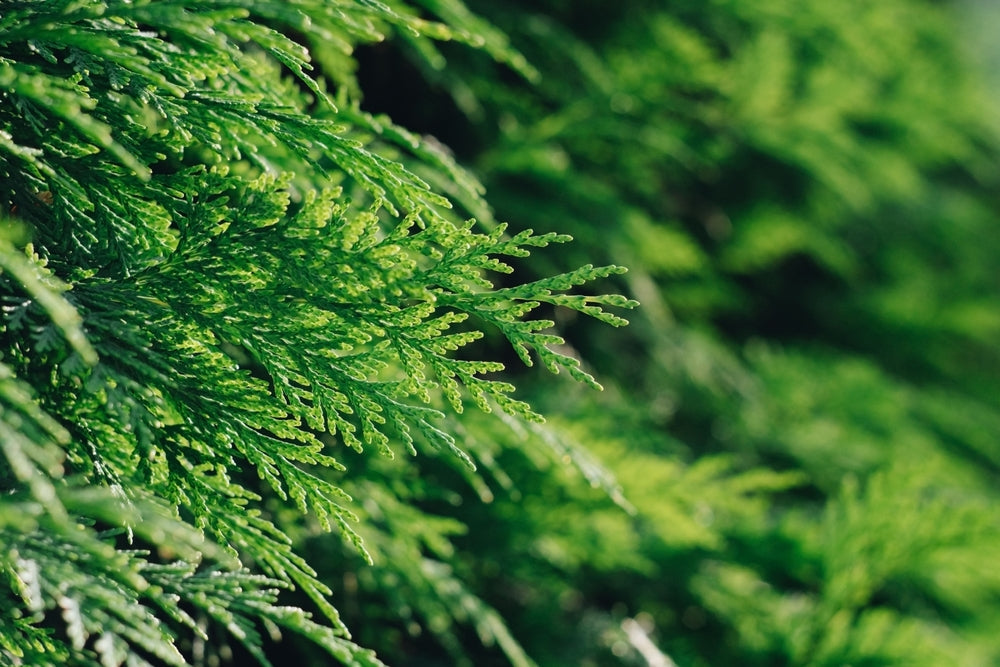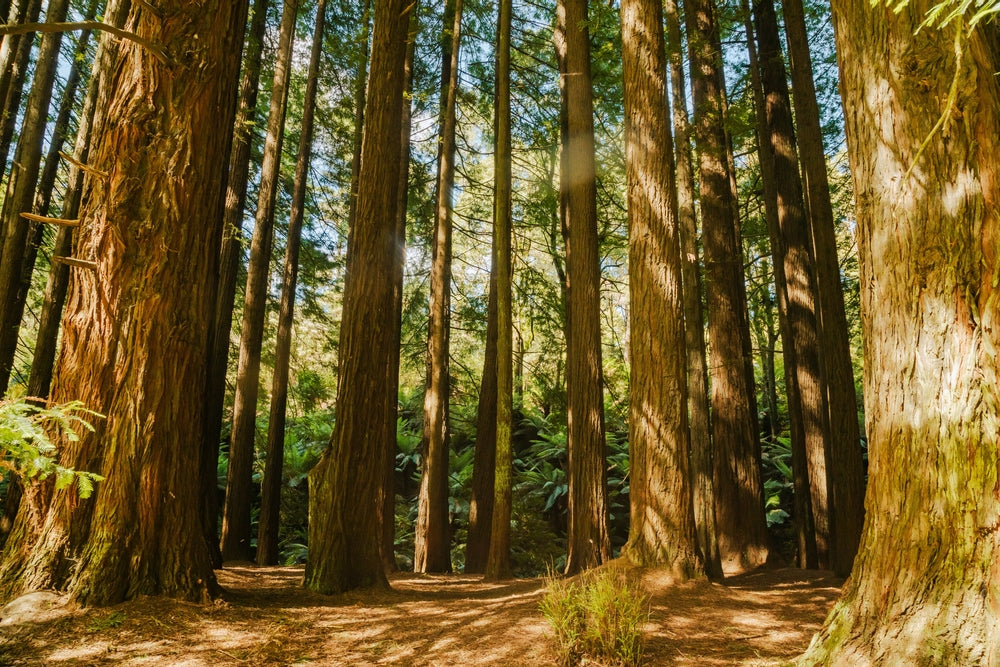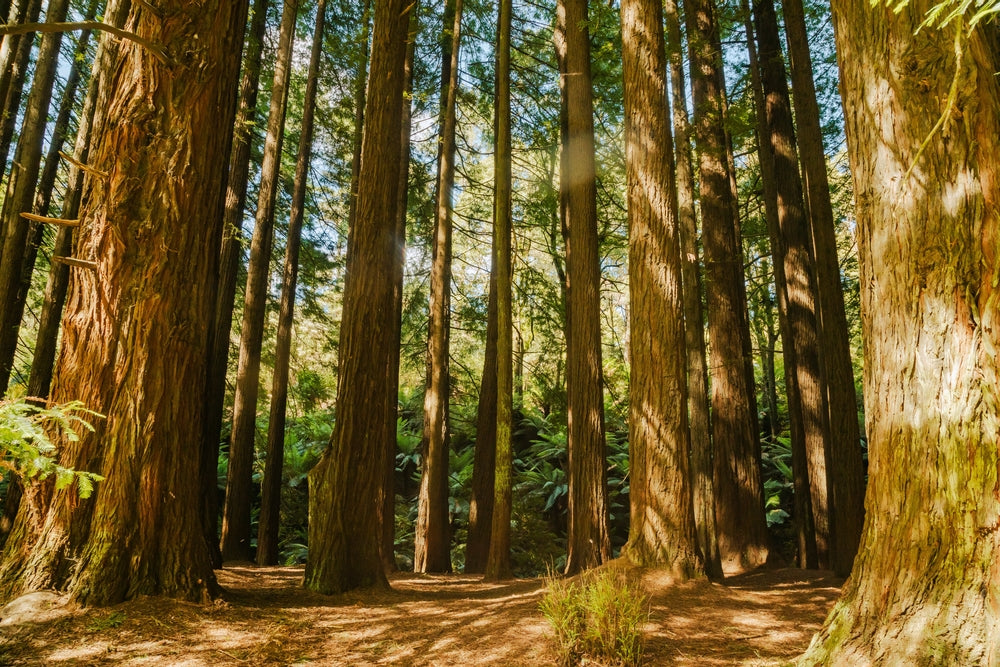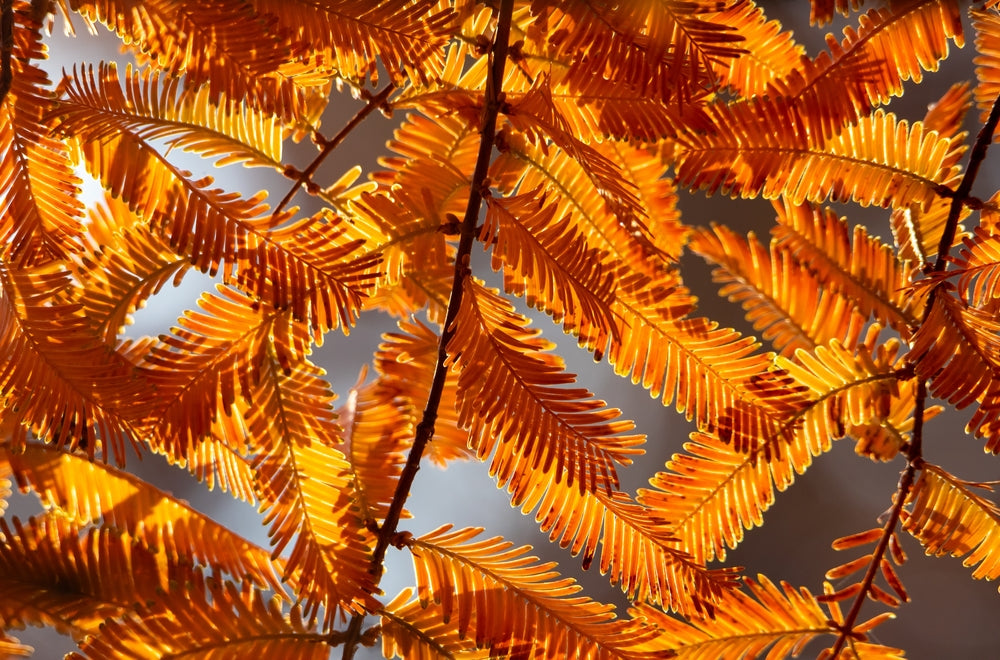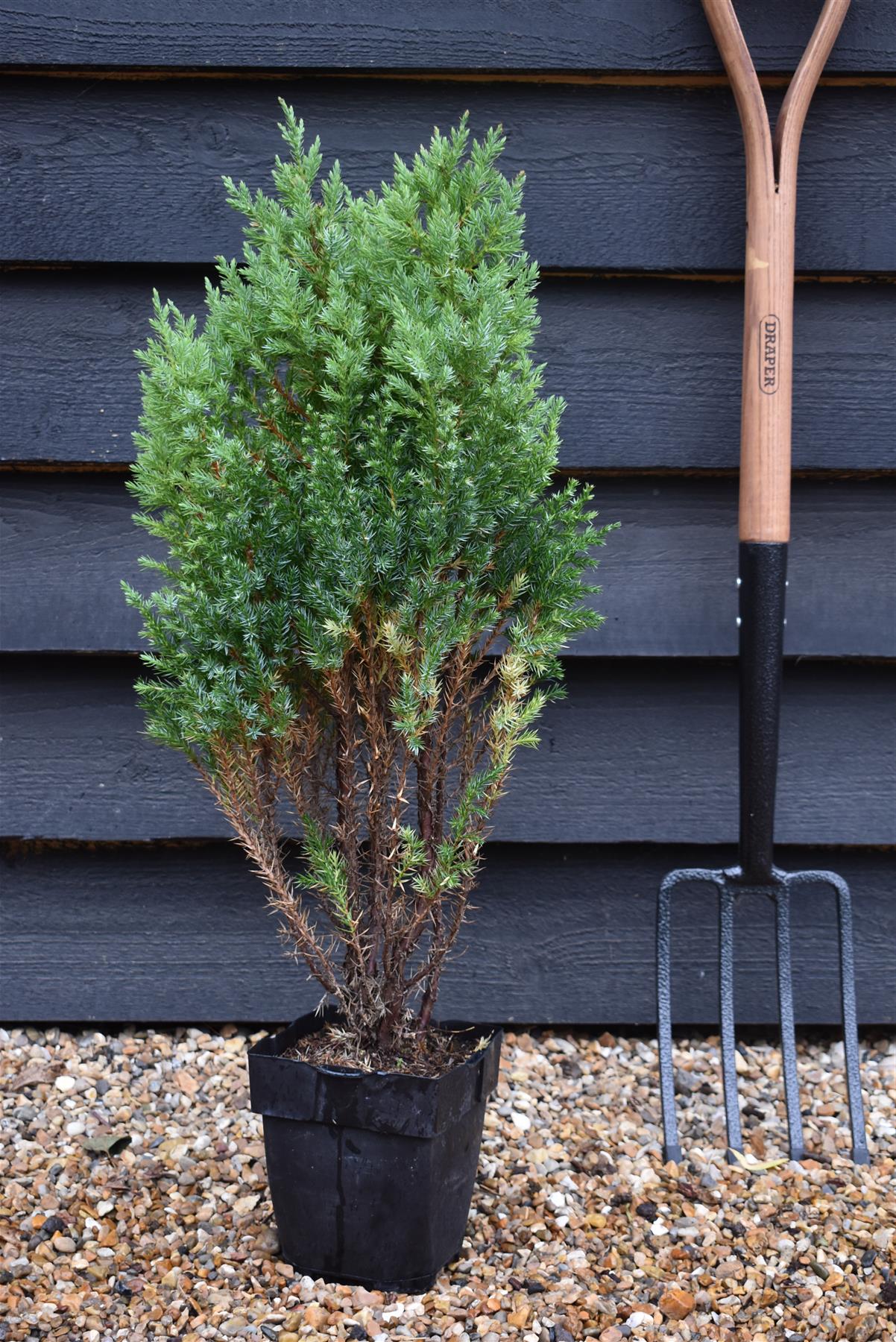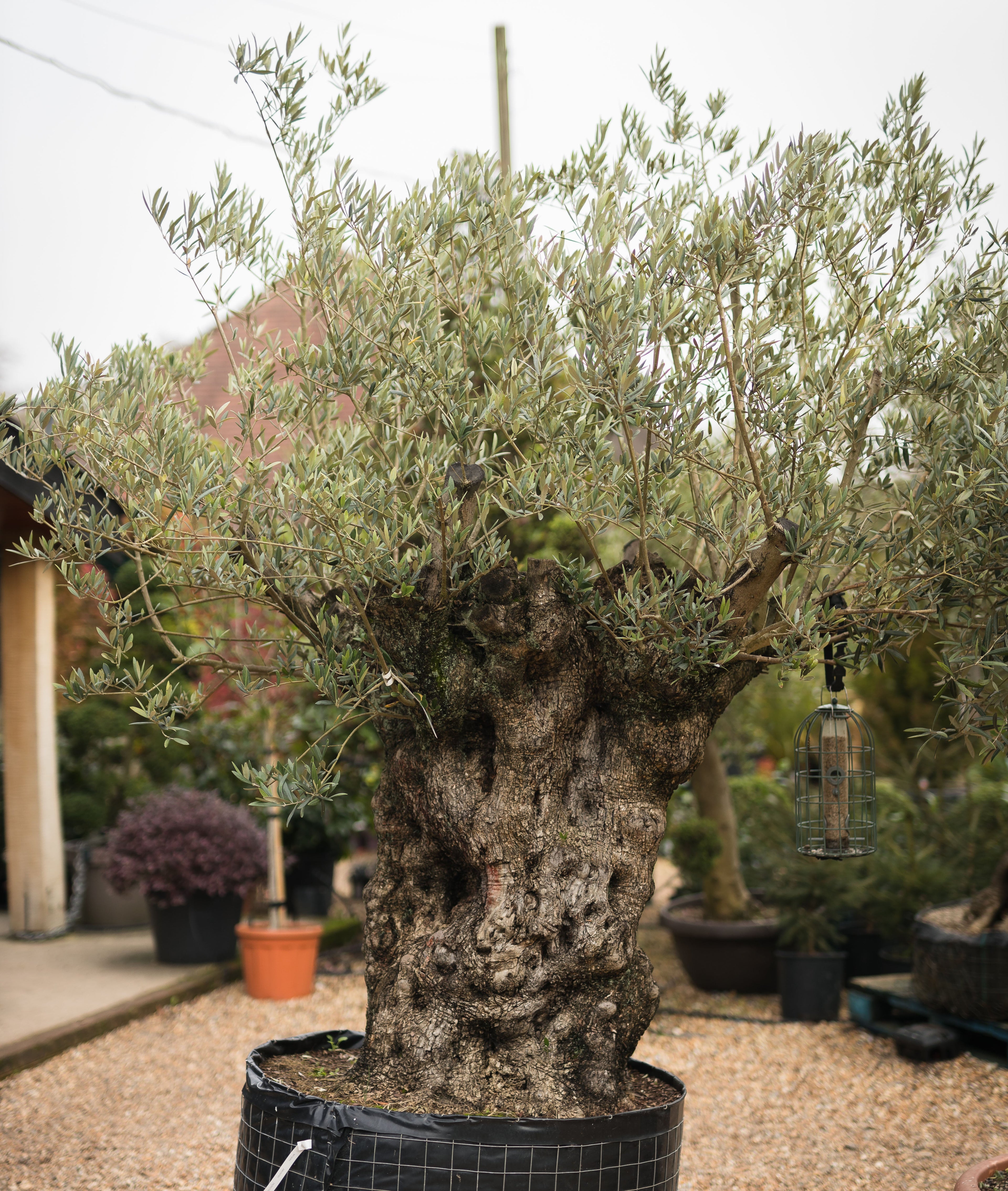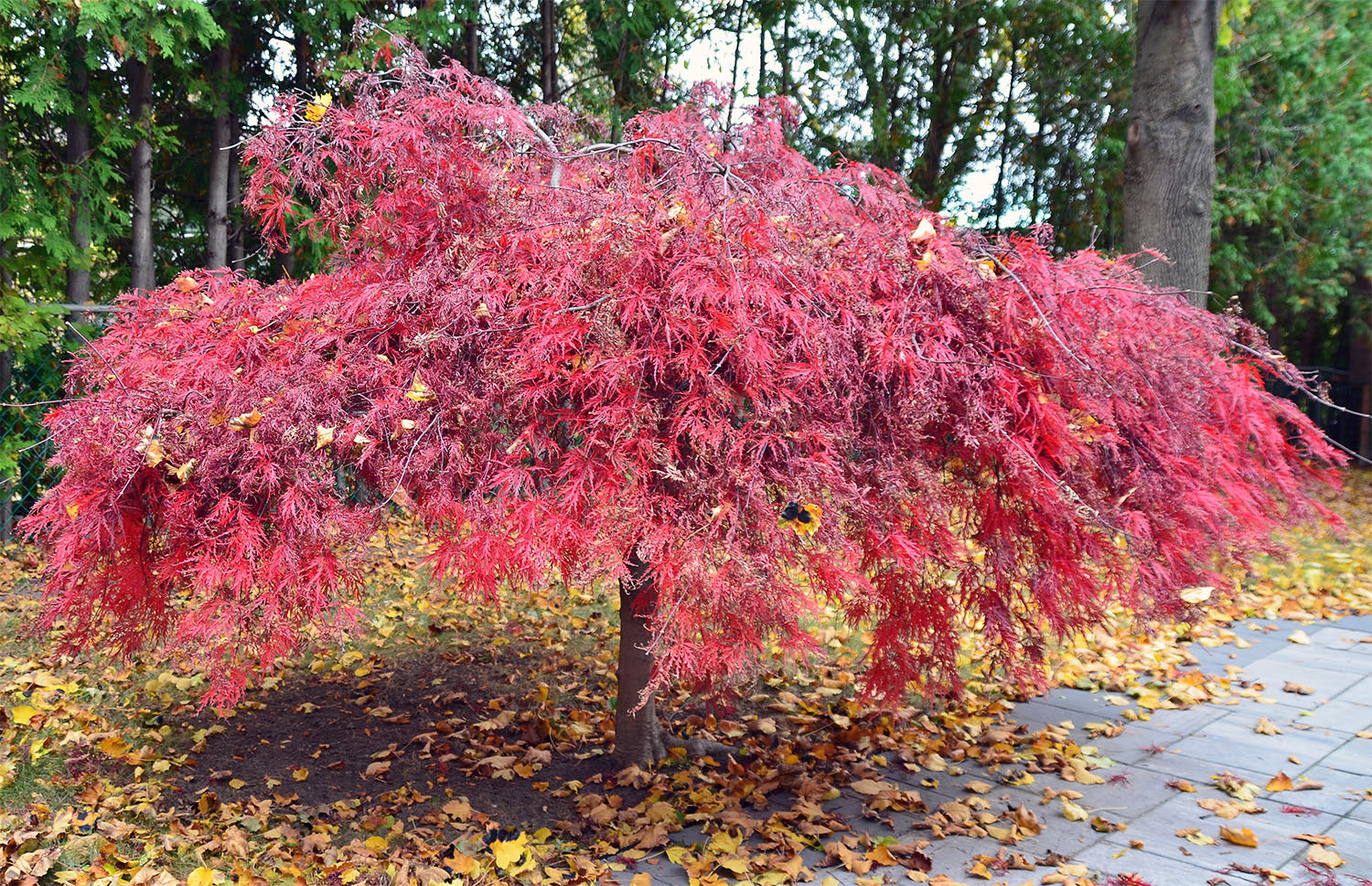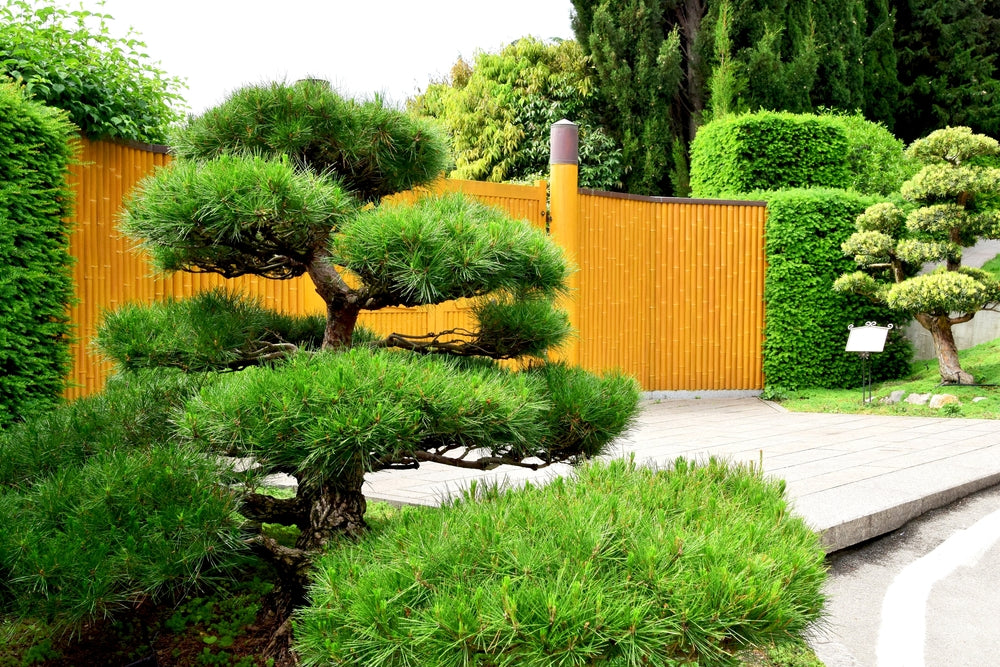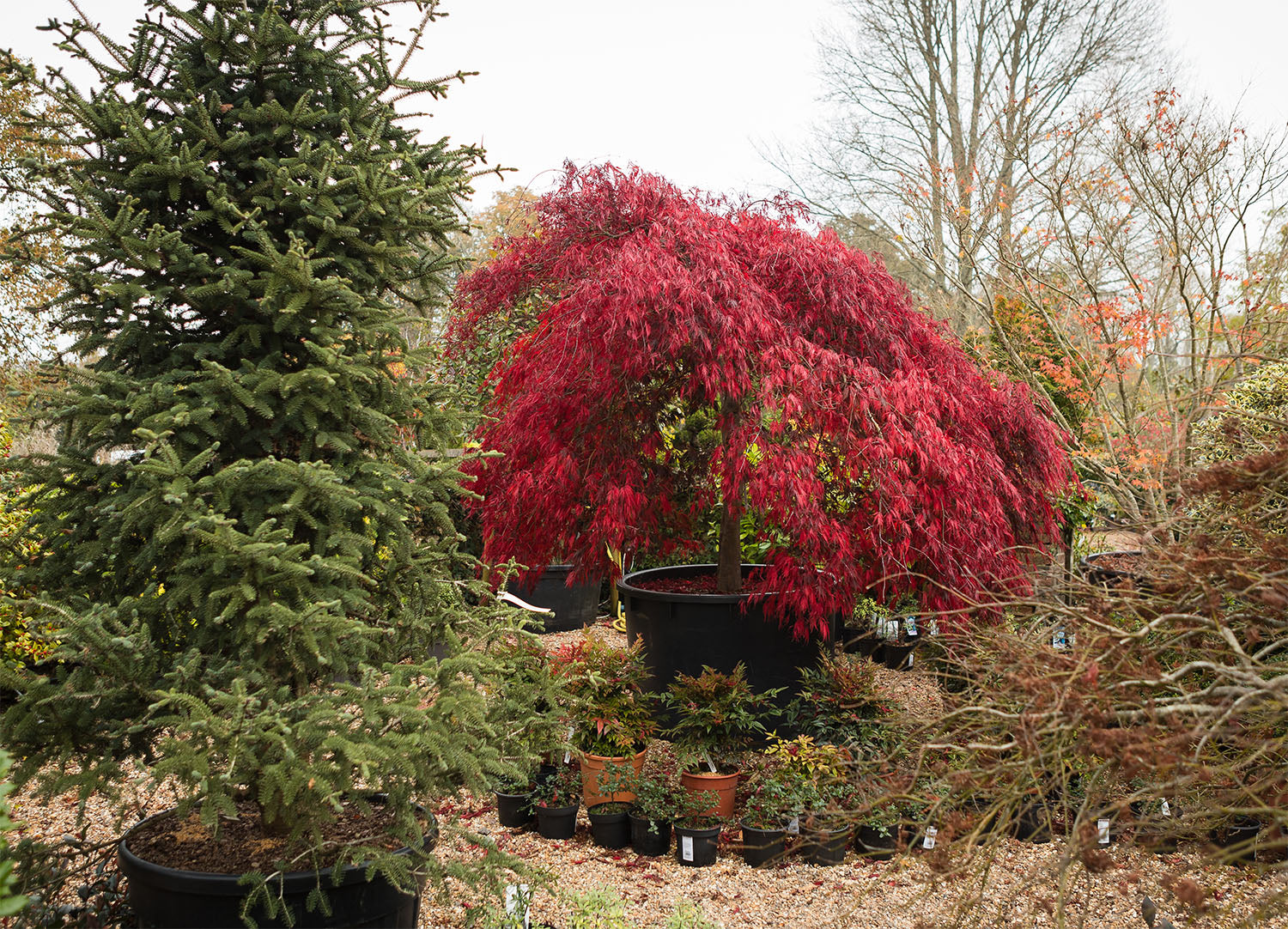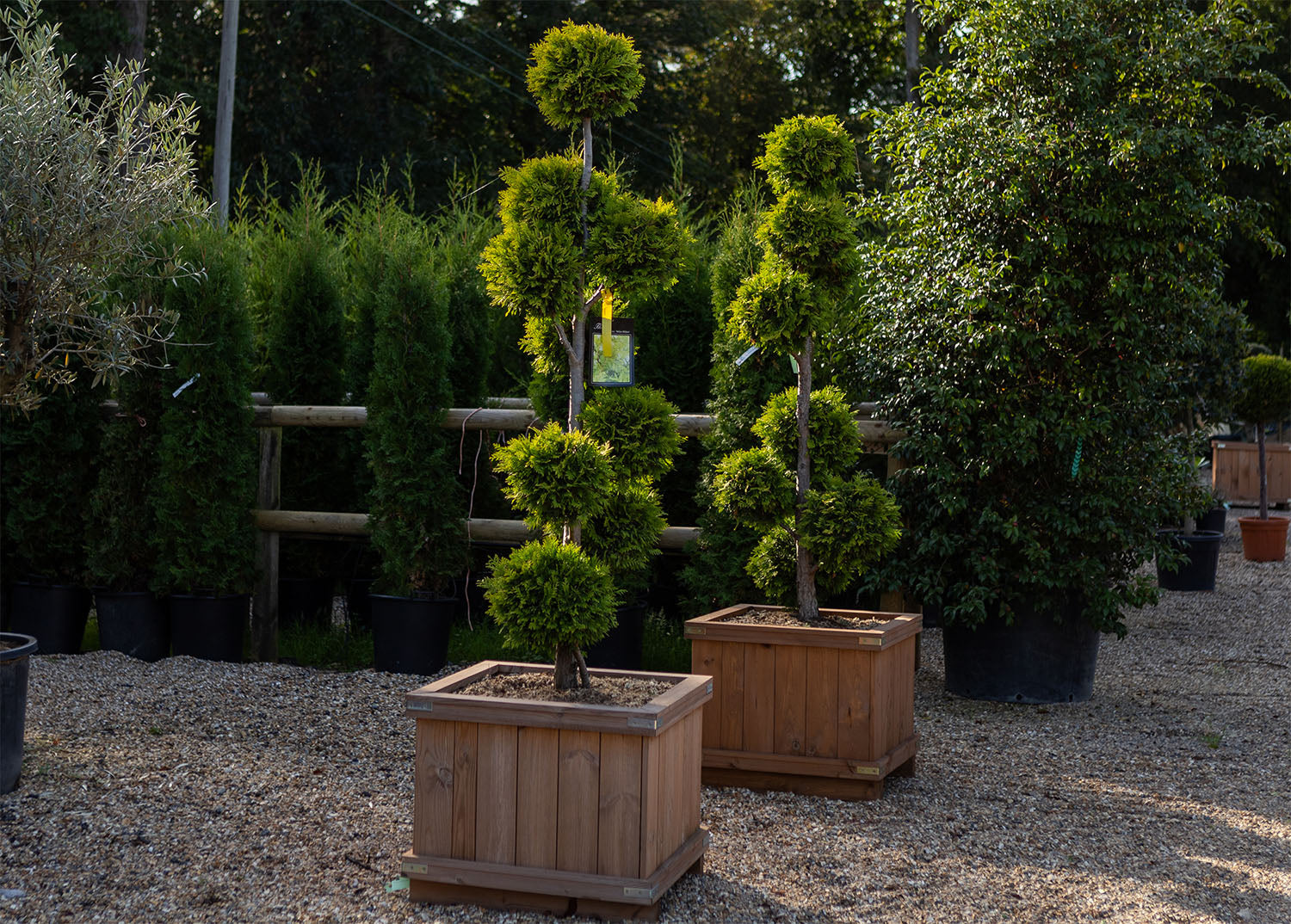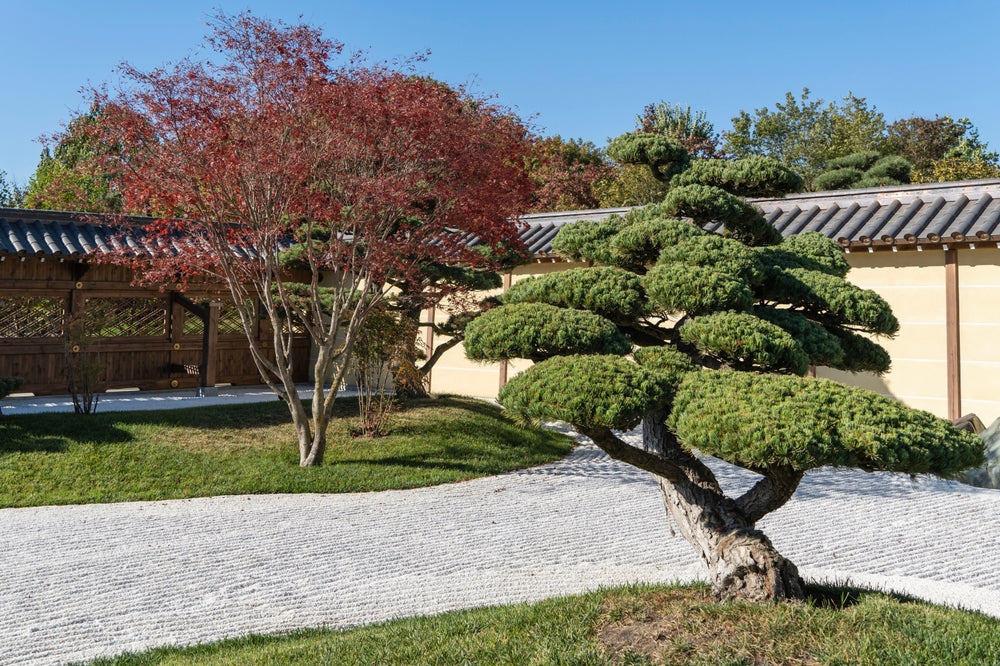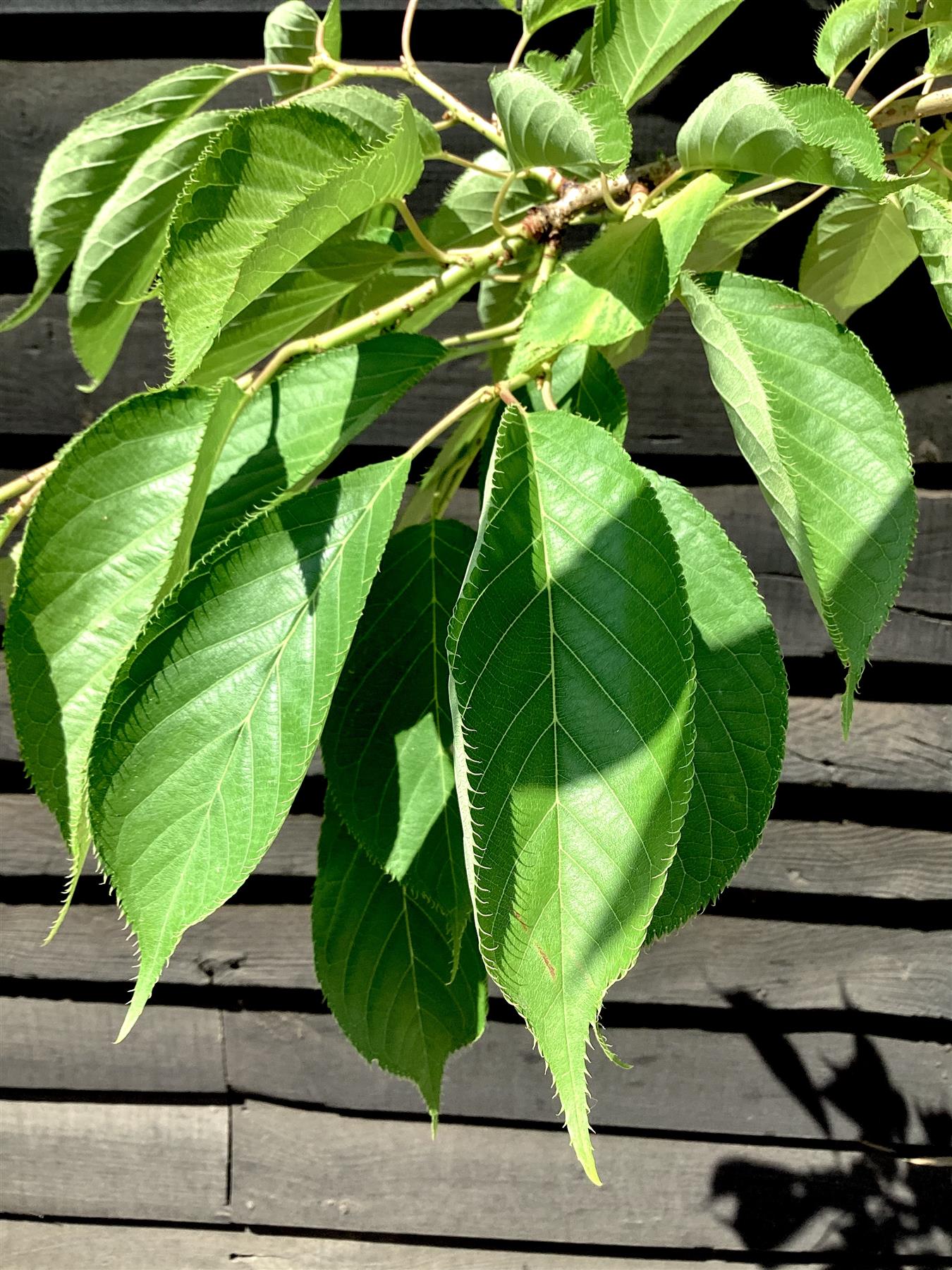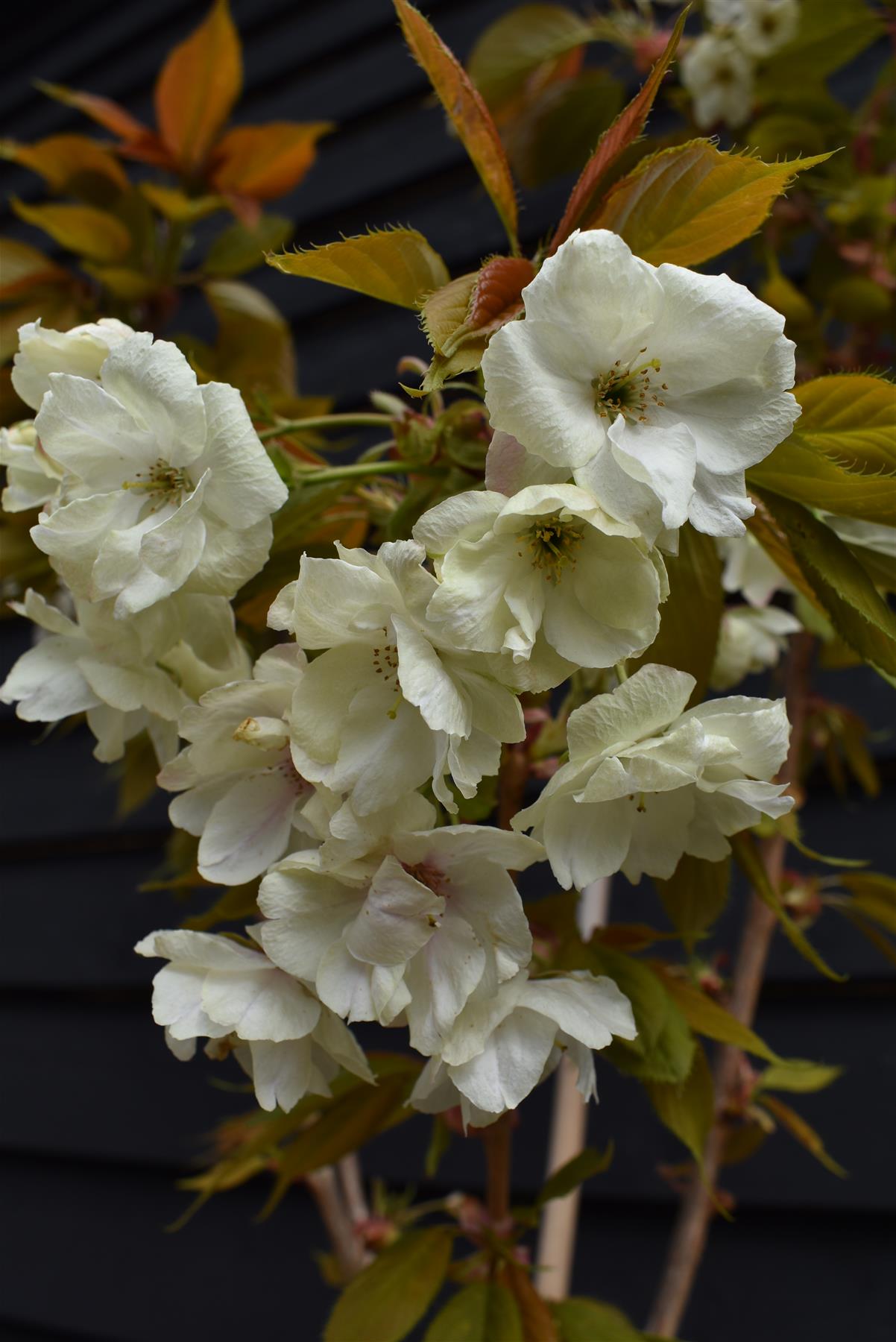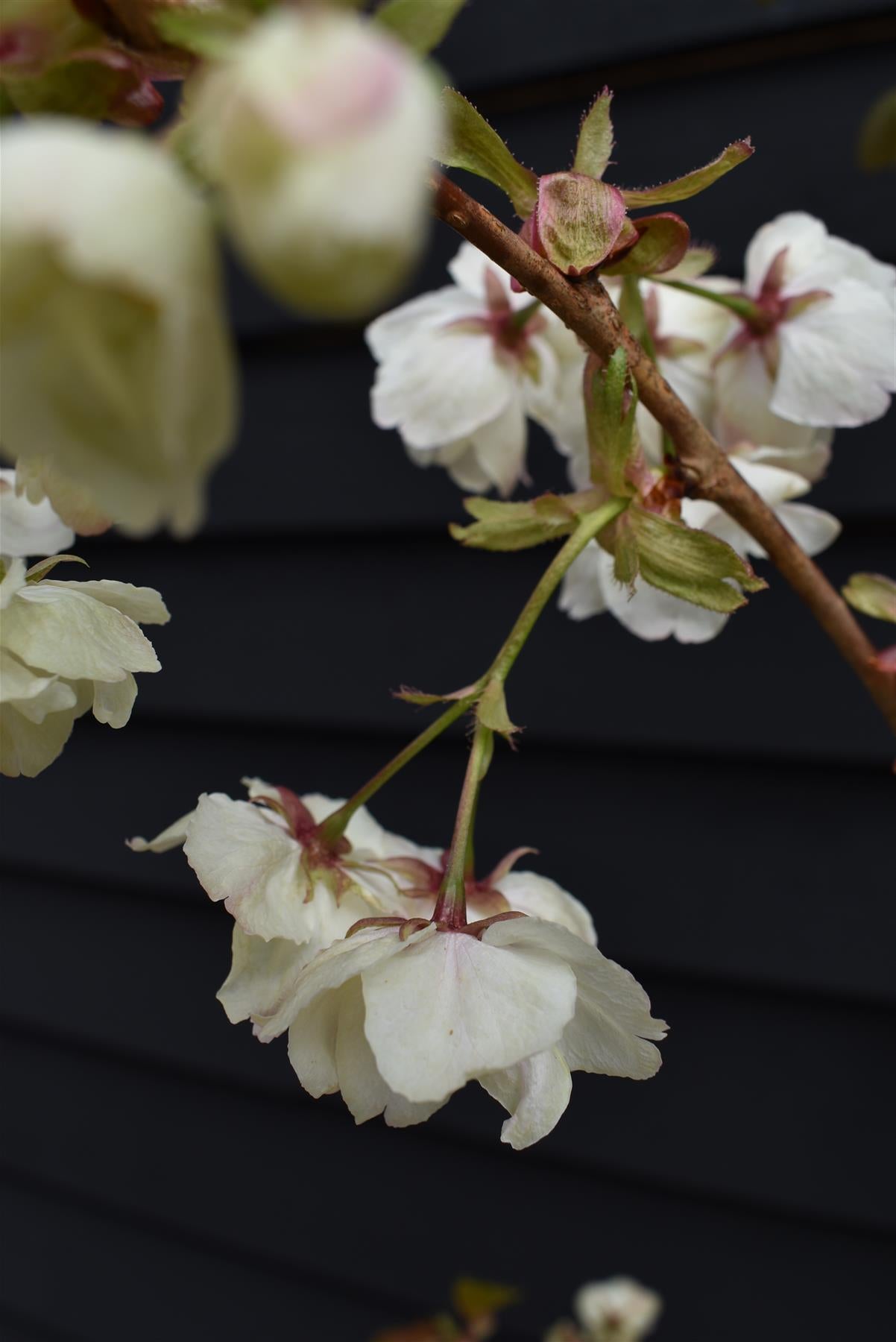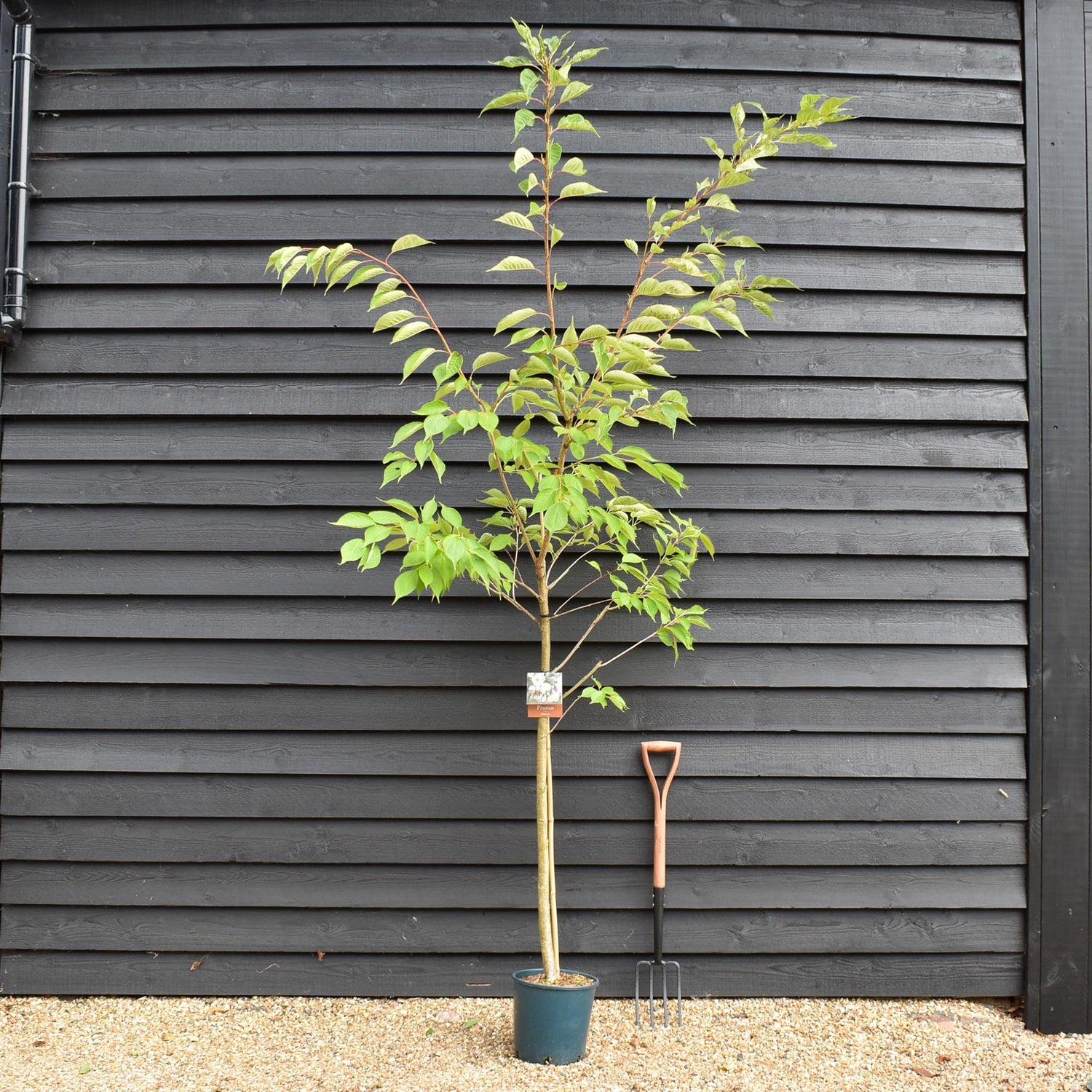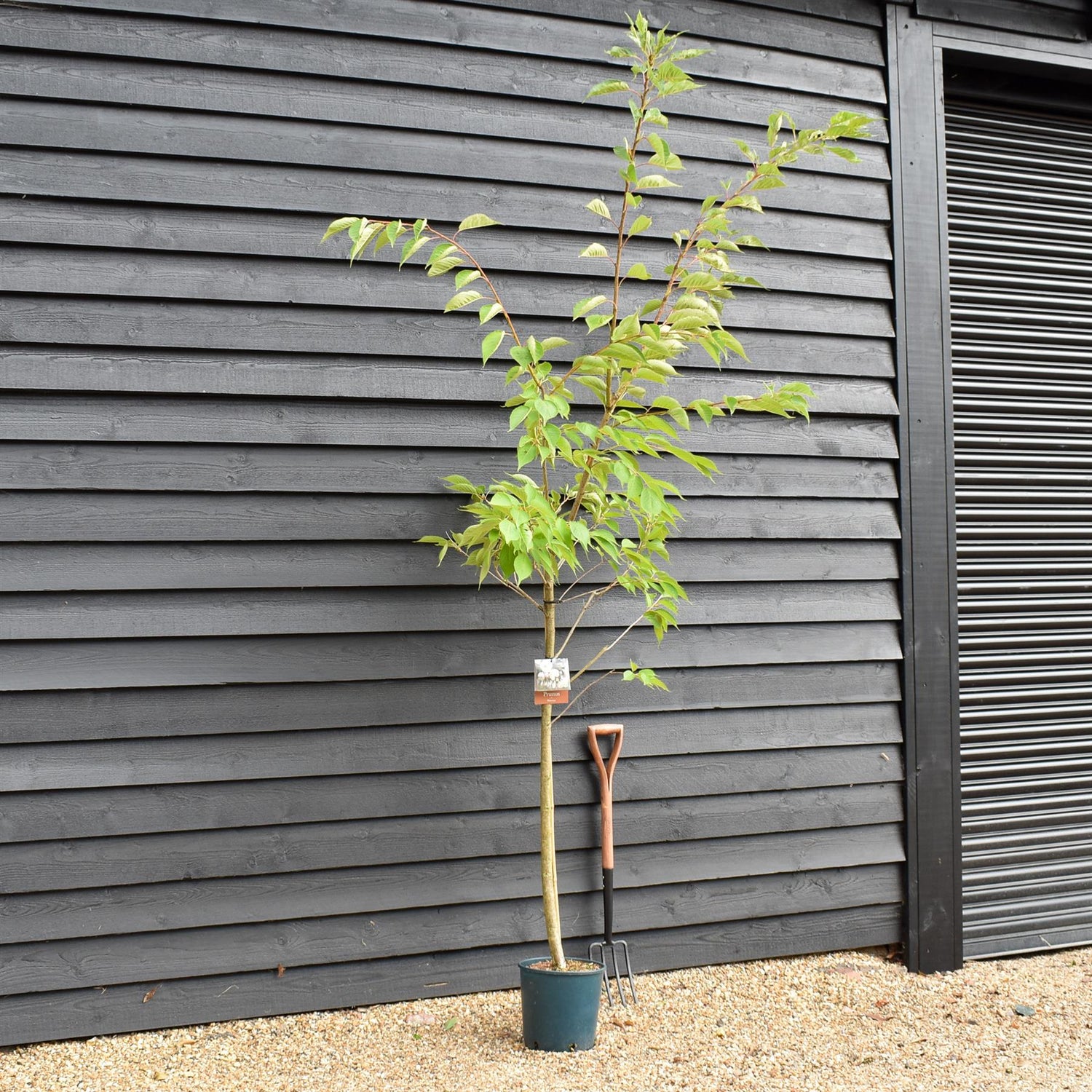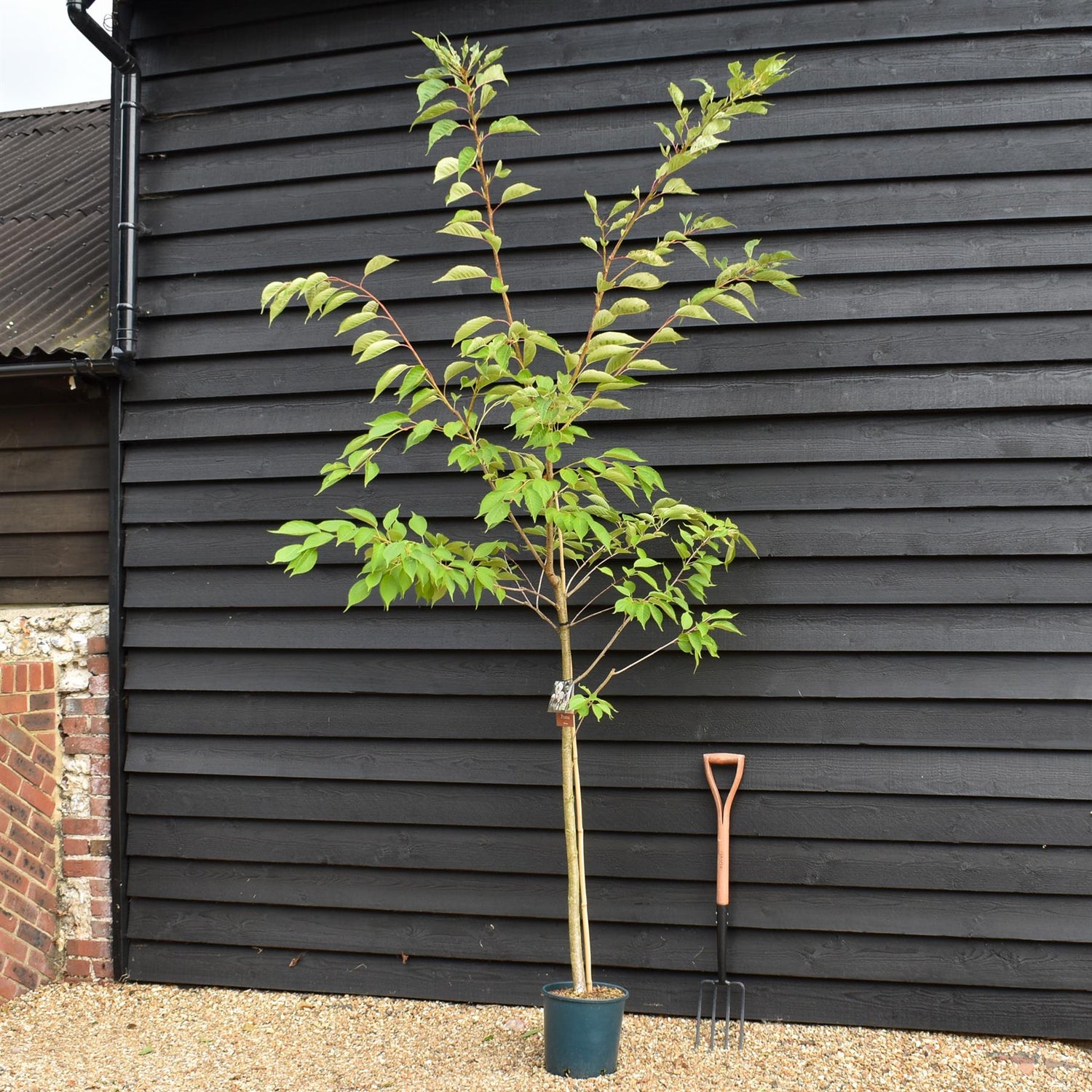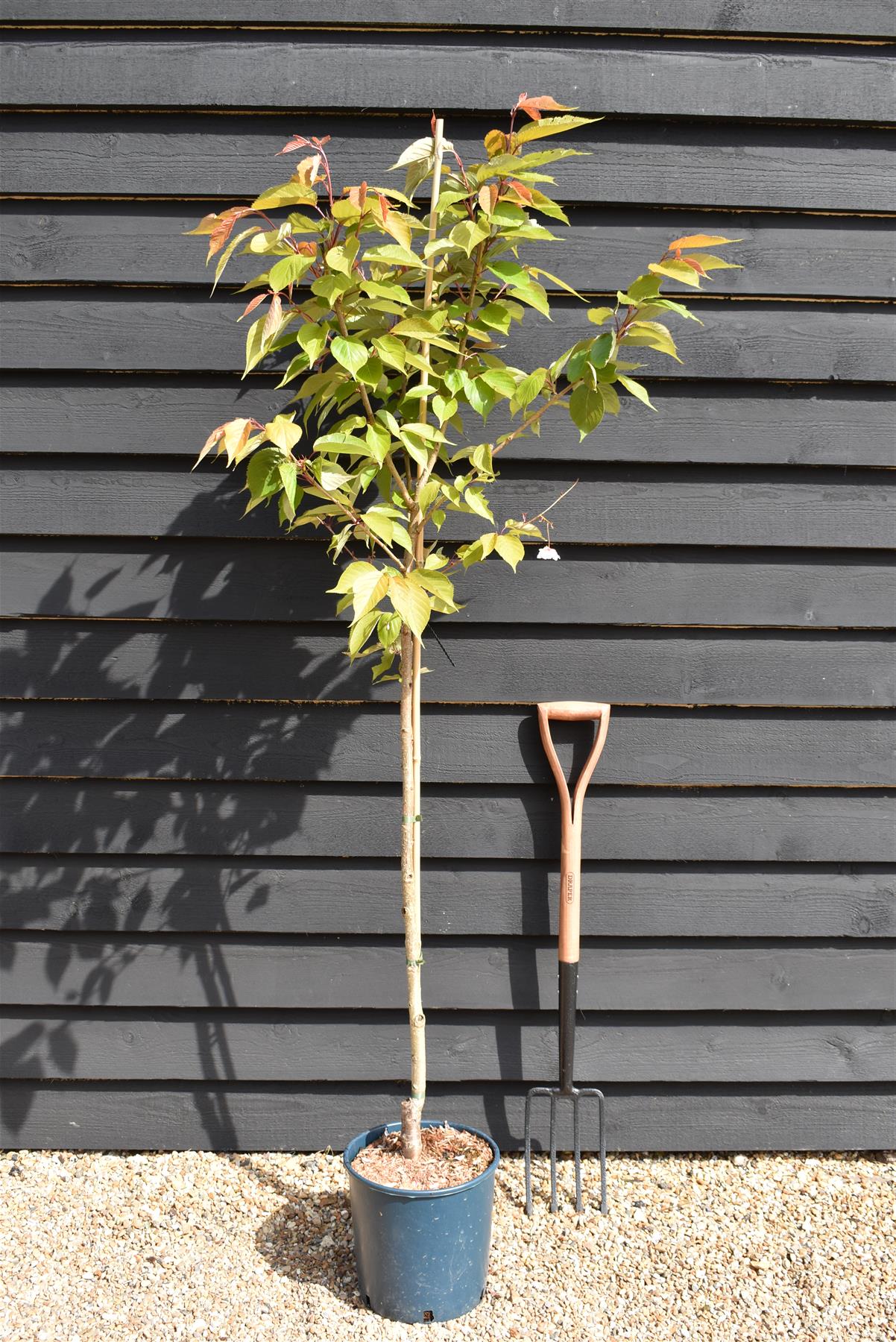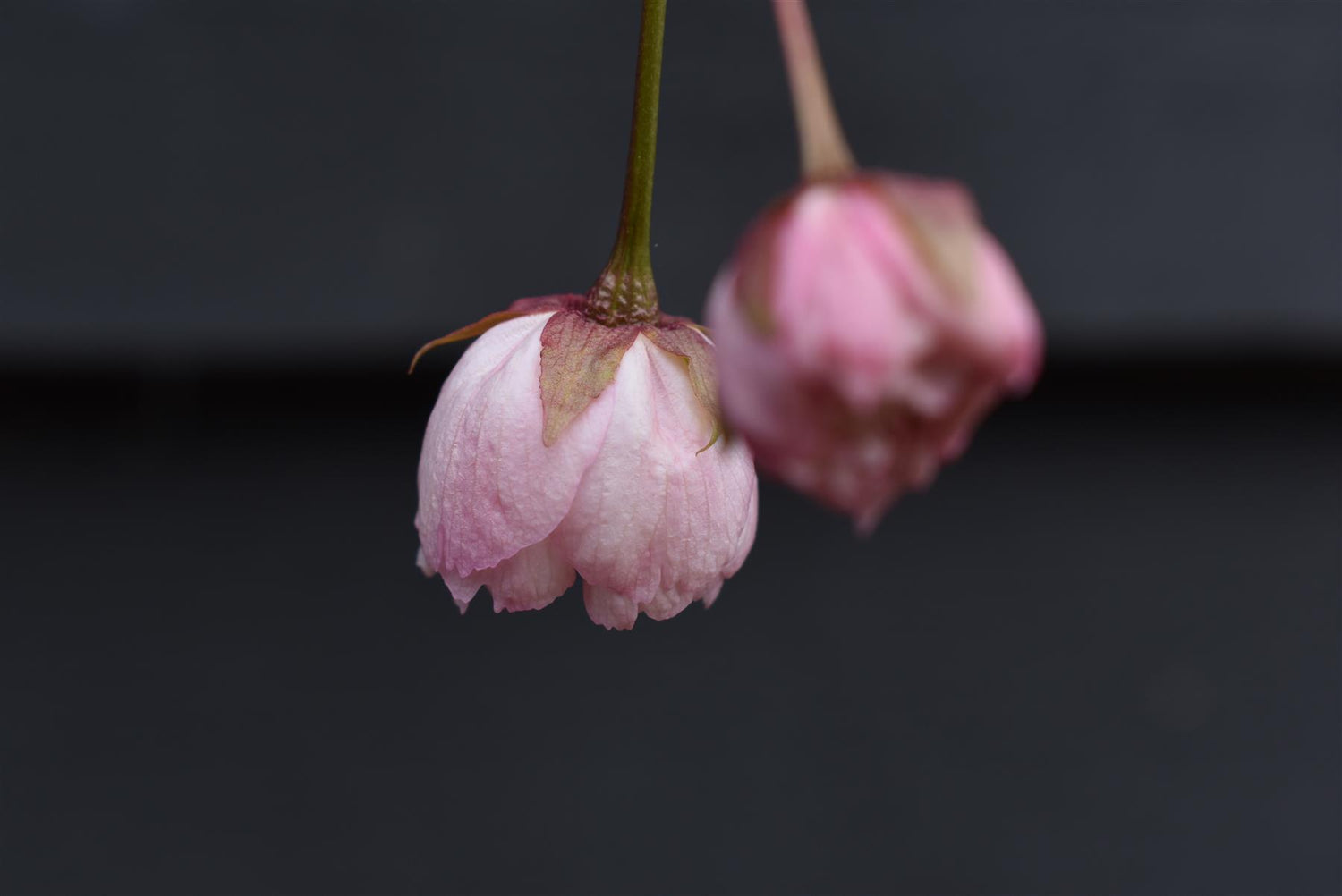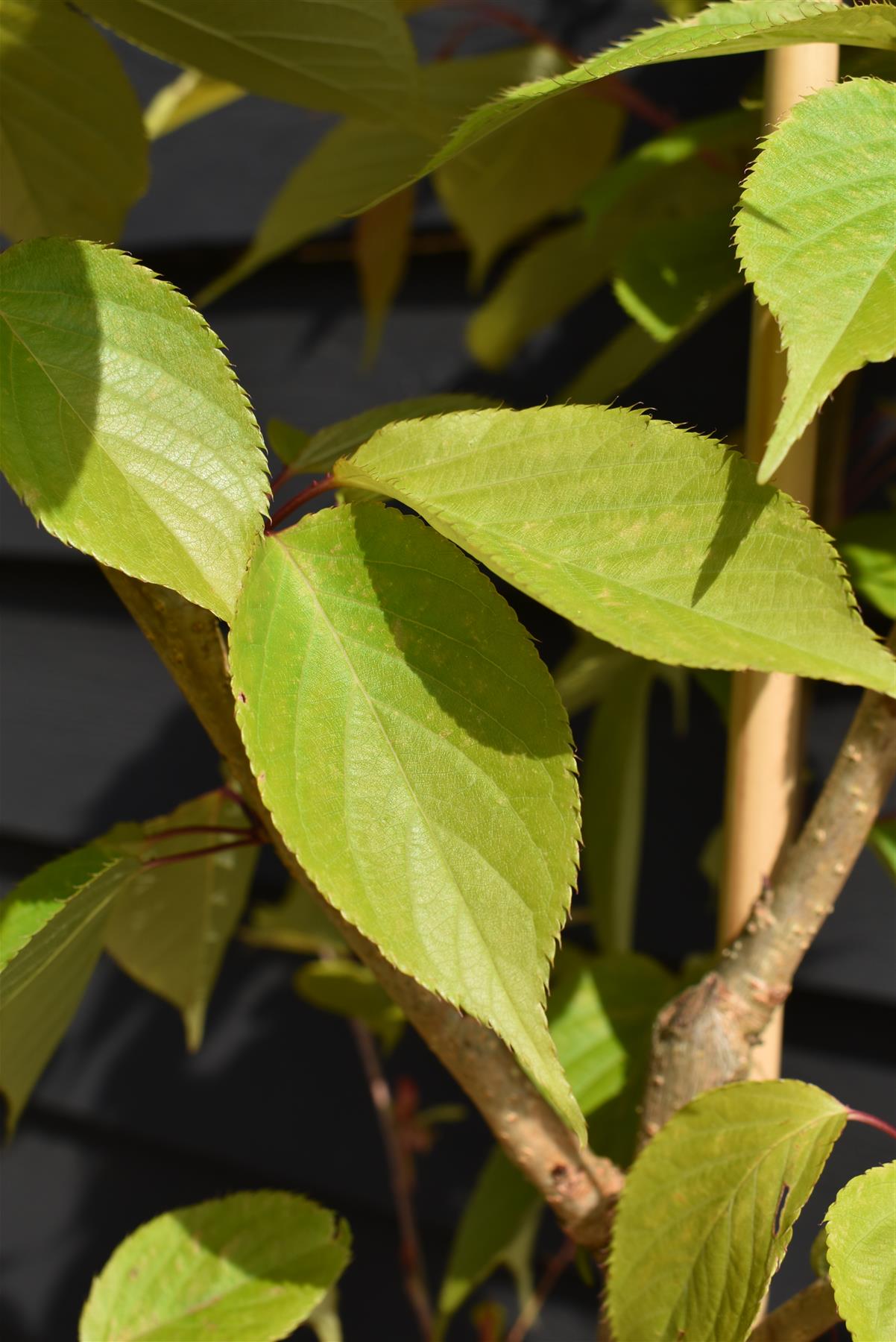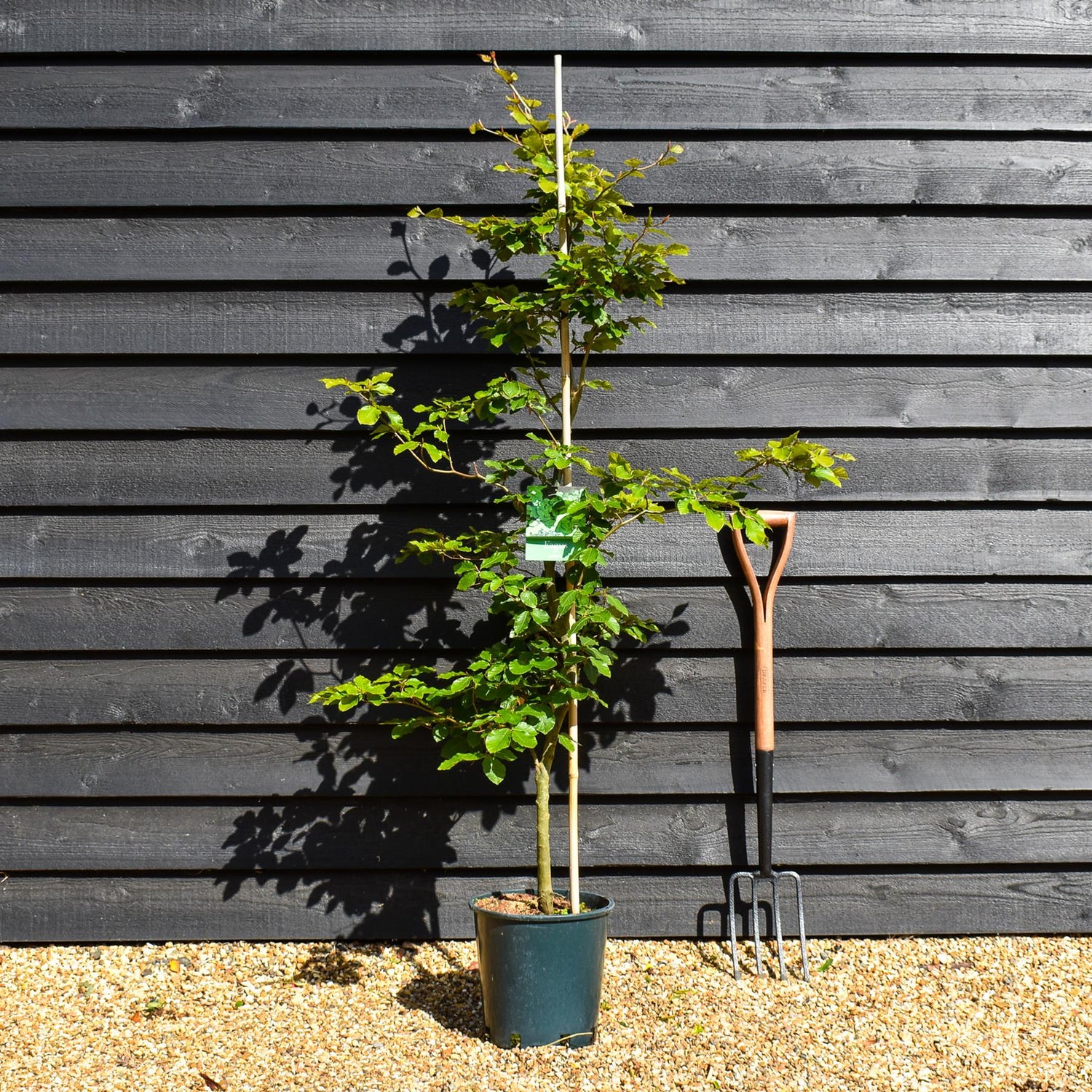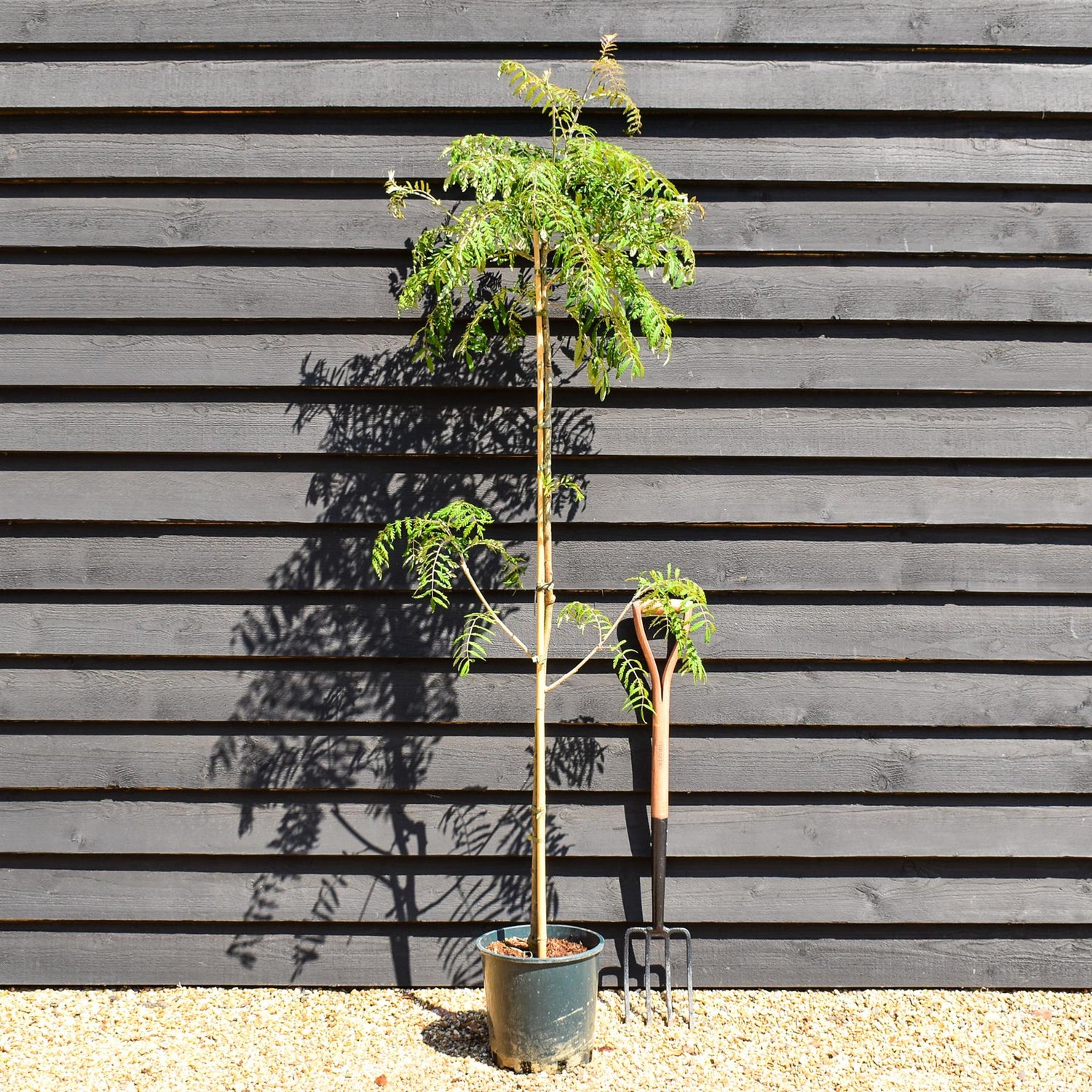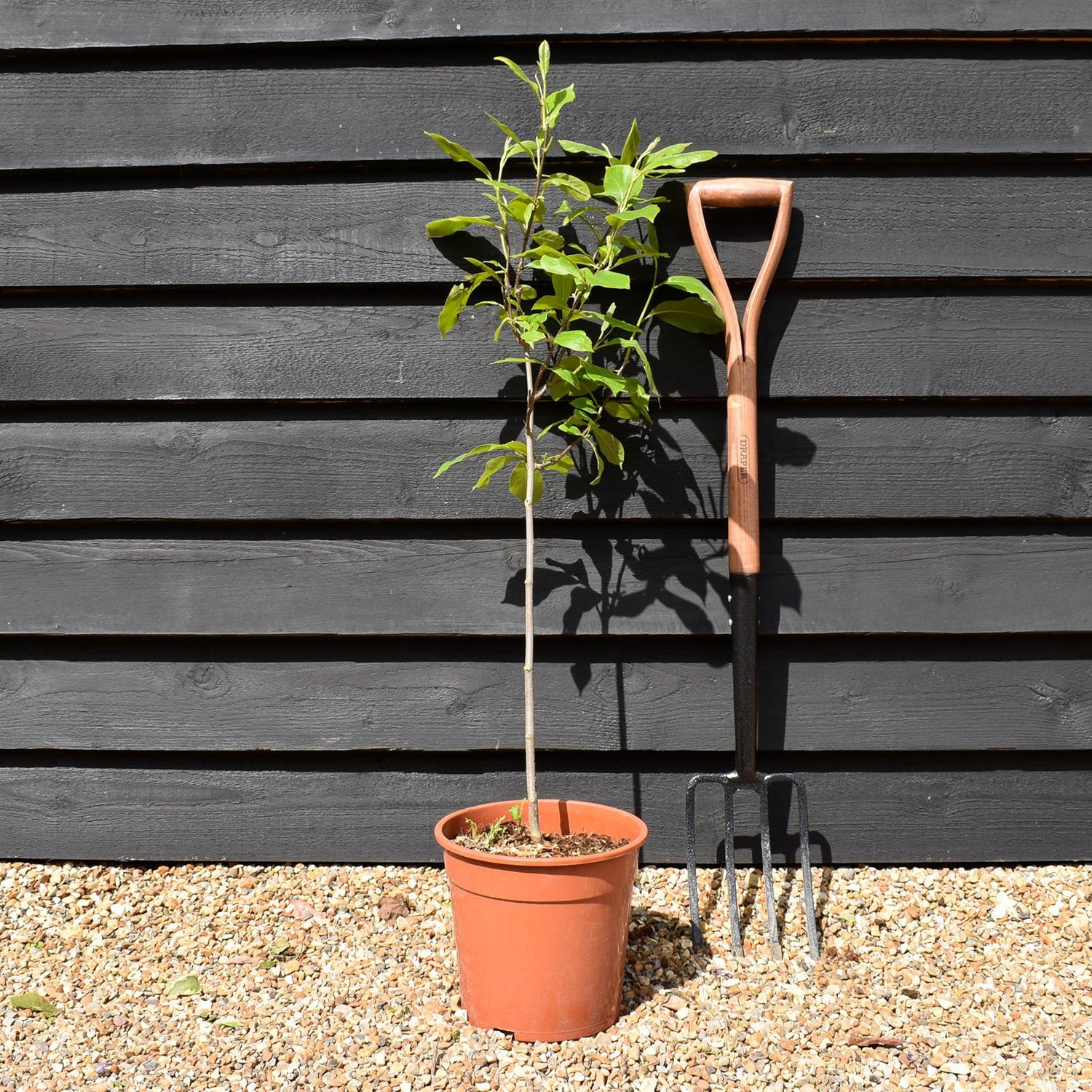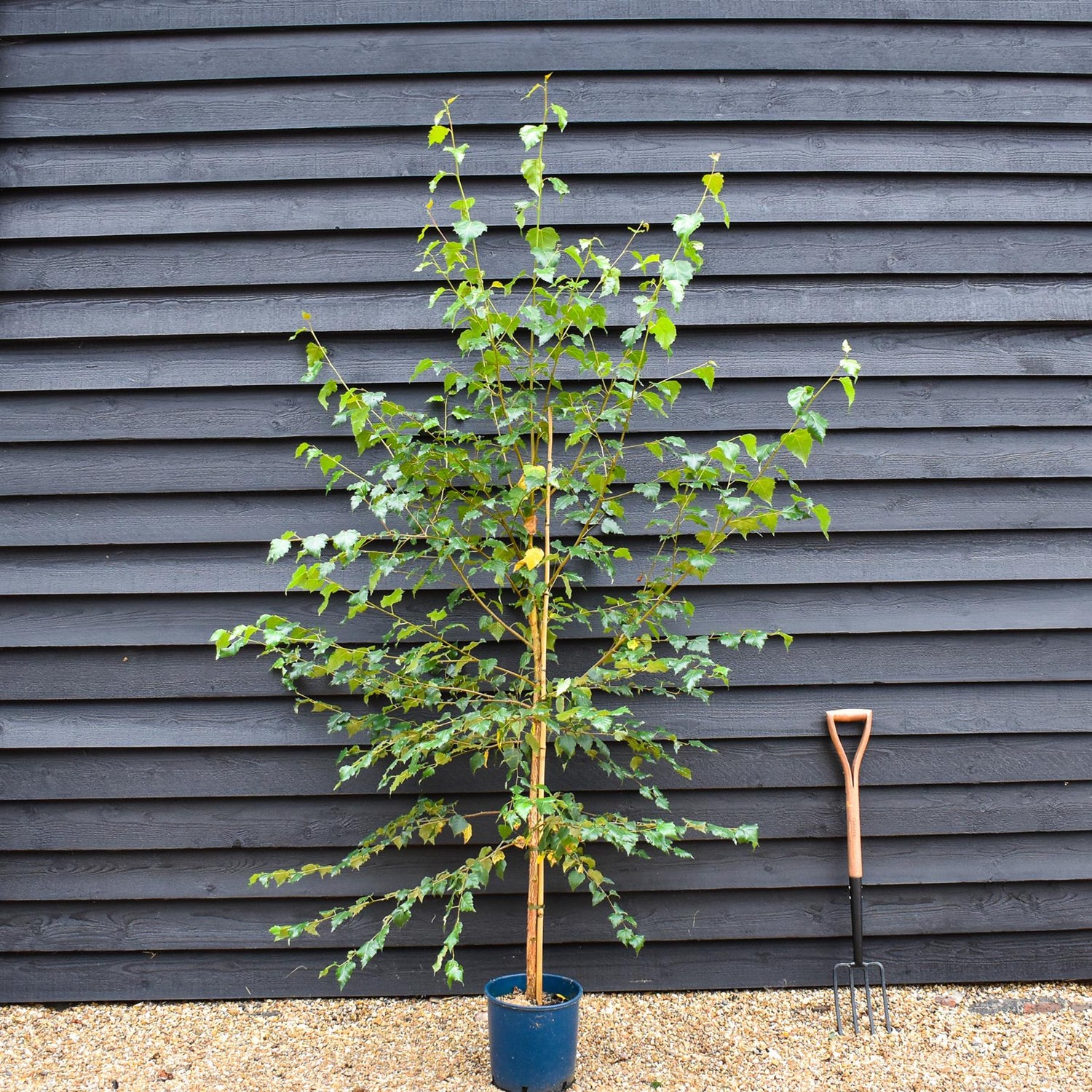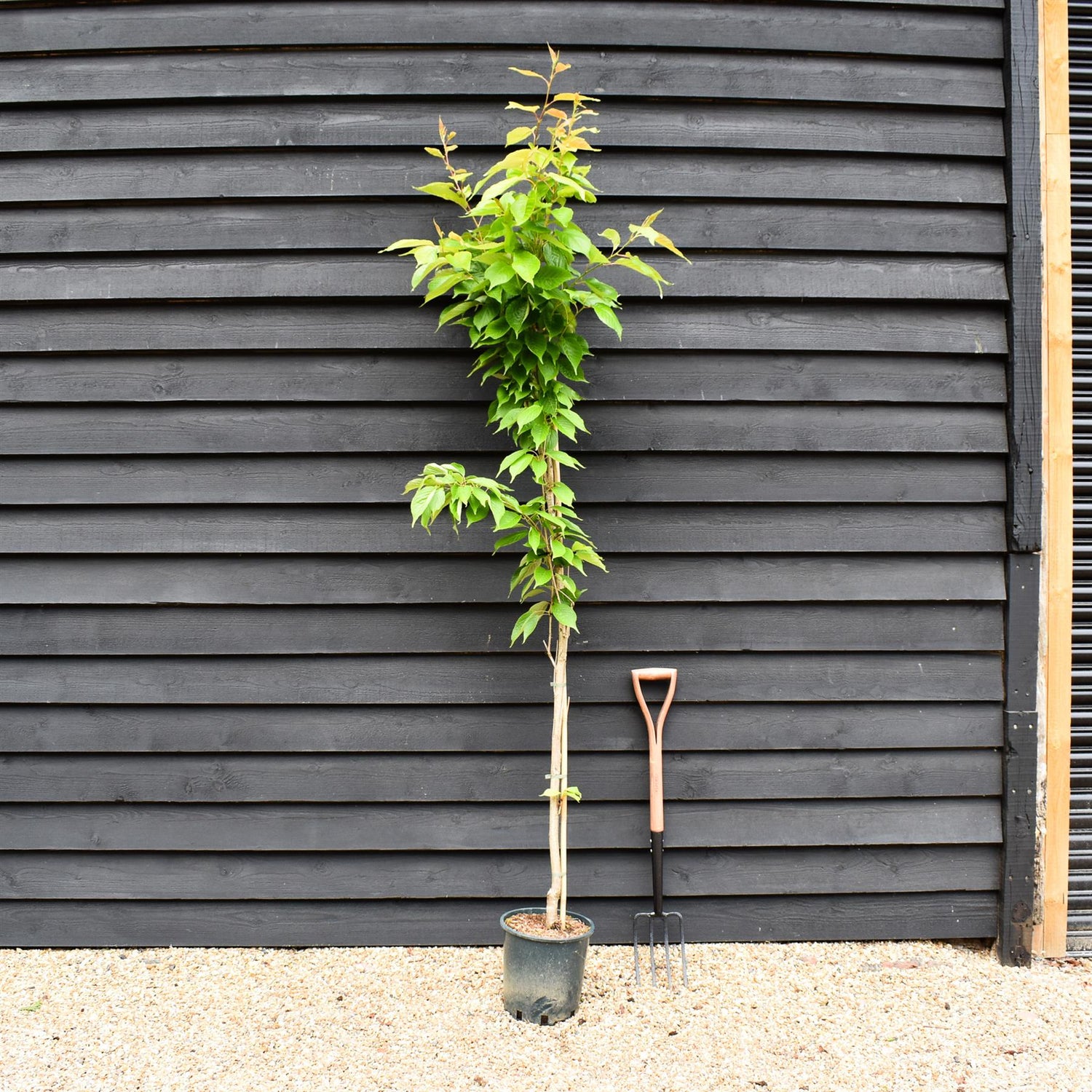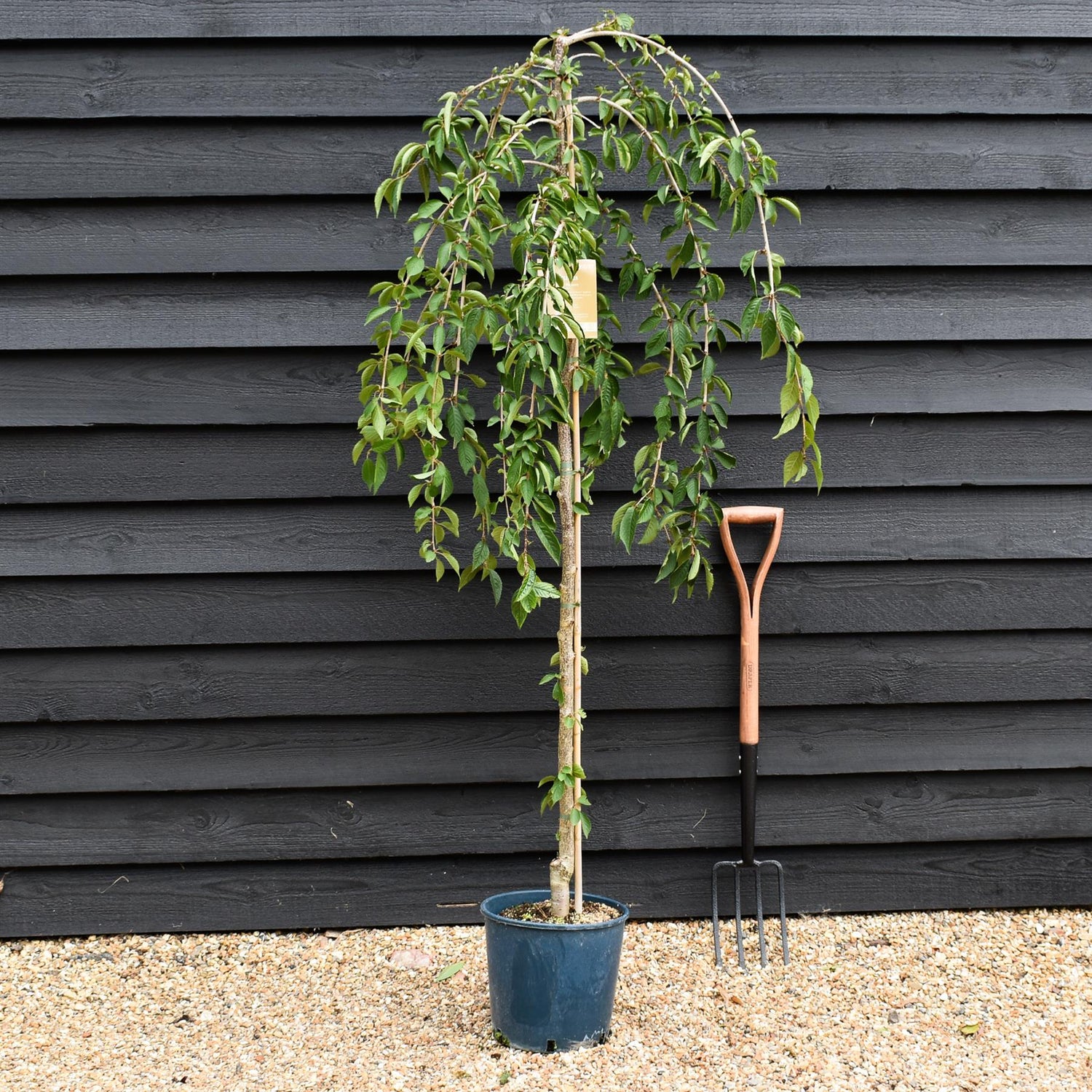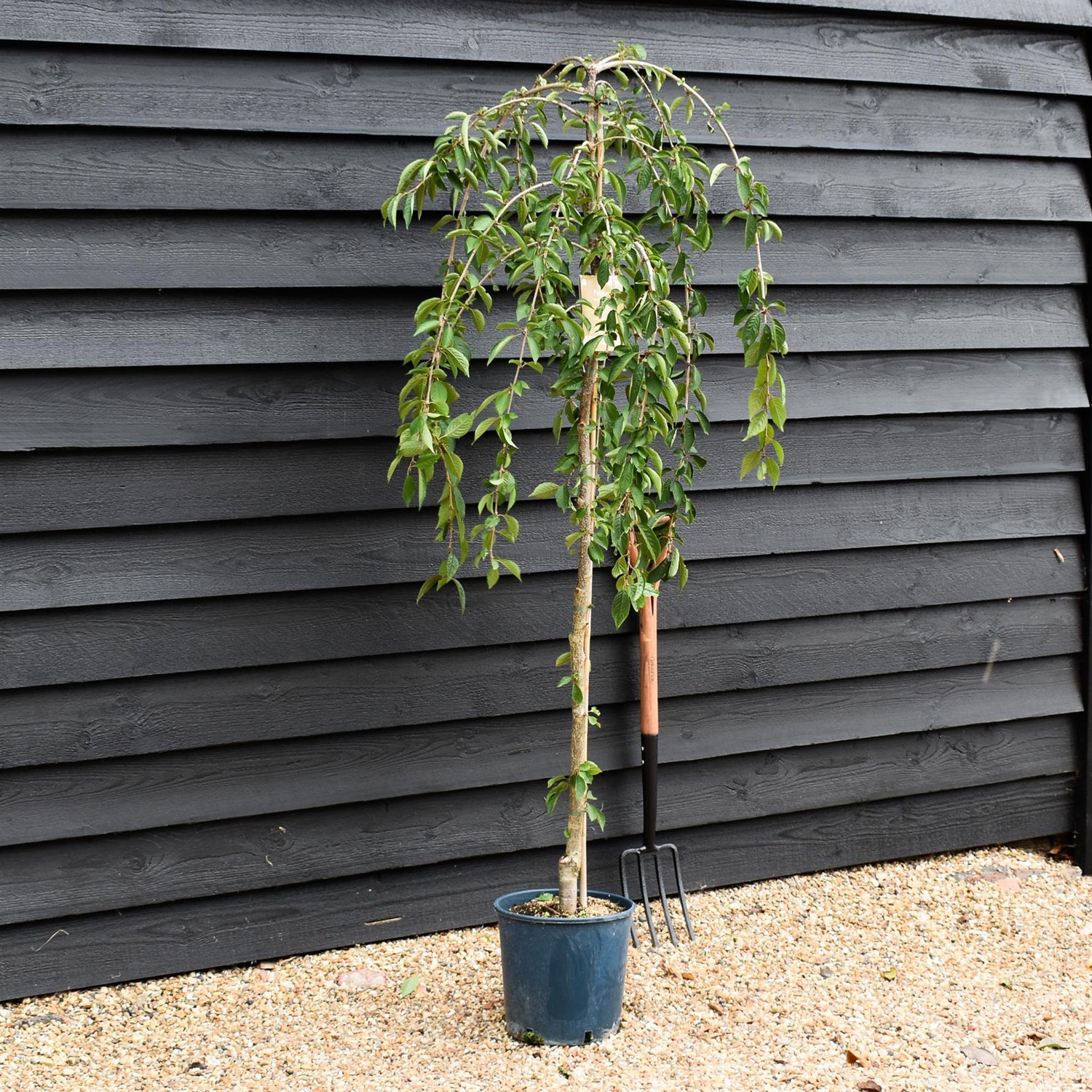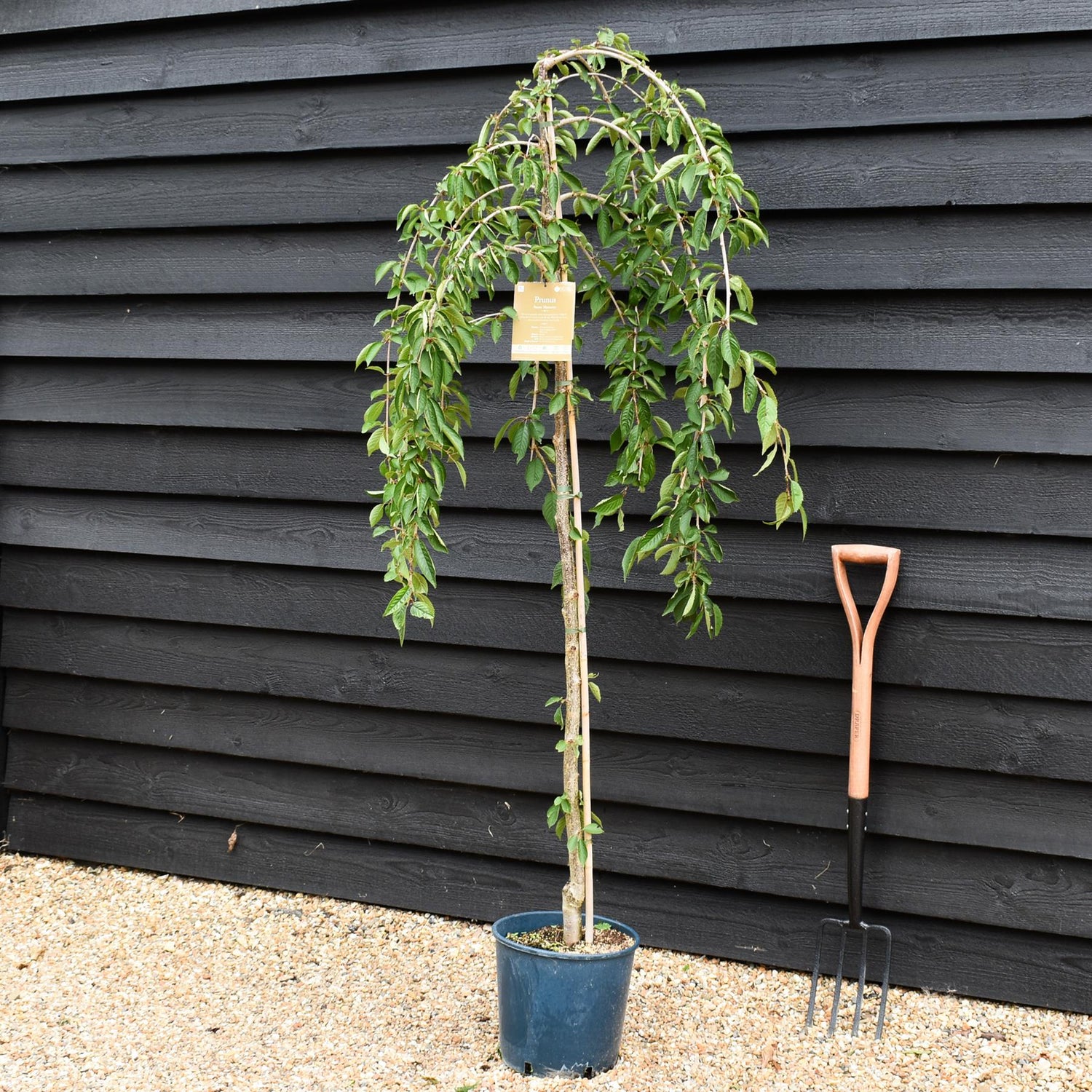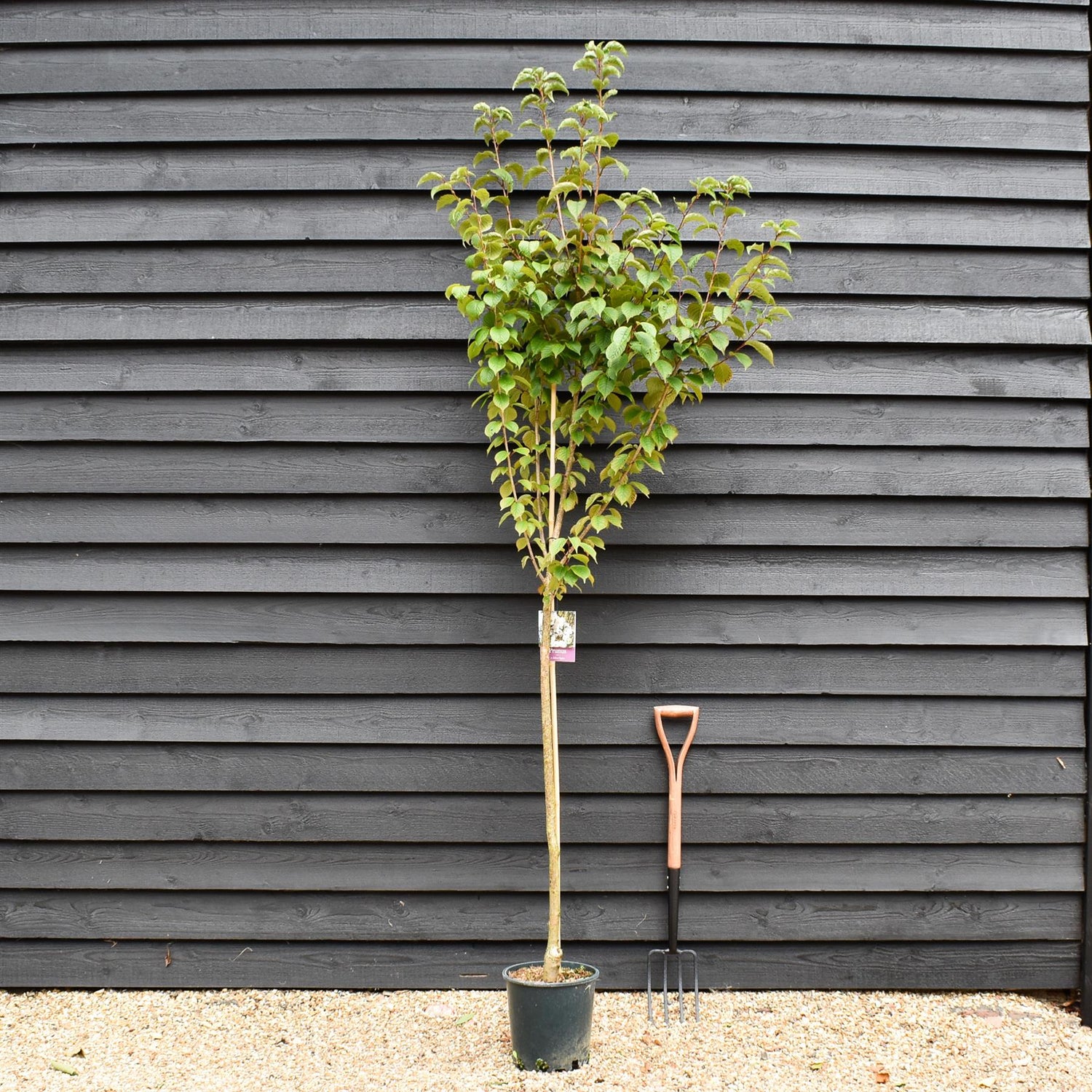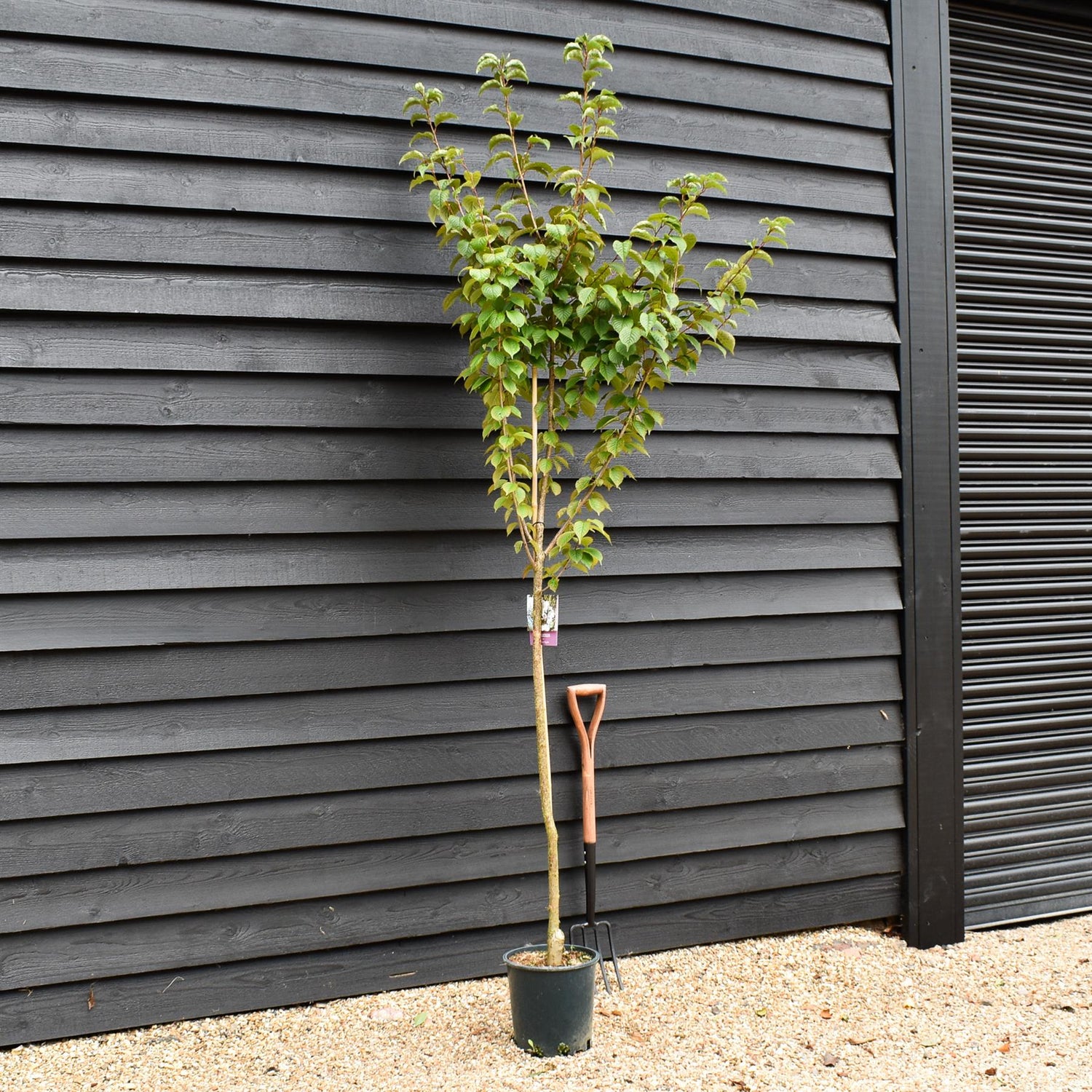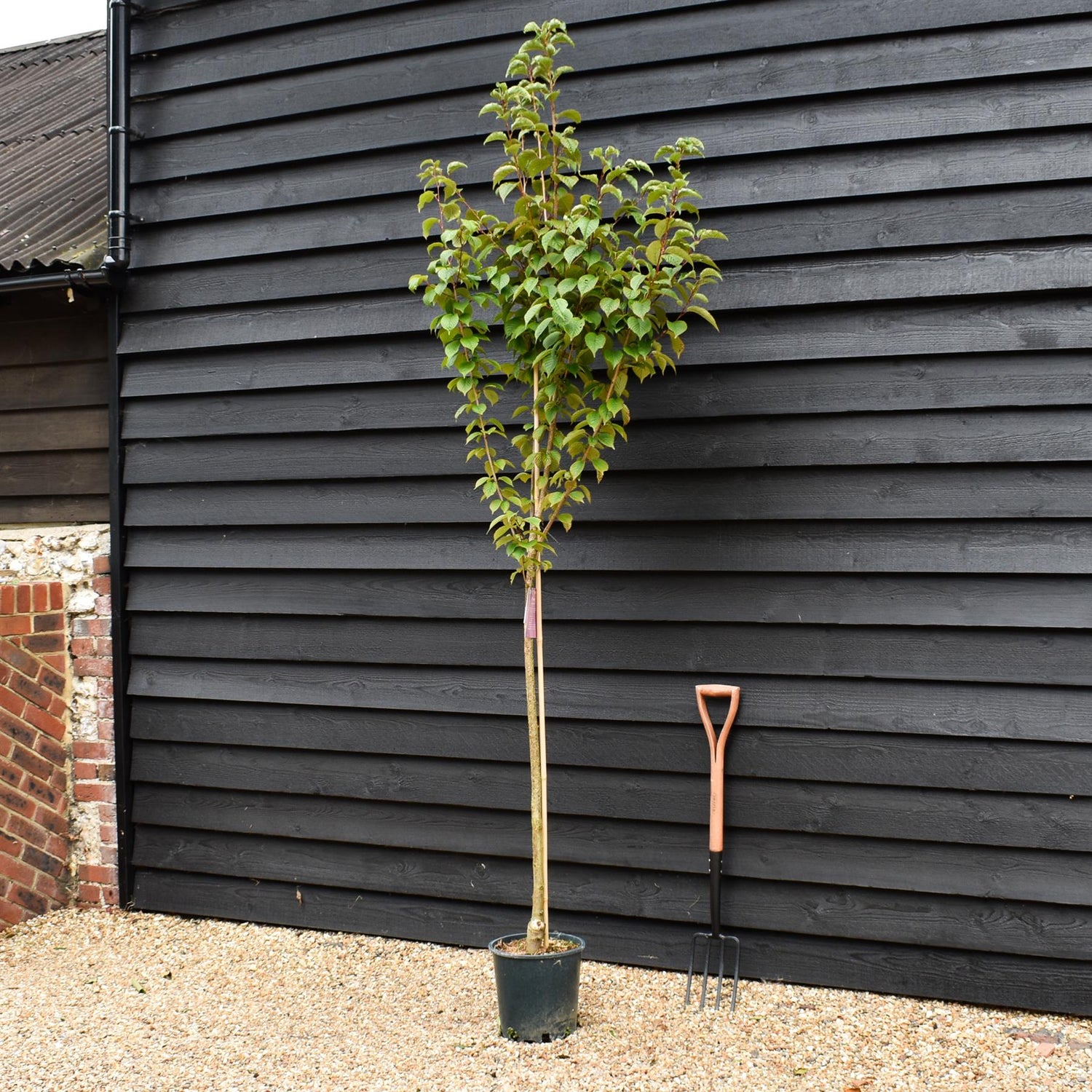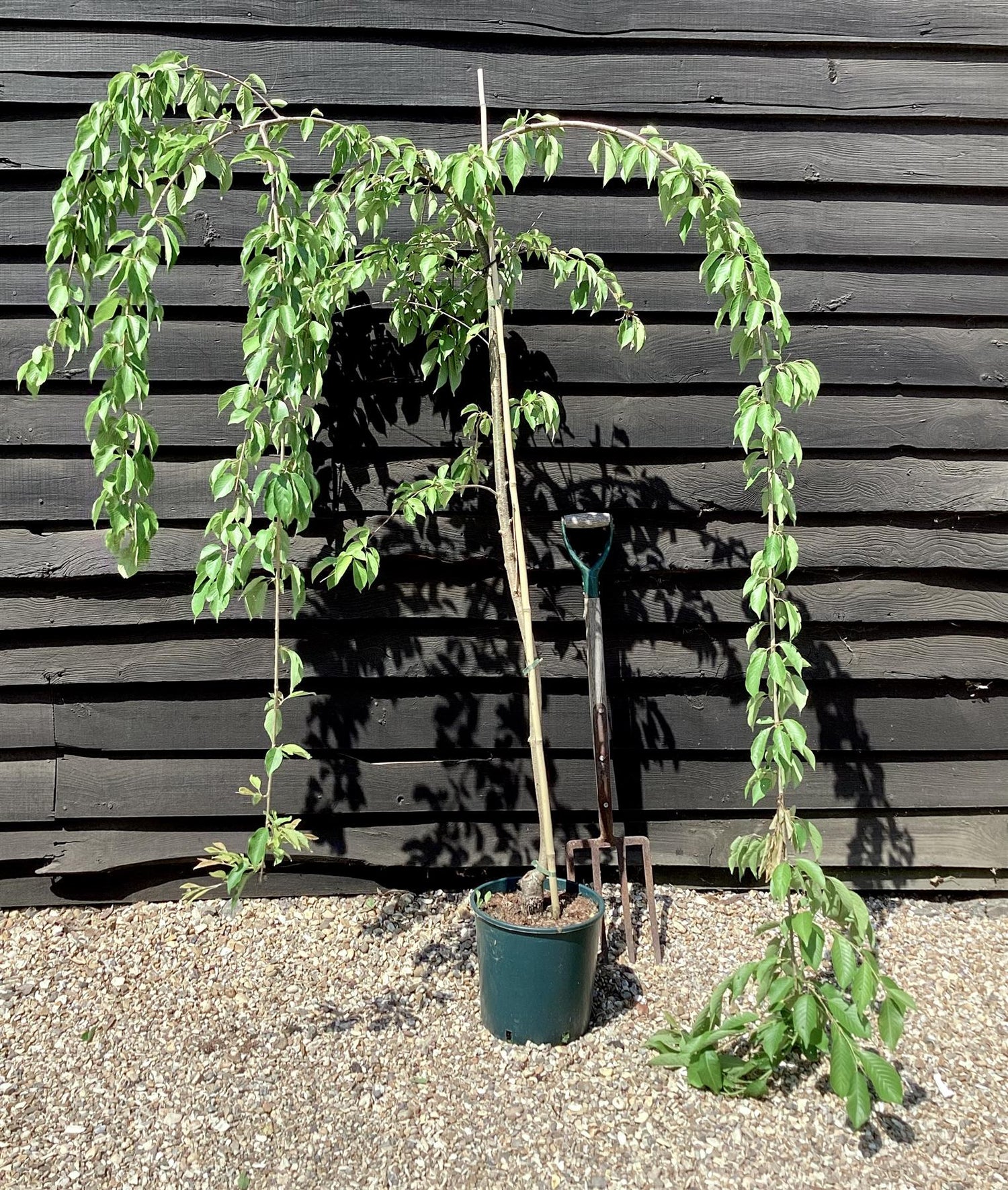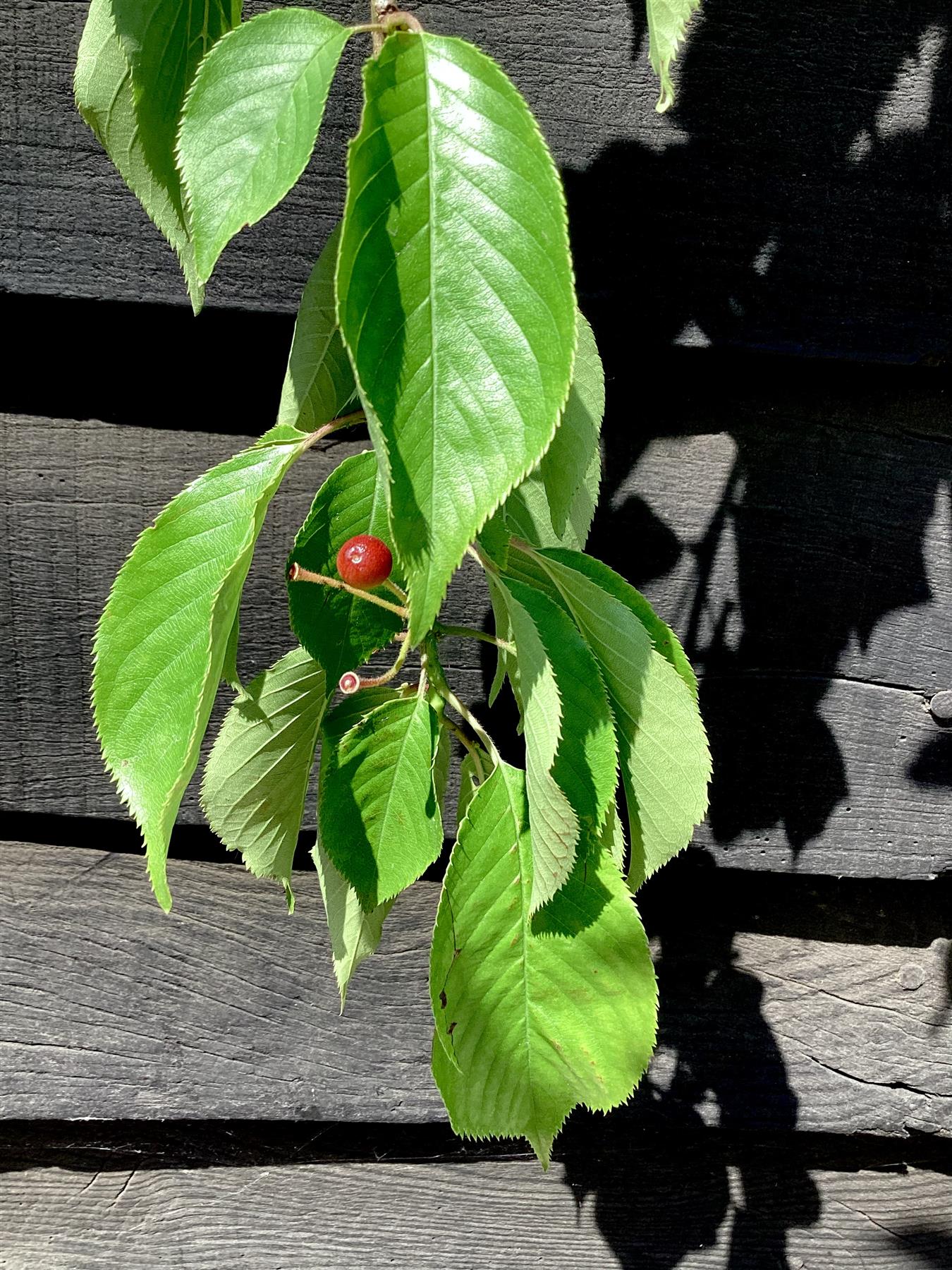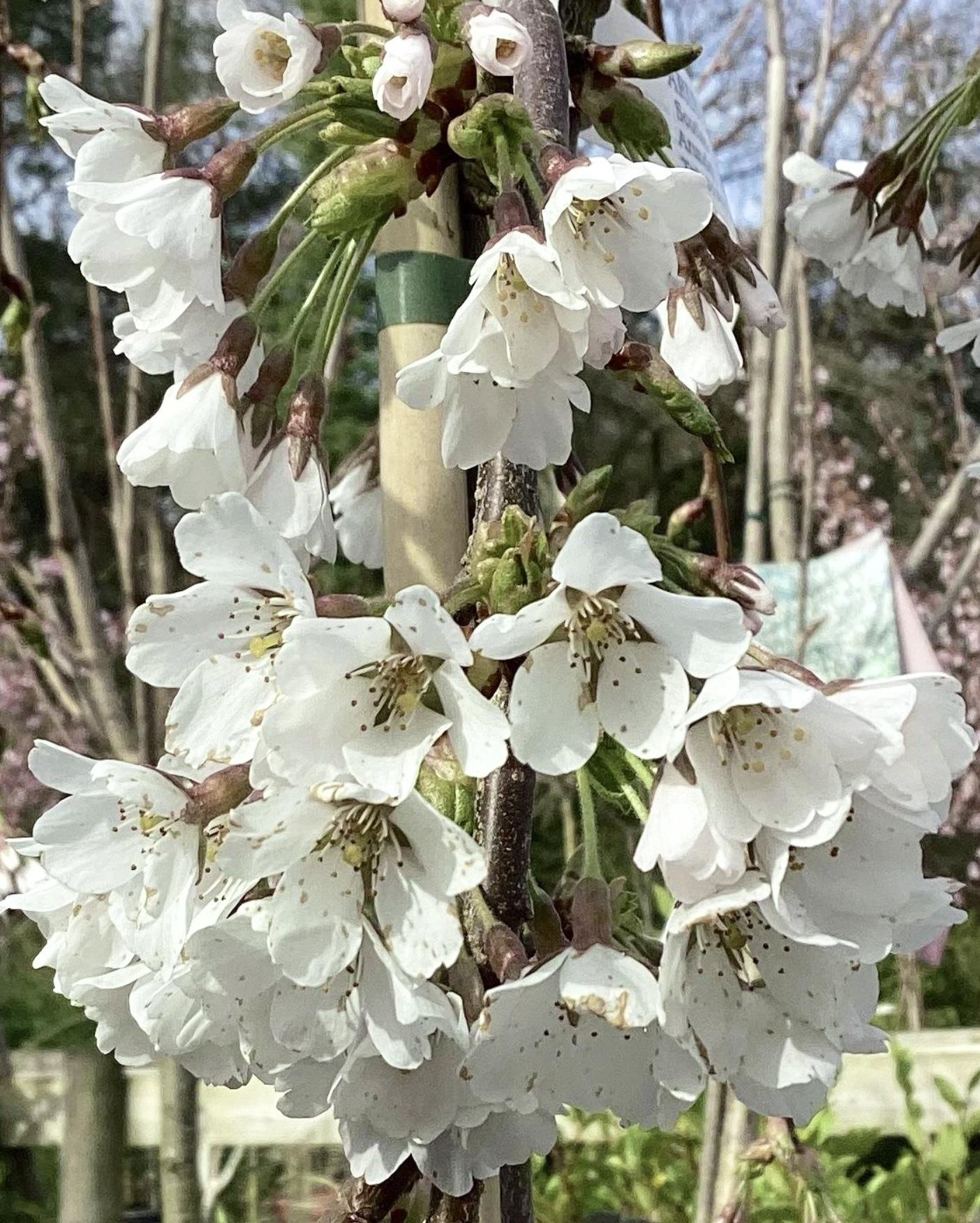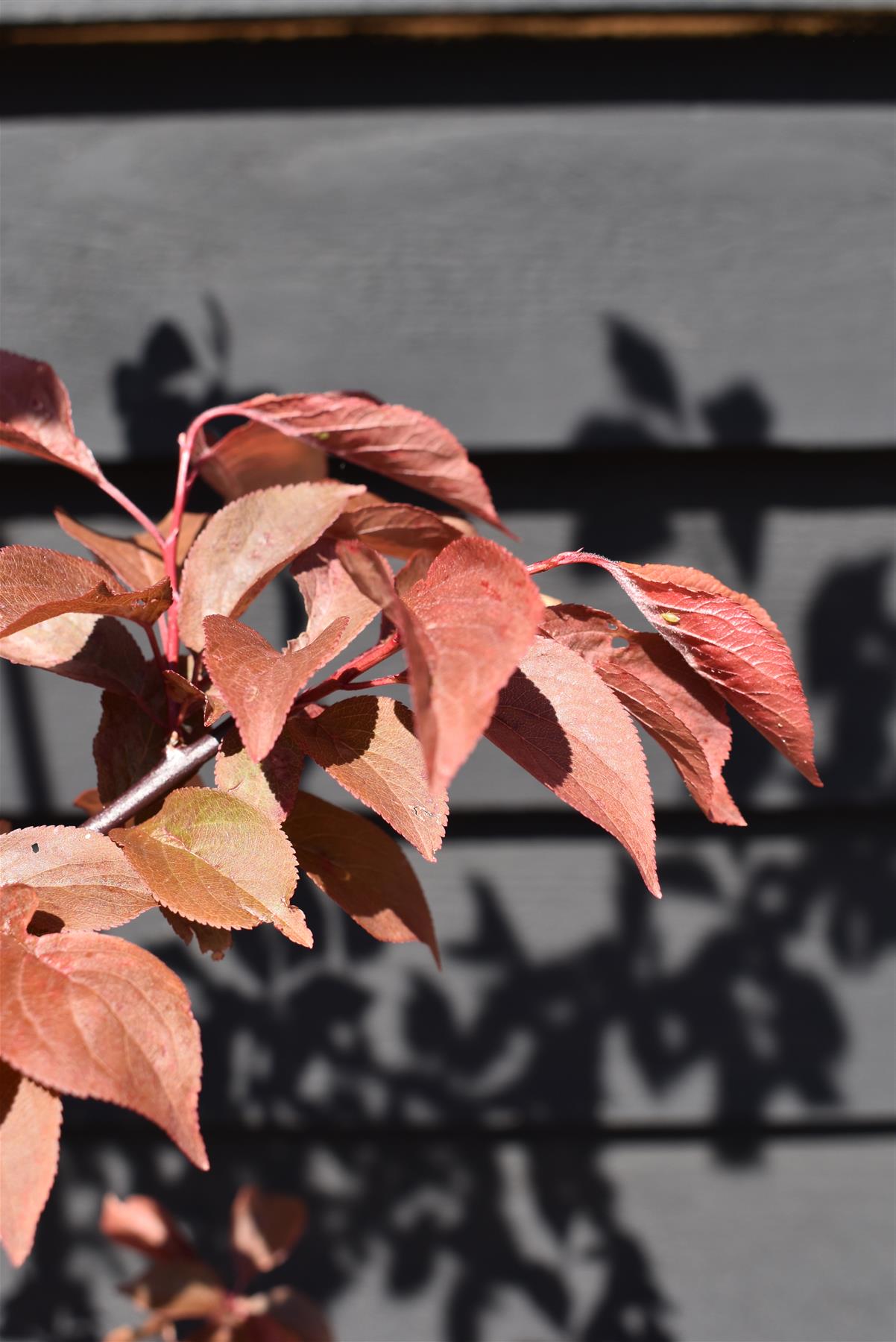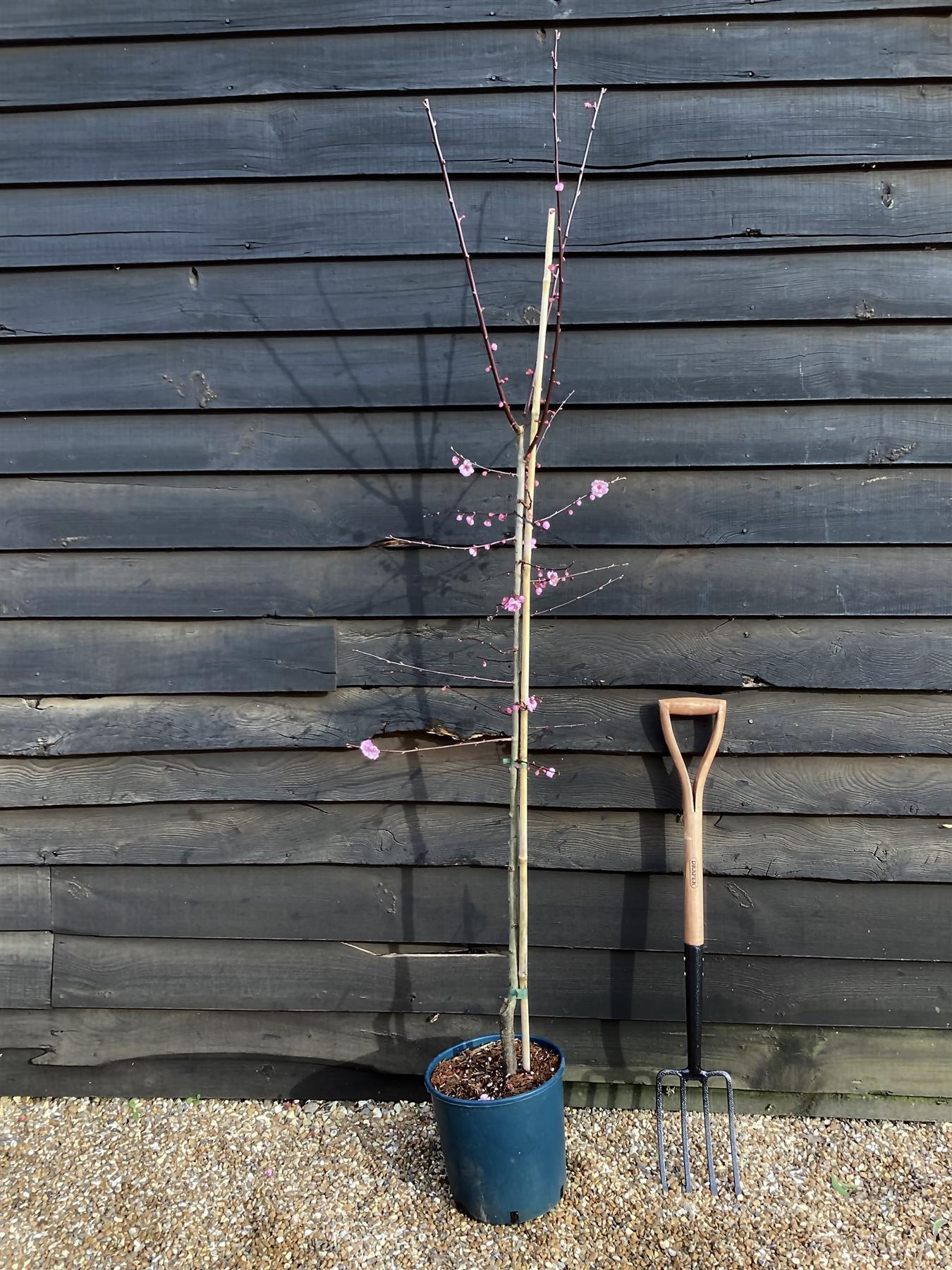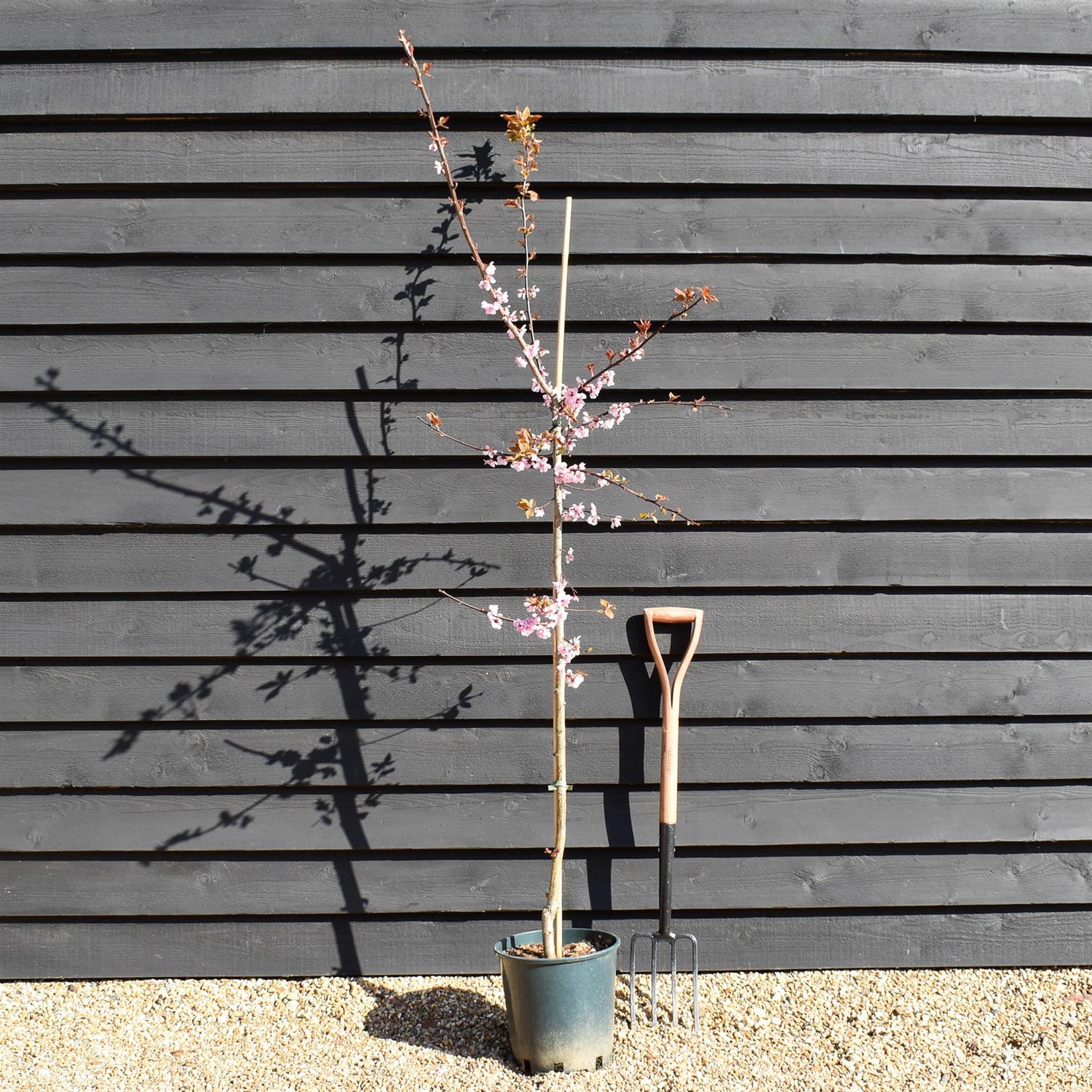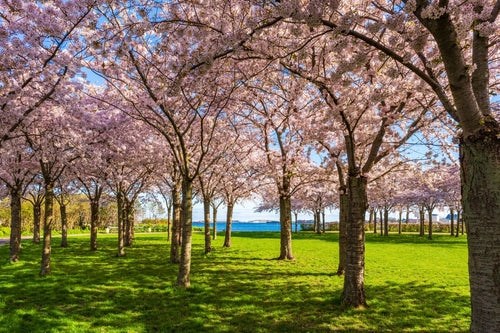786 products
786 products
Sort by:
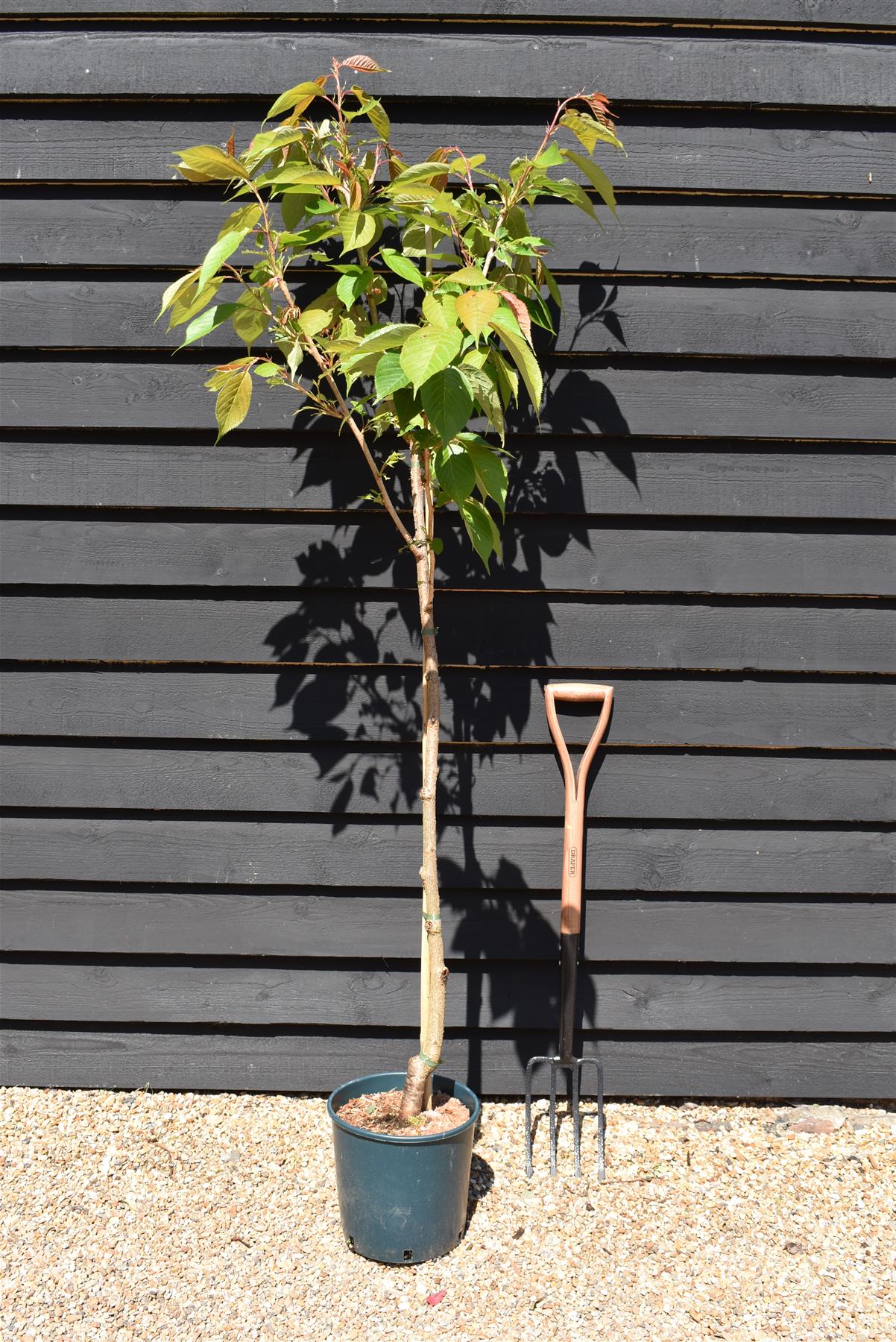
Prunus Tai Haku | Great White Cherry - Height 160-200cm - 12lt
£78.00
Unit price perPrunus Tai Haku | Great White Cherry - Height 160-200cm - 12lt
£78.00
Unit price per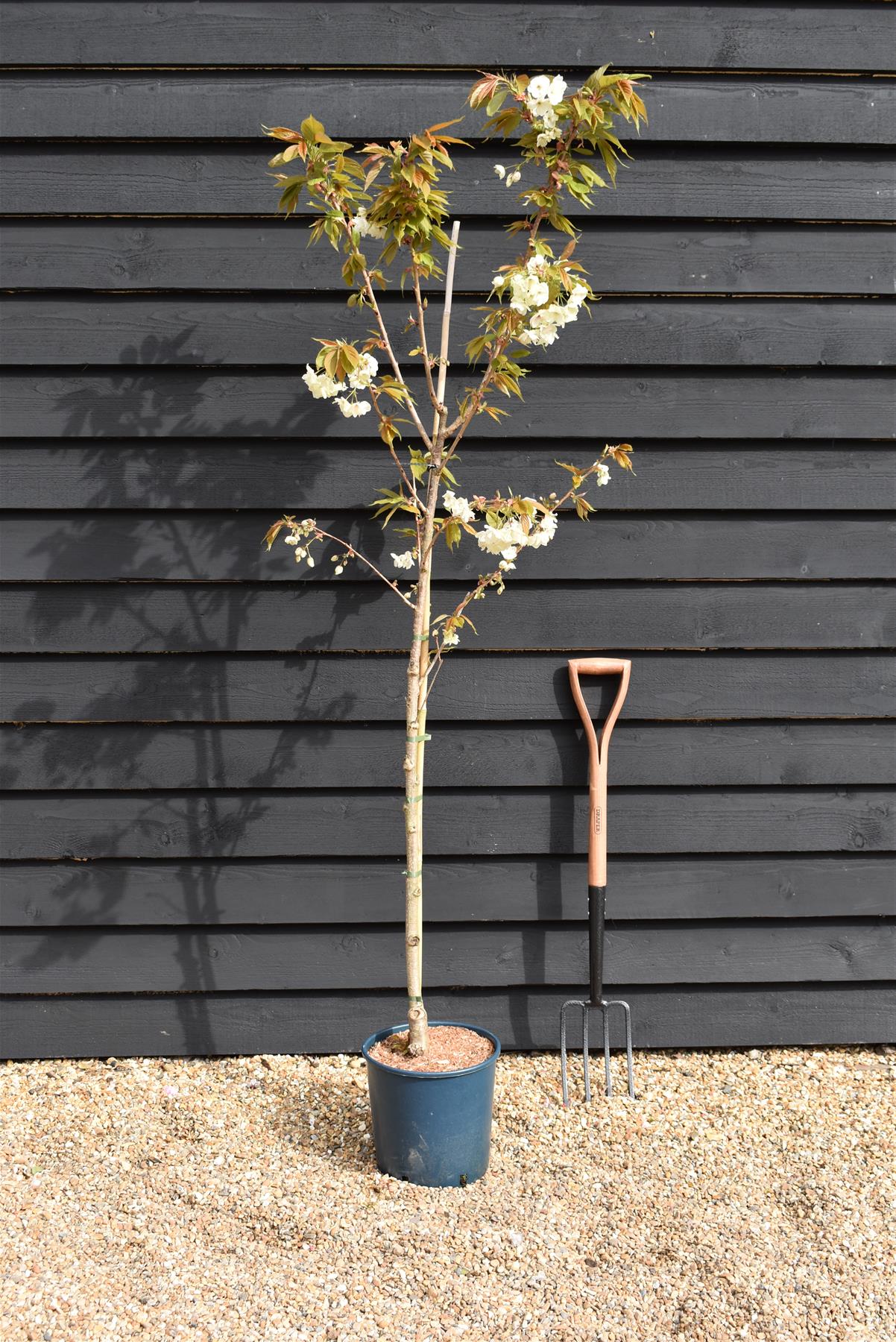
Cherry Blossom | Prunus Ukon - 180-220cm - 12lt
£78.00
Unit price perCherry Blossom | Prunus Ukon - 180-220cm - 12lt
£78.00
Unit price perPrunus ukon, commonly known as Ukon cherry or Japanese flowering cherry, is a captivating ornamental tree renowned for its stunning springtime blossoms. Belonging to the Rosaceae family, this deciduous tree originates from Japan and is prized for its aesthetic appeal in gardens, parks, and landscapes worldwide.
The Ukon cherry typically reaches heights of 15 to 25 feet and spreads about 15 to 20 feet wide at maturity, forming a graceful, rounded canopy. Its bark is smooth and dark brown, providing an elegant contrast to the vibrant blooms it bears. The foliage consists of serrated, elliptical leaves that emerge bronze-red in spring, gradually maturing to glossy green in summer, and turning golden-yellow in autumn, adding seasonal interest.
What truly sets the Prunus ukon apart is its breathtaking display of flowers in early spring. Before the leaves unfurl, the tree becomes enveloped in an abundance of semi-double to double blossoms, each measuring about 1 to 1.5 inches across. These flowers feature pale pink to white petals tinged with hints of yellow, creating a soft, ethereal effect against the emerging foliage. The fragrance of the blooms adds to the sensory delight, attracting bees and pollinators.
Prunus Shirotae | Cherry 'Shirotae' - 200-250cm, 10lt
£78.00
Unit price perPrunus Shirotae | Cherry 'Shirotae' - 200-250cm, 10lt
£78.00
Unit price perPrunus Shirofugen | Cherry 'Fugenzo' - Height 140-160cm - 10lt
£78.00
Unit price perPrunus Shirofugen | Cherry 'Fugenzo' - Height 140-160cm - 10lt
£78.00
Unit price perFagus sylvatica | European Beech - Height 155-190cm - 12lt
£78.00
Unit price perFagus sylvatica | European Beech - Height 155-190cm - 12lt
£78.00
Unit price perSorbus aucuparia Chinese Lace | Rowan | Mountain Ash - Height 140-180cm - 12lt
£78.00
Unit price perSorbus aucuparia Chinese Lace | Rowan | Mountain Ash - Height 140-180cm - 12lt
£78.00
Unit price perSorbus aucuparia 'Chinese Lace' is a distinctive ornamental tree valued for its unique aesthetic appeal and hardiness. It features finely cut, intricate, lace-like leaves, which grant the tree an elegant and delicate appearance. The tree produces clusters of vibrant orange-red berries, which are a prominent feature in the late summer and fall, providing a striking contrast to the foliage and attracting various birds and wildlife.
This variety of Sorbus aucuparia is celebrated for its adaptability to different environmental conditions, tolerating a range of soil types and prospering in both full sun and partial shade. It’s relatively resistant to diseases and pests, making it a low-maintenance choice for gardens and landscapes.
The ‘Chinese Lace’ showcases a splendid display of color during the autumn season when the leaves turn into a mixture of fiery reds, oranges, and yellows, creating a visual spectacle. This decorative feature makes it a sought-after choice for those looking to add autumnal color to their gardens.
Its compact growth habit and moderate height make it suitable for smaller gardens or for planting in restricted spaces. It provides structure, texture, and color to landscapes, blending well with other plants or standing alone as a focal point, enhancing the overall aesthetics of the surroundings.
Magnolia x soulangeana- Quarter Standard - Clear Stem 50cm - Height 100cm - 7lt
£78.00
Unit price perMagnolia x soulangeana- Quarter Standard - Clear Stem 50cm - Height 100cm - 7lt
£78.00
Unit price perMagnolia x soulangeana is a spreading, deciduous shrub or small tree of upright habit when young and pyramidal to rounded as it matures, with smooth, silvery bark, and obovate mid-green leaves, golden-brown in autumn. Masses of fragrant, large, cup-shaped, white, pink or purple flowers, white inside, bloom in late spring before the leaves emerge. Magnolia x soulangeana is adaptable to a wide range of soils, except too wet and too dry.
It prefers fertile, organically rich, slightly acidic, moist, and well-drained soils. It is tolerant of frost, but needs to be sheltered form harsh, drying winds. Early frost can damage flower buds. It can withstand urban pollution. Low maintenance plant, doesn’t need regular pruning.
Magnolia x soulangeana is a hybrid cross between M. denudata and M. liliflora. This impressive magnolia makes an excellent specimen plant for informal, cottage, and urban gardens. Great for informal hedges and screens. Suitable for growing in containers.
Magnolia Stellata - Quarter Standard - Clear Stem 50cm - Height 100cm - 7lt
£78.00
Unit price perMagnolia Stellata - Quarter Standard - Clear Stem 50cm - Height 100cm - 7lt
£78.00
Unit price perMagnolia Liliiflora Nigra - Clear Stem 45cm - Height 90-100cm - 7lt
£78.00
Unit price perMagnolia Liliiflora Nigra - Clear Stem 45cm - Height 90-100cm - 7lt
£78.00
Unit price perSilver Birch| Betula Pendula - Girth 6-10cm Height -180-200cm - 12lt
£78.00
Unit price perSilver Birch| Betula Pendula - Girth 6-10cm Height -180-200cm - 12lt
£78.00
Unit price perPrunus Amanogawa Japanese | Flagpole Cherry - 170-230cm, 10lt
£79.00
Unit price perPrunus Amanogawa Japanese | Flagpole Cherry - 170-230cm, 10lt
£79.00
Unit price perPrunus Kanzan | Cherry Kanzan - Height 180-220cm, 10lt
£79.00
Unit price perPrunus Kanzan | Cherry Kanzan - Height 180-220cm, 10lt
£79.00
Unit price perPrunus 'Snow Showers' | Weeping Cherry ‘Snow Showers’ - Height 170-200cm, 10lt
£79.00
Unit price perPrunus 'Snow Showers' | Weeping Cherry ‘Snow Showers’ - Height 170-200cm, 10lt
£79.00
Unit price perPrunus 'Spire' | Cherry 'Spire' - Height 150-180cm - 12lt
£79.00
Unit price perPrunus 'Spire' | Cherry 'Spire' - Height 150-180cm - 12lt
£79.00
Unit price perPrunus Yedoensis Shidare-Yoshino | Yoshino cherry 'Shidare-Yoshino' - Height 180-220cm - 12lt
£79.00
Unit price perPrunus Yedoensis Shidare-Yoshino | Yoshino cherry 'Shidare-Yoshino' - Height 180-220cm - 12lt
£79.00
Unit price perMalus Neville Copeman | Purple Crab Apple Tree, Clear Stem - 200-250cm, 10lt
£79.00
Unit price perMalus Neville Copeman | Purple Crab Apple Tree, Clear Stem - 200-250cm, 10lt
£79.00
Unit price perMalus Crimson Cascade | Purple Weeping Crab Apple Tree - 200-250cm, 10lt
£79.00
Unit price perMalus Crimson Cascade | Purple Weeping Crab Apple Tree - 200-250cm, 10lt
£79.00
Unit price perPrunus x blireana | Blireana Plum - Height 150-180cm, 10lt
£79.00
Unit price perPrunus x blireana | Blireana Plum - Height 150-180cm, 10lt
£79.00
Unit price perShowing 144/786


